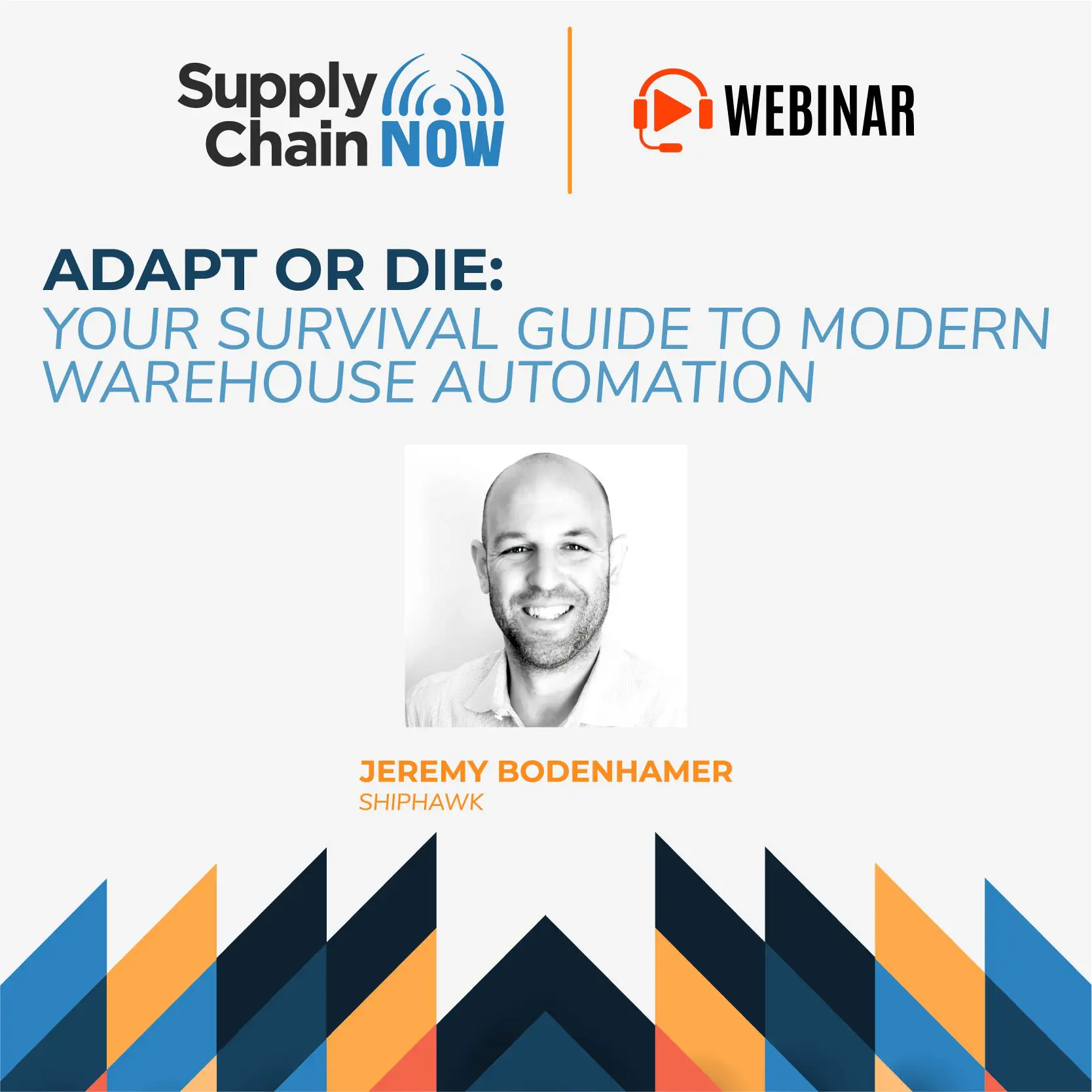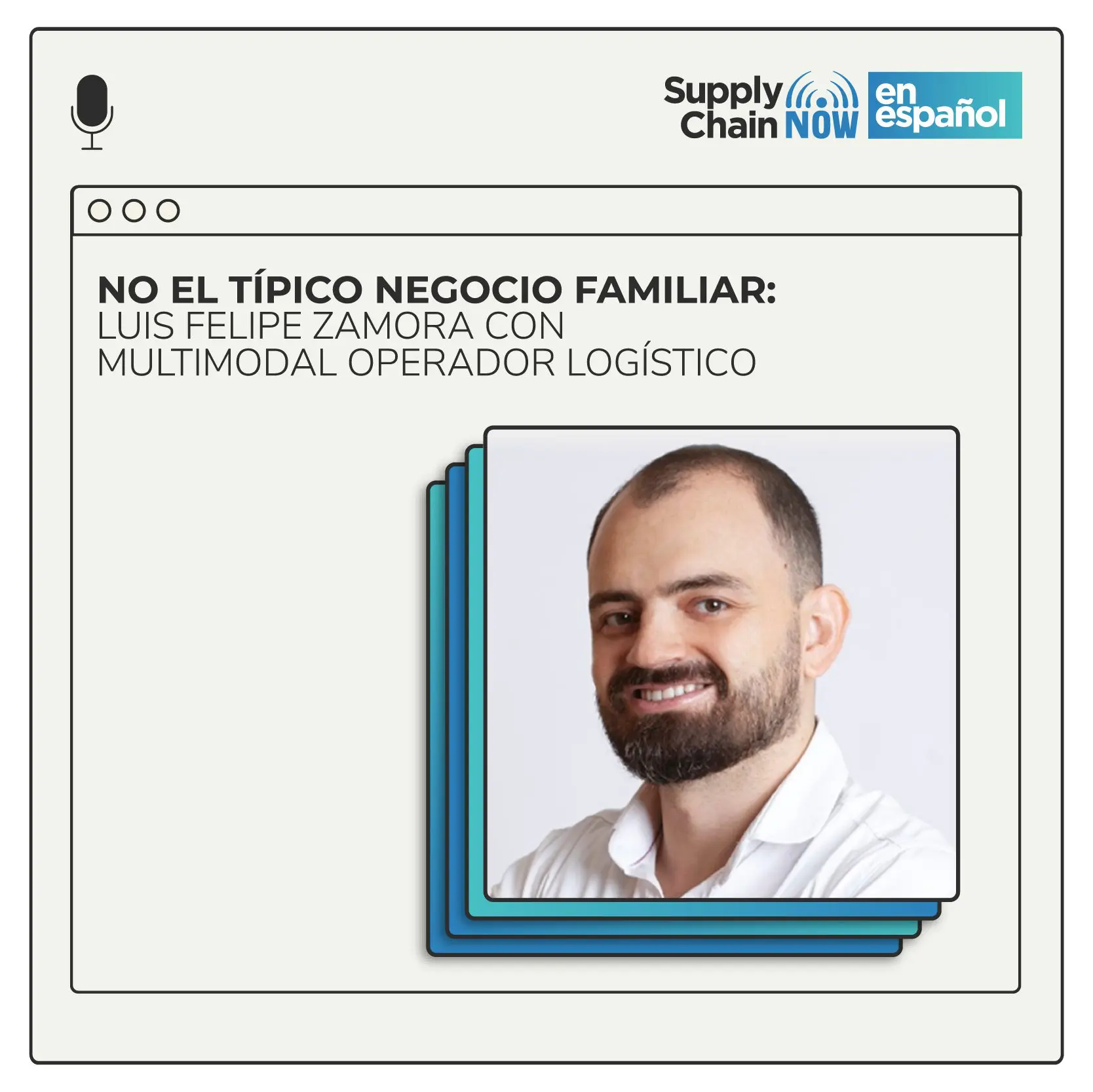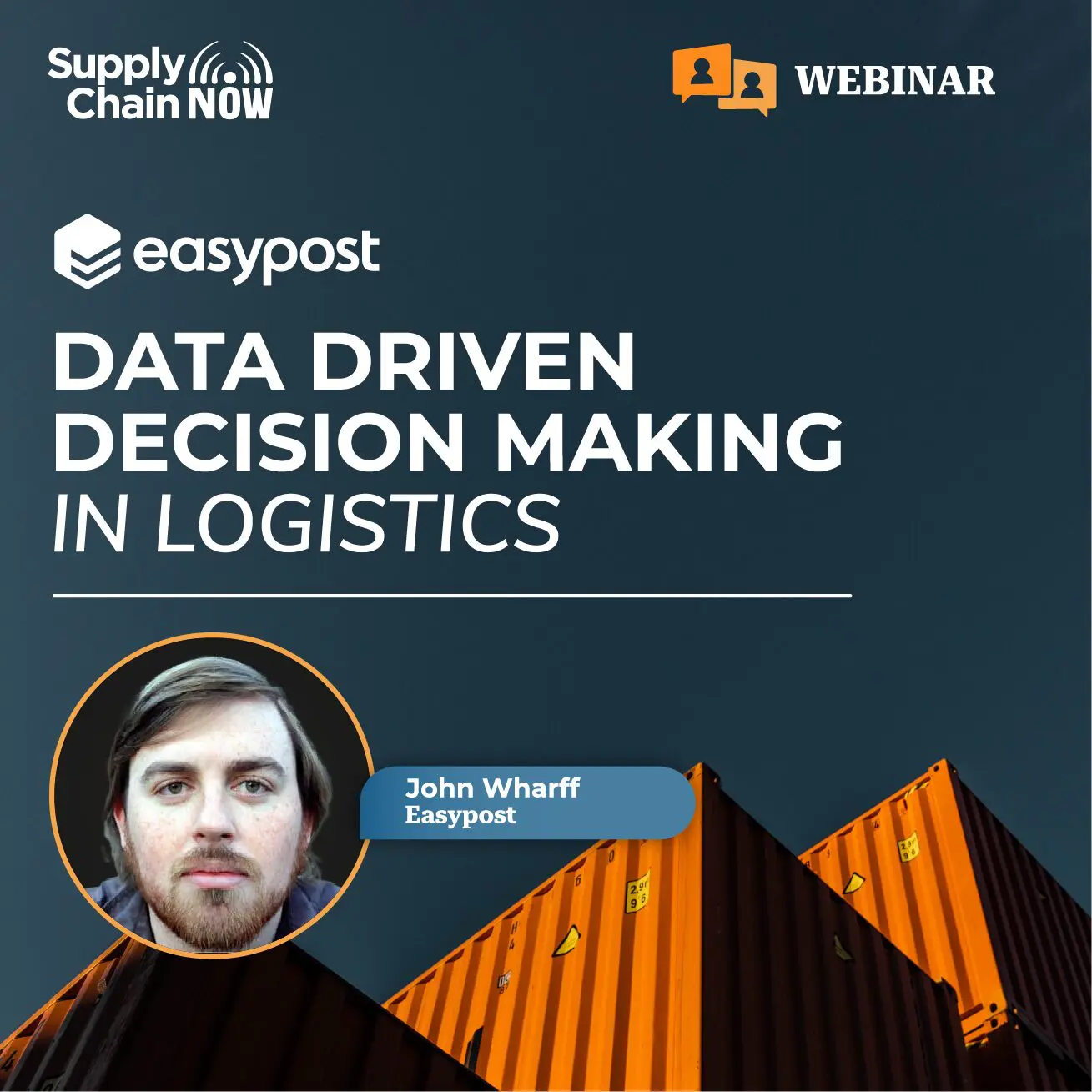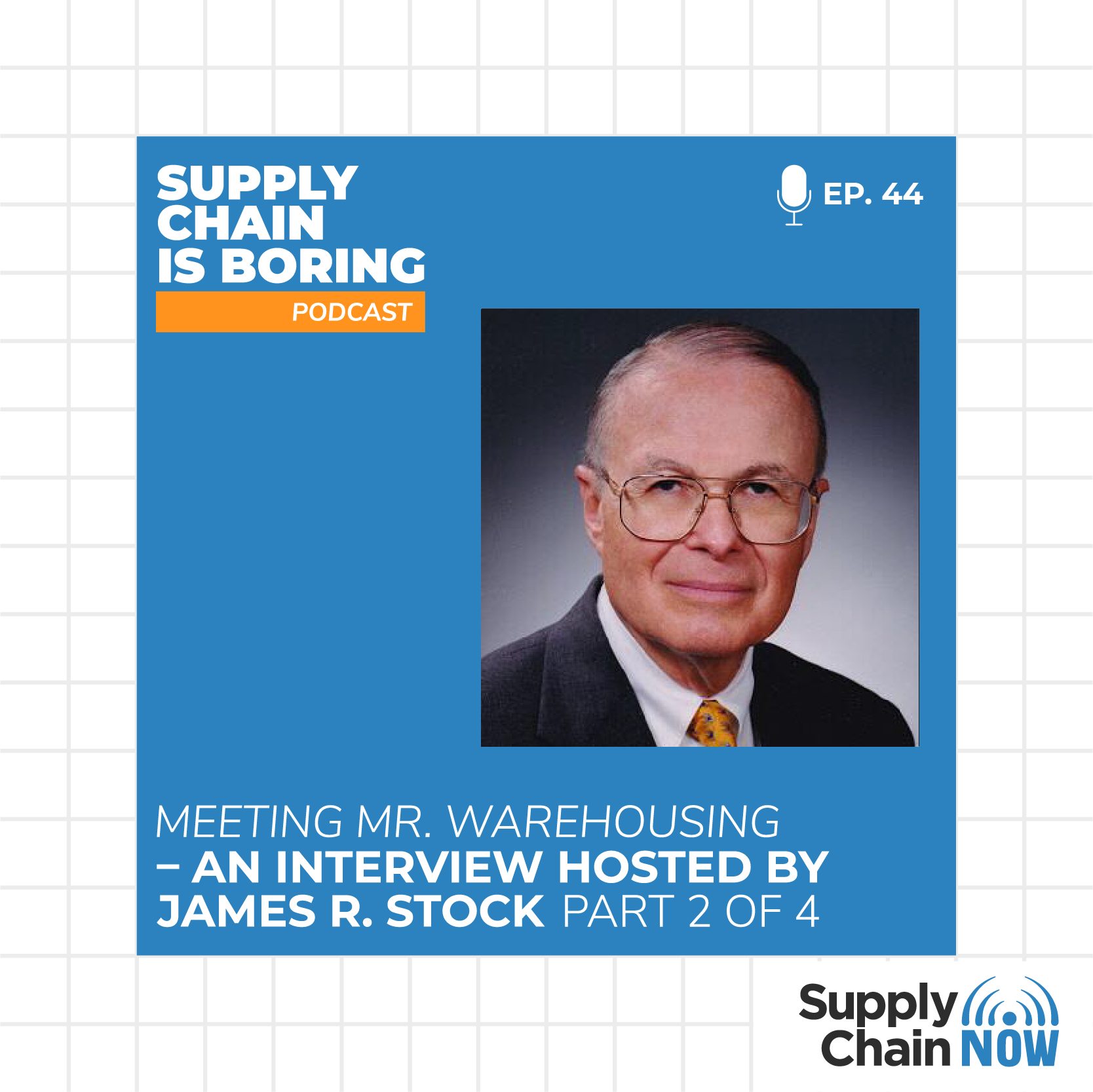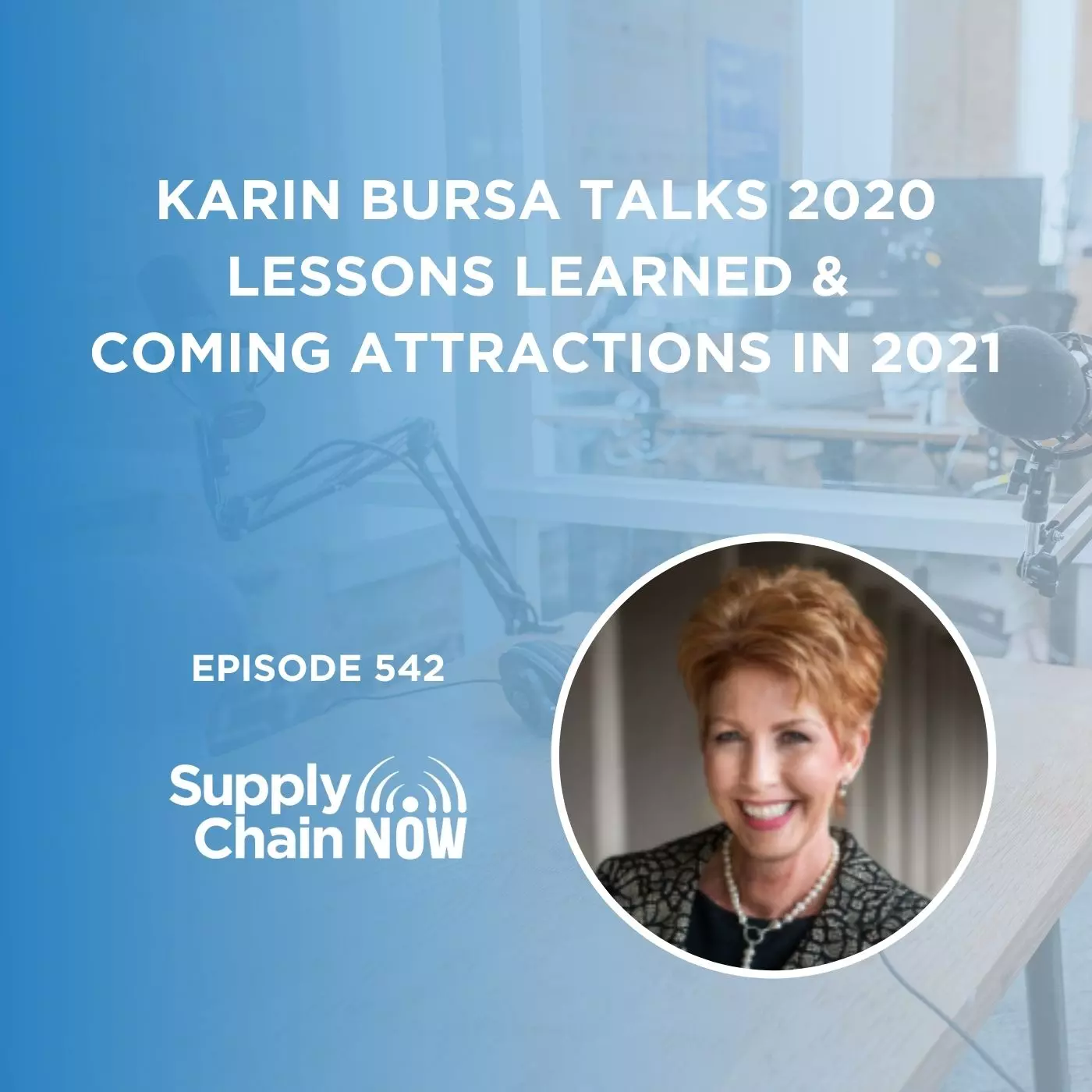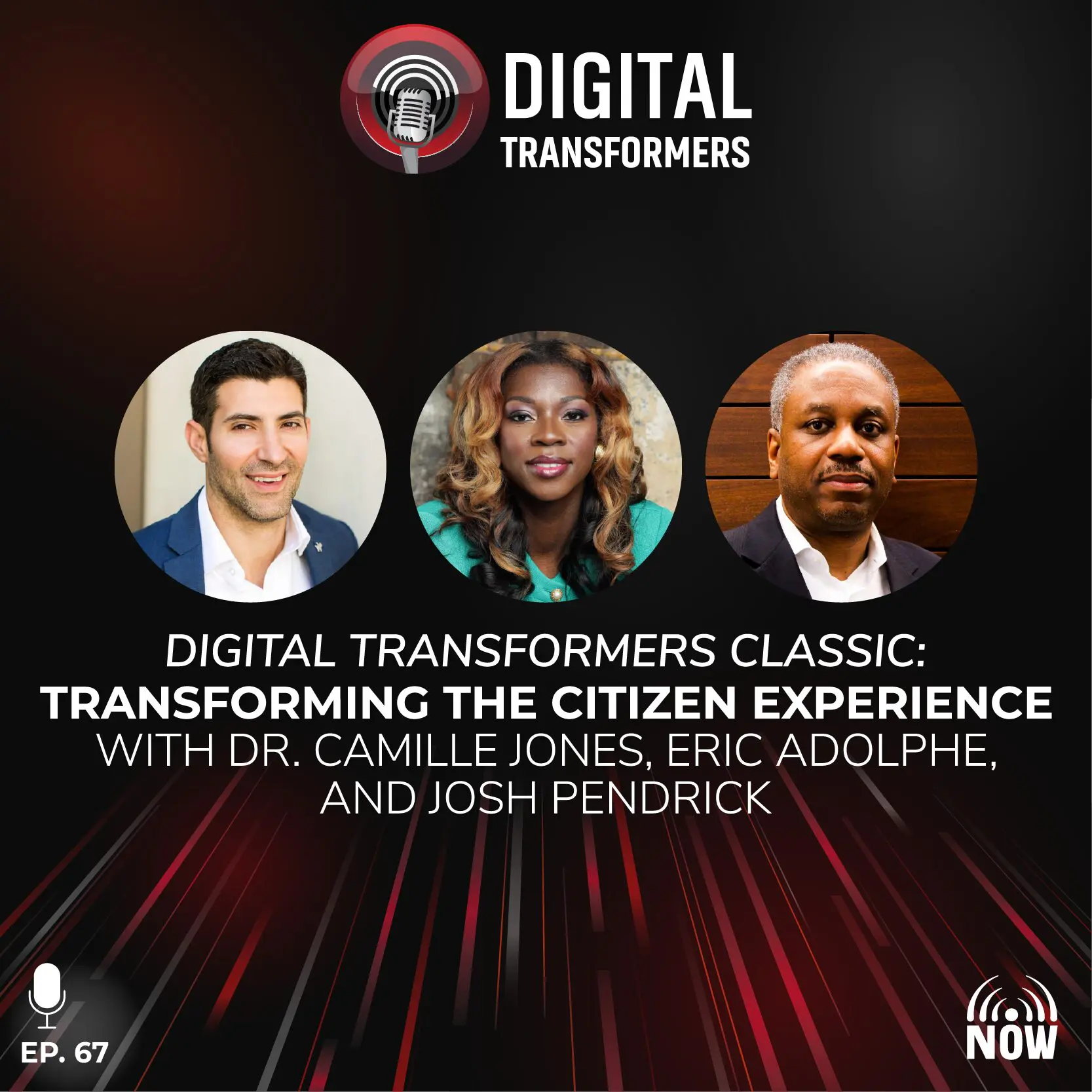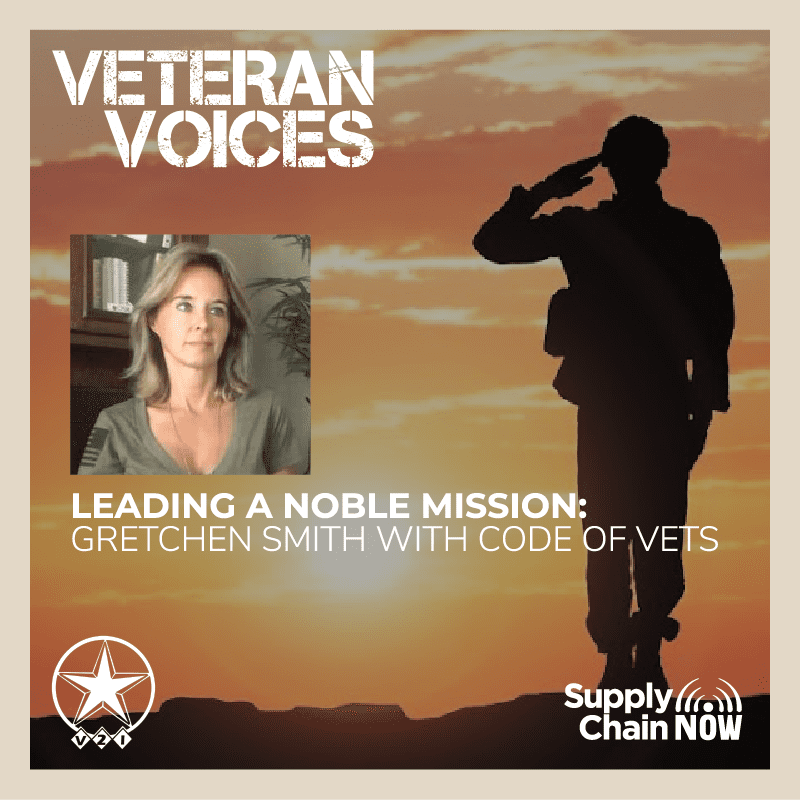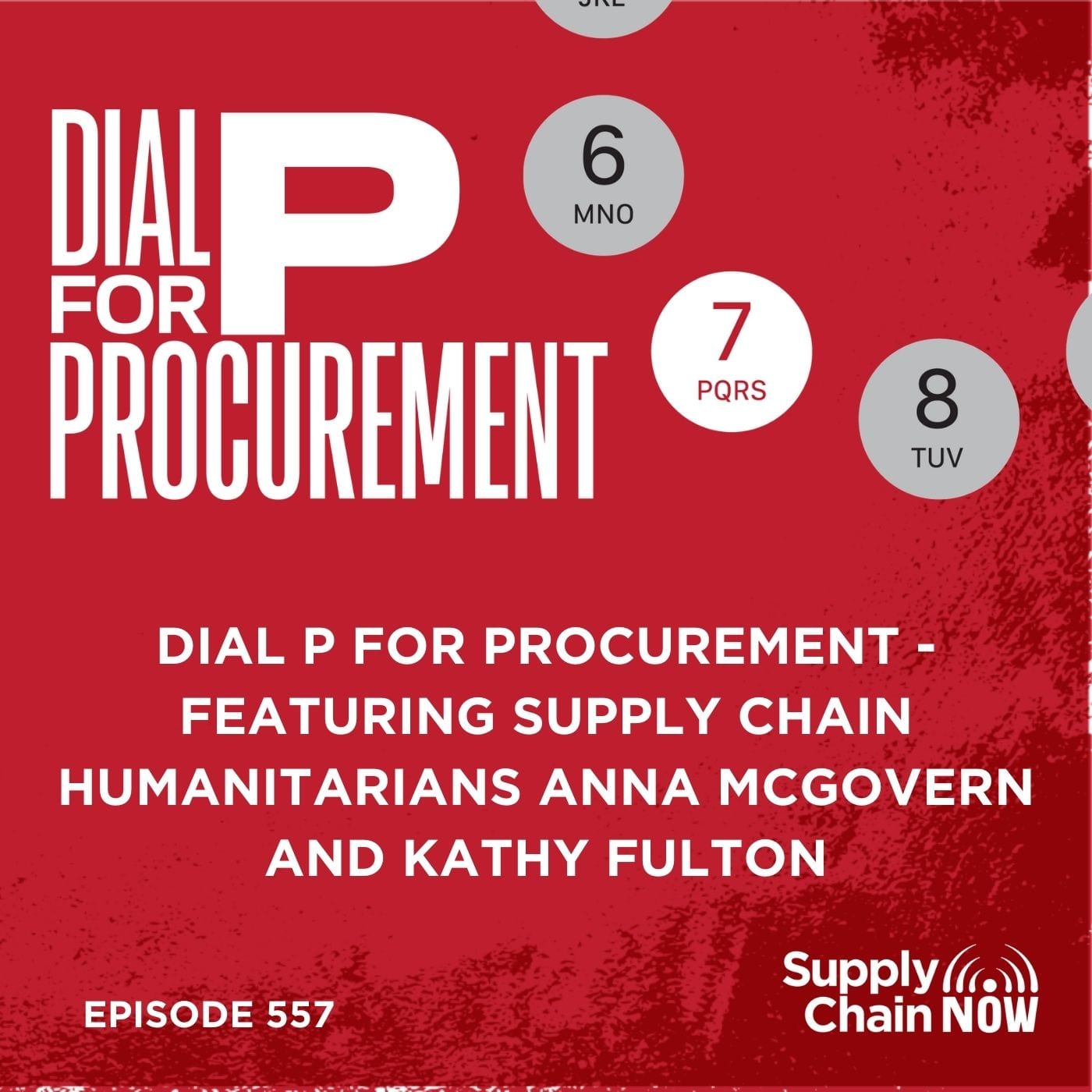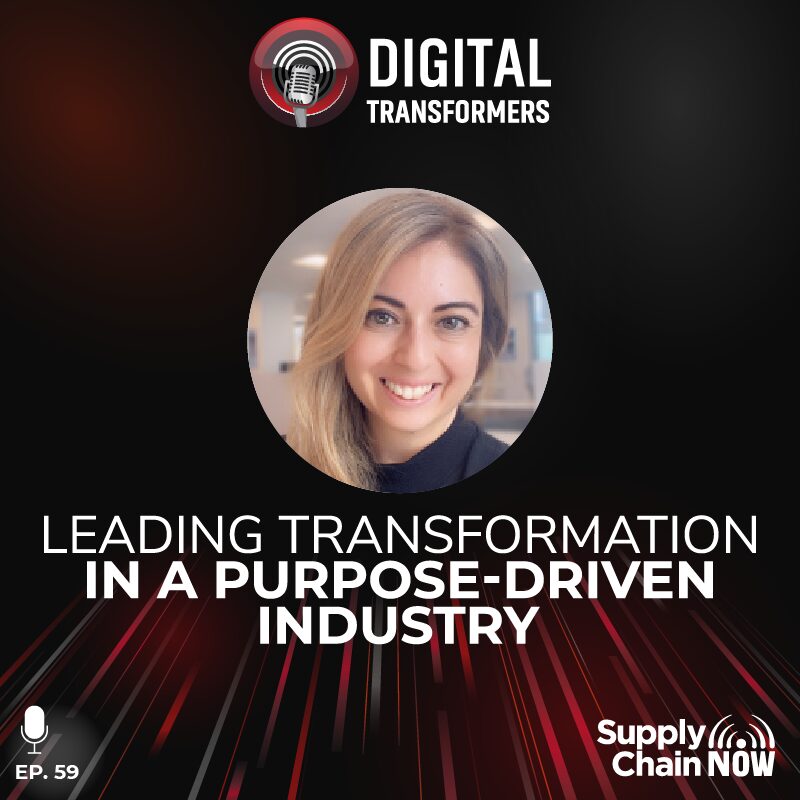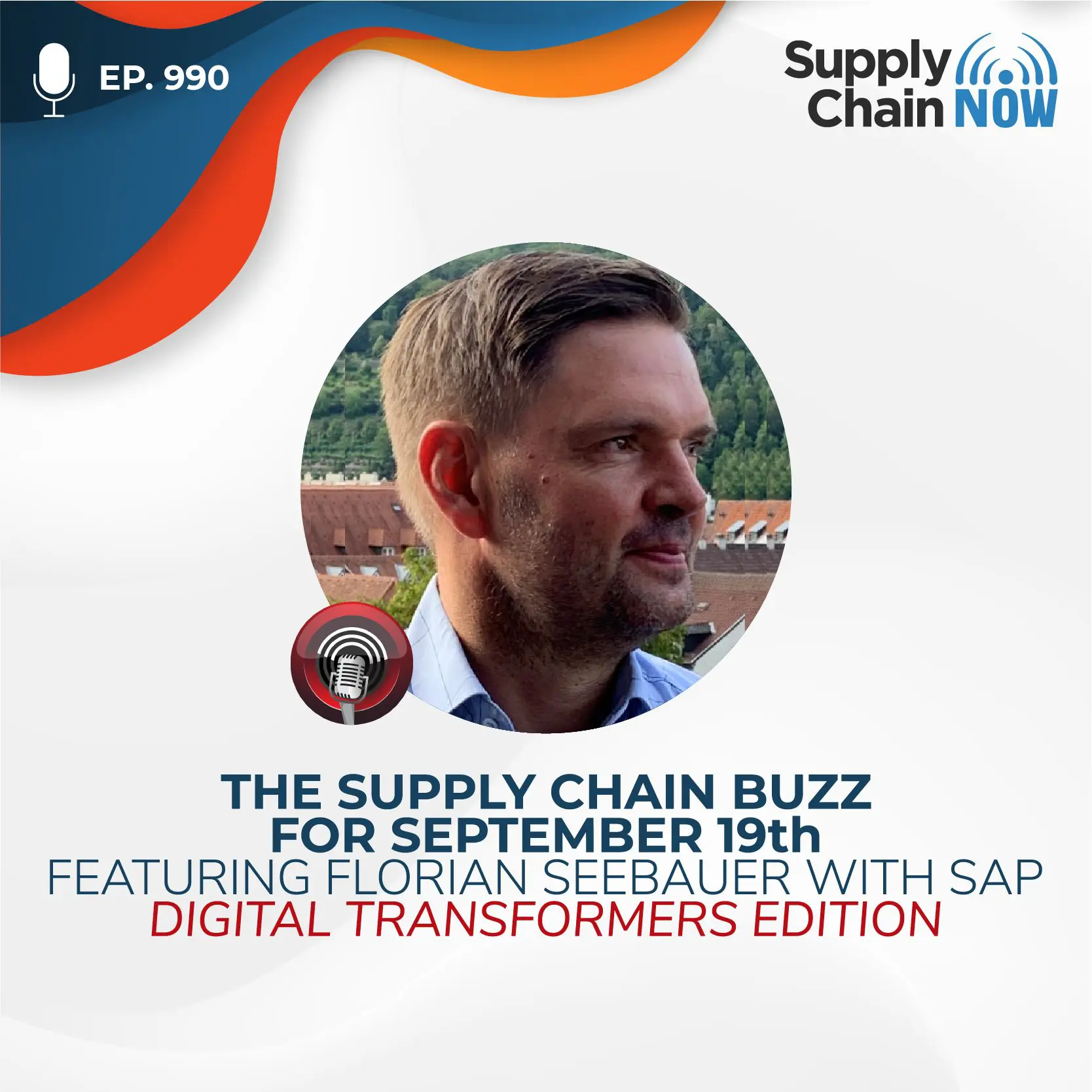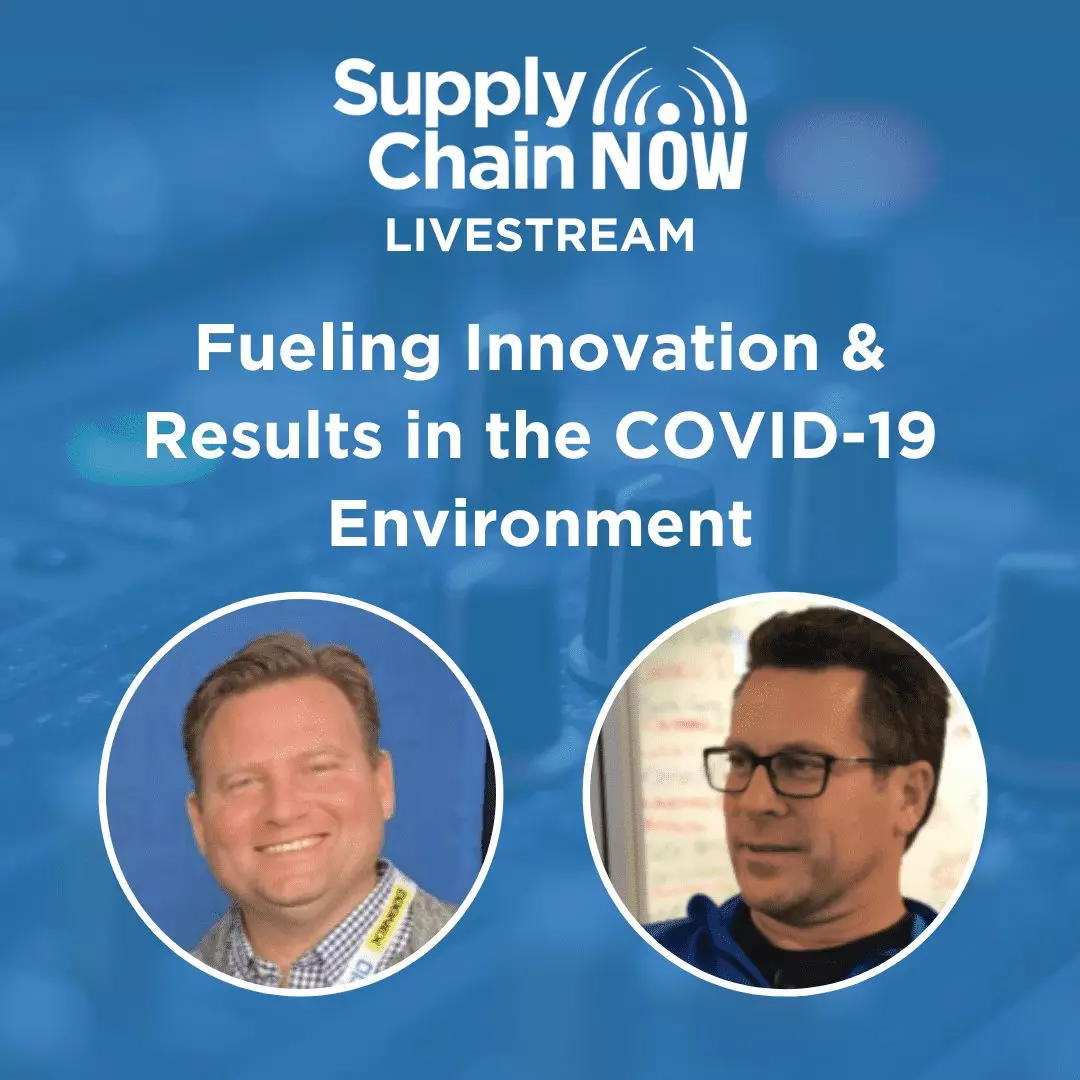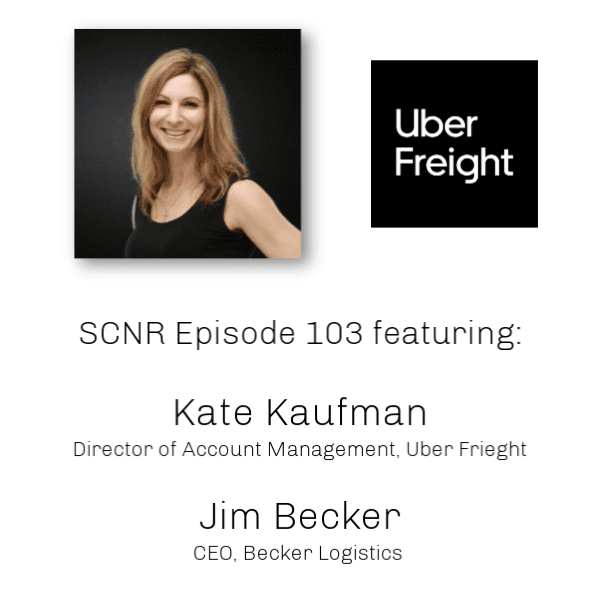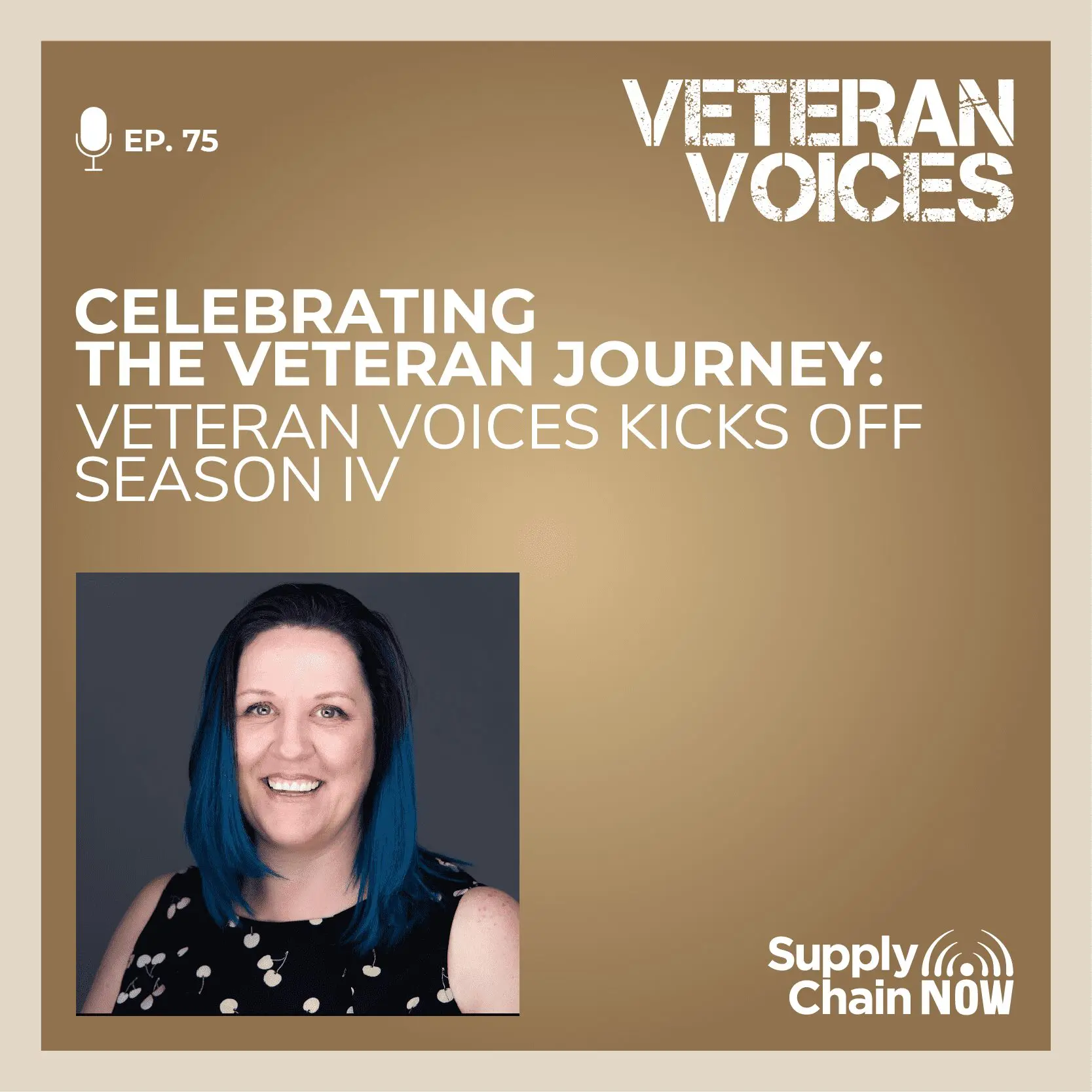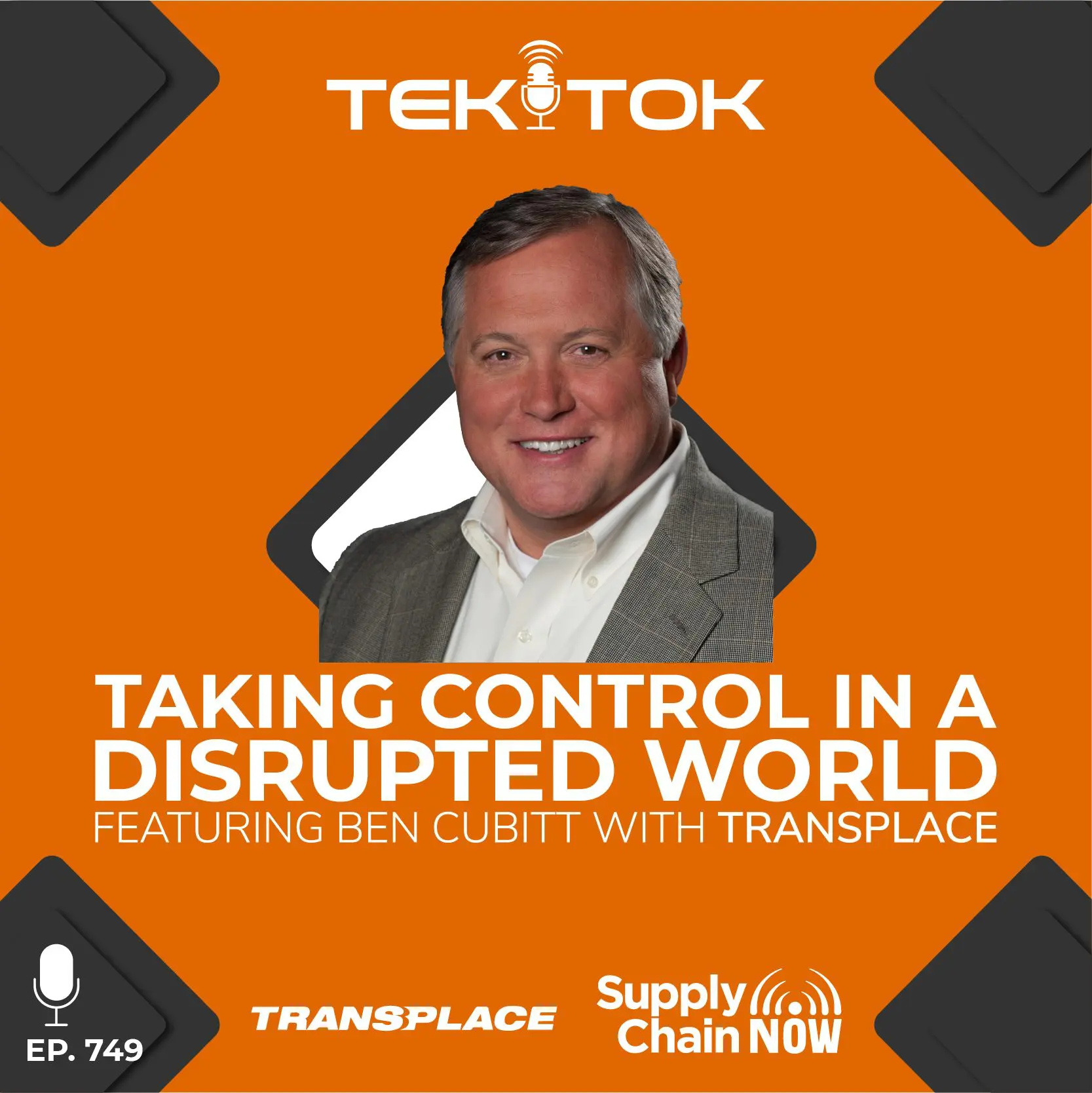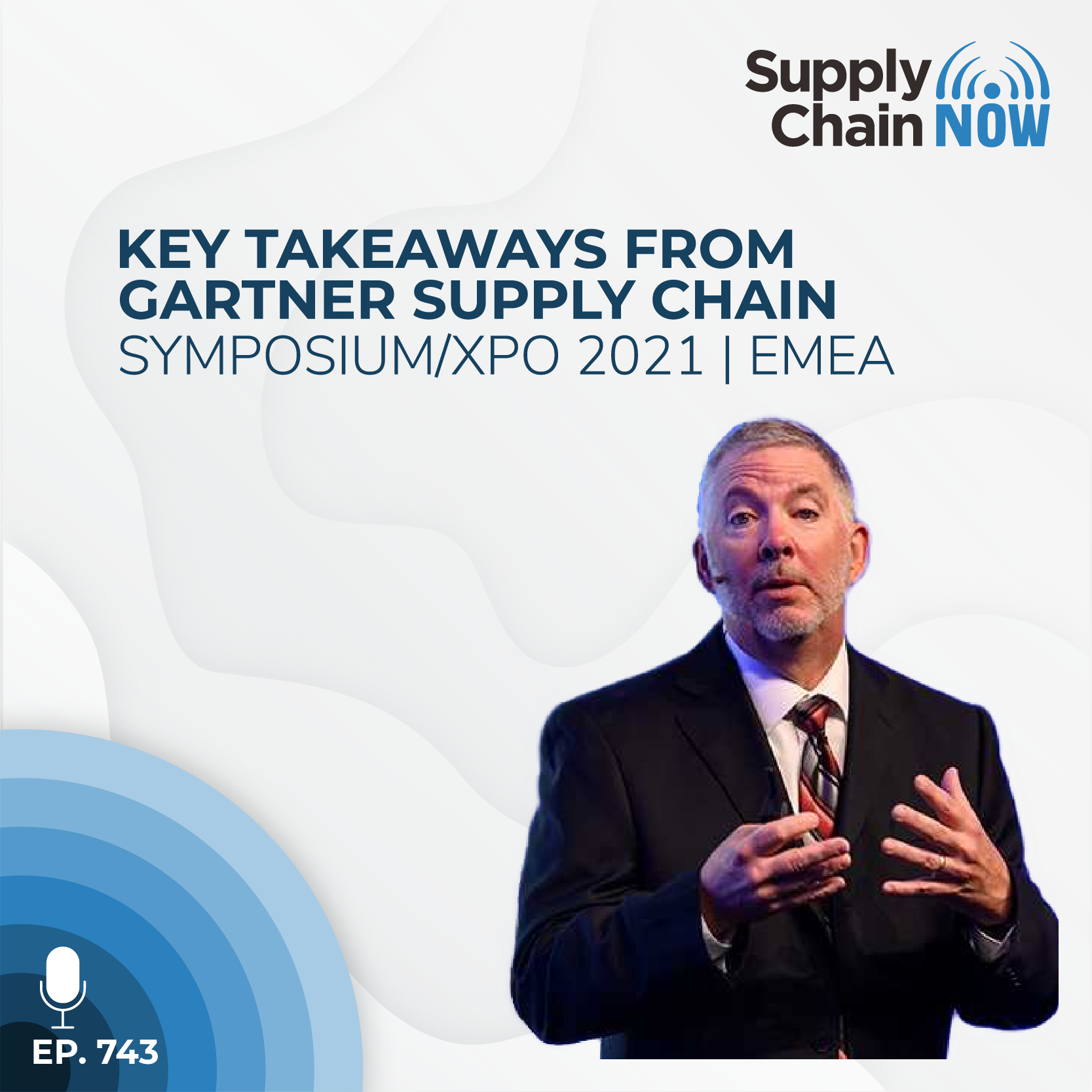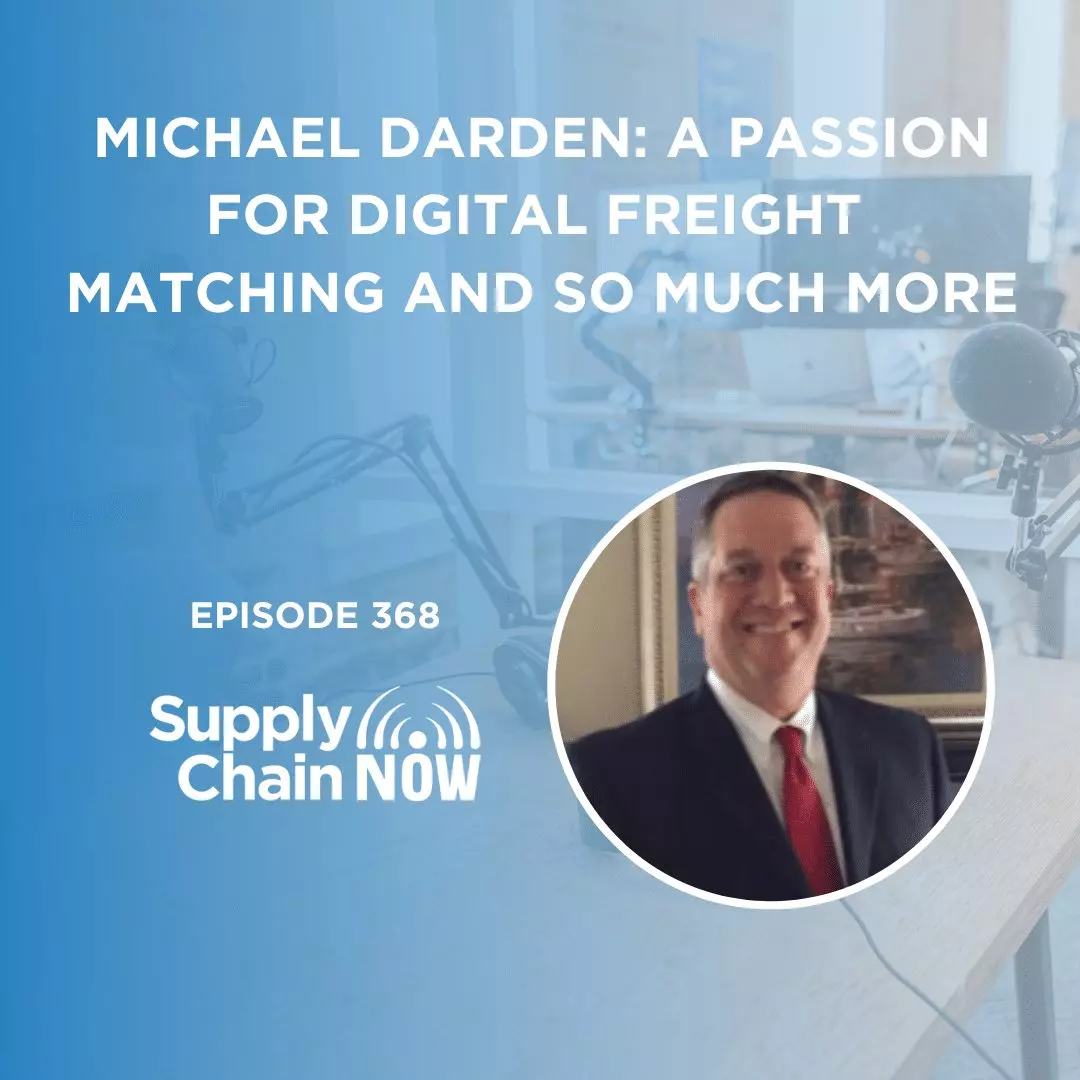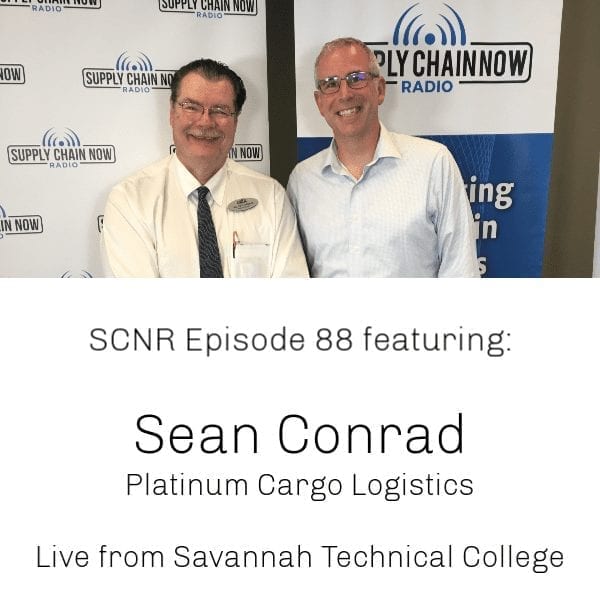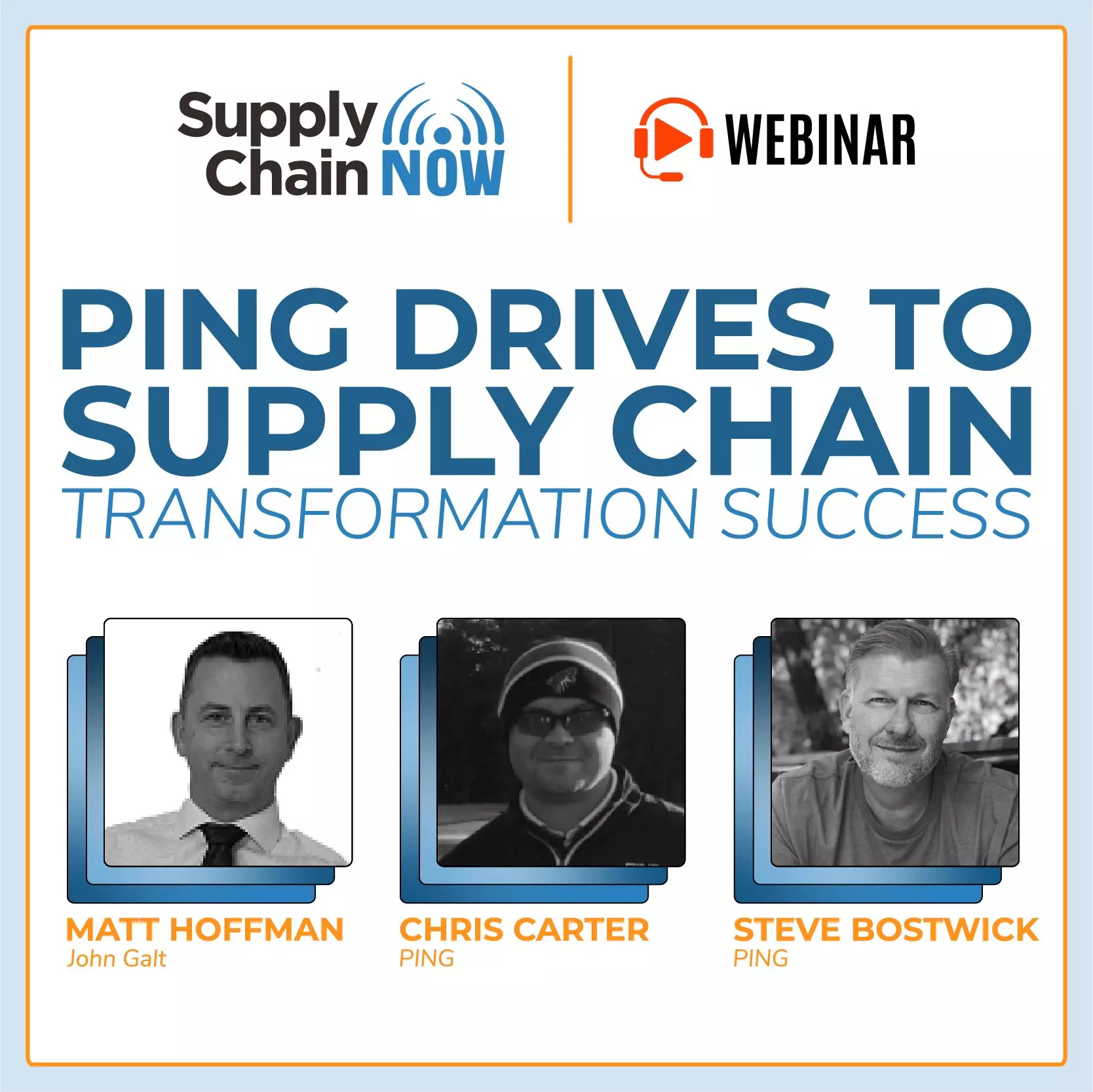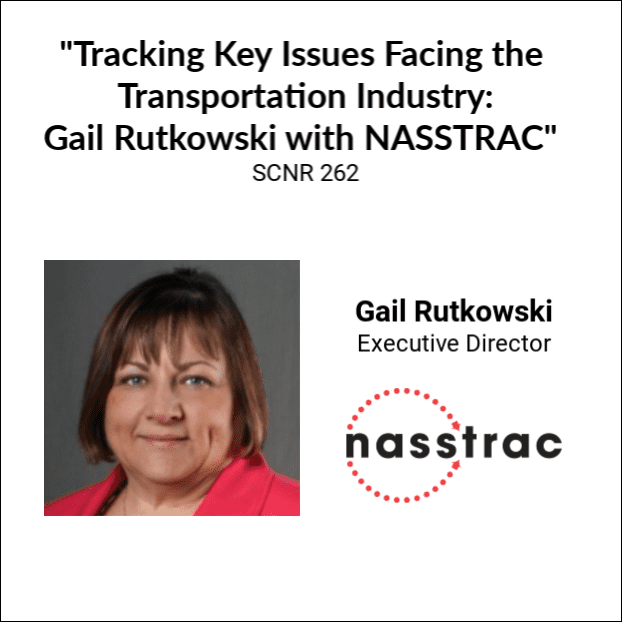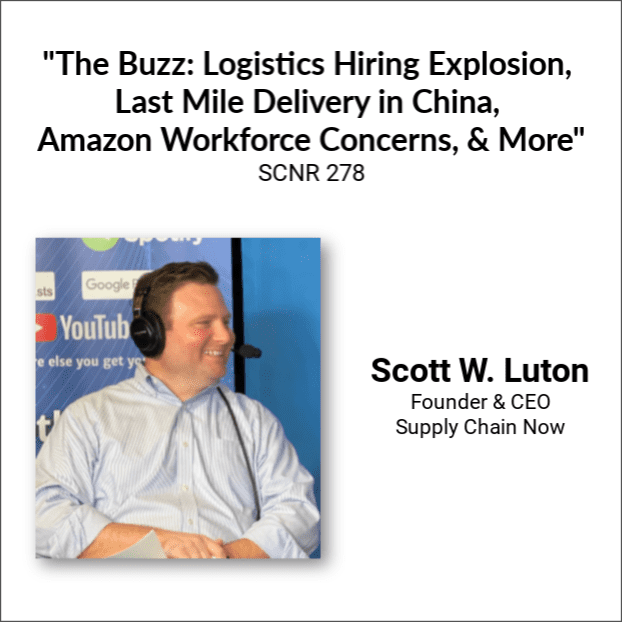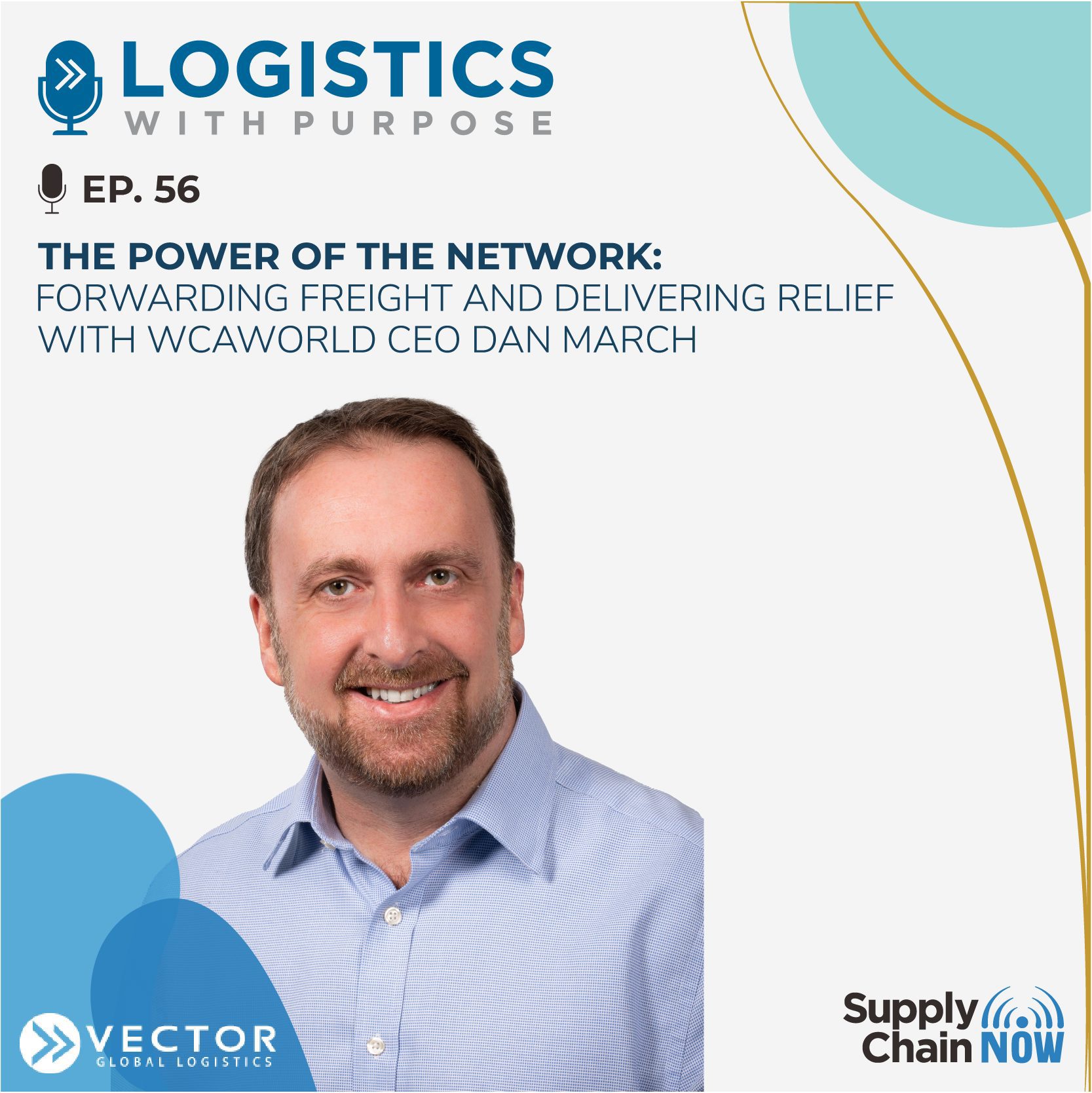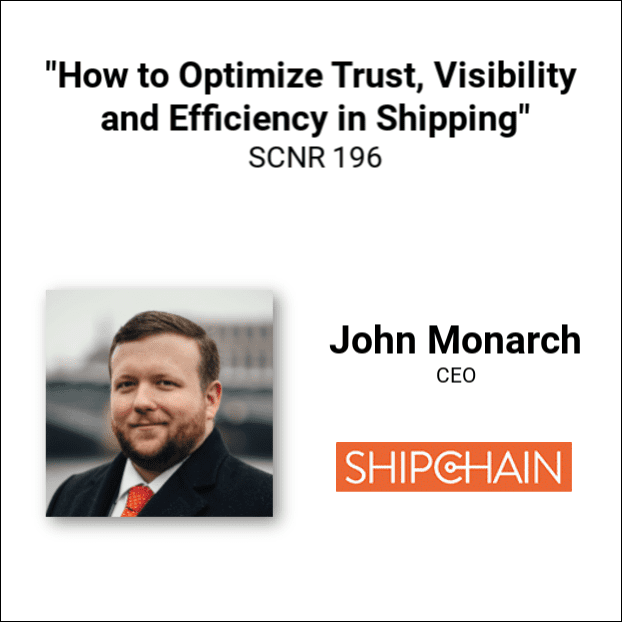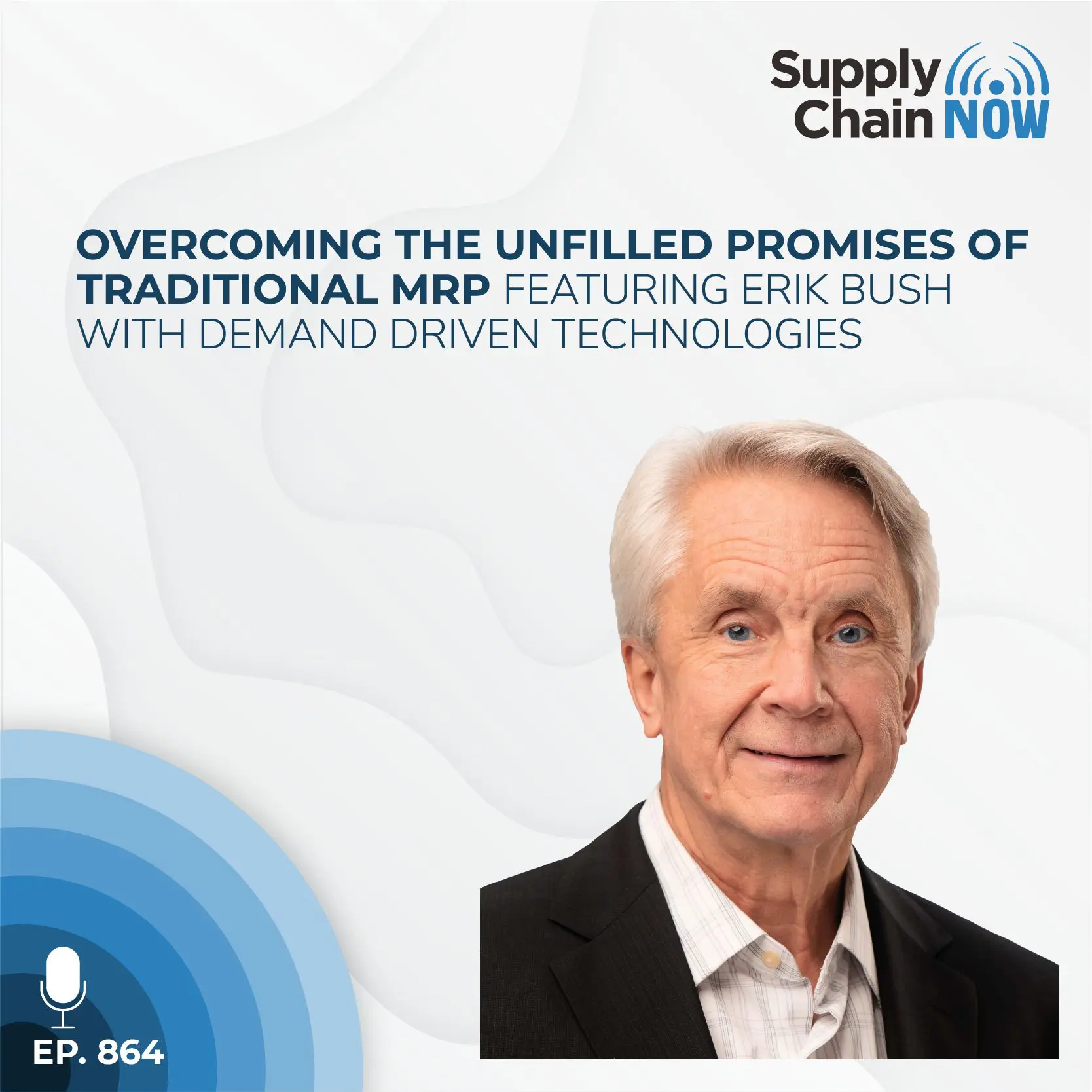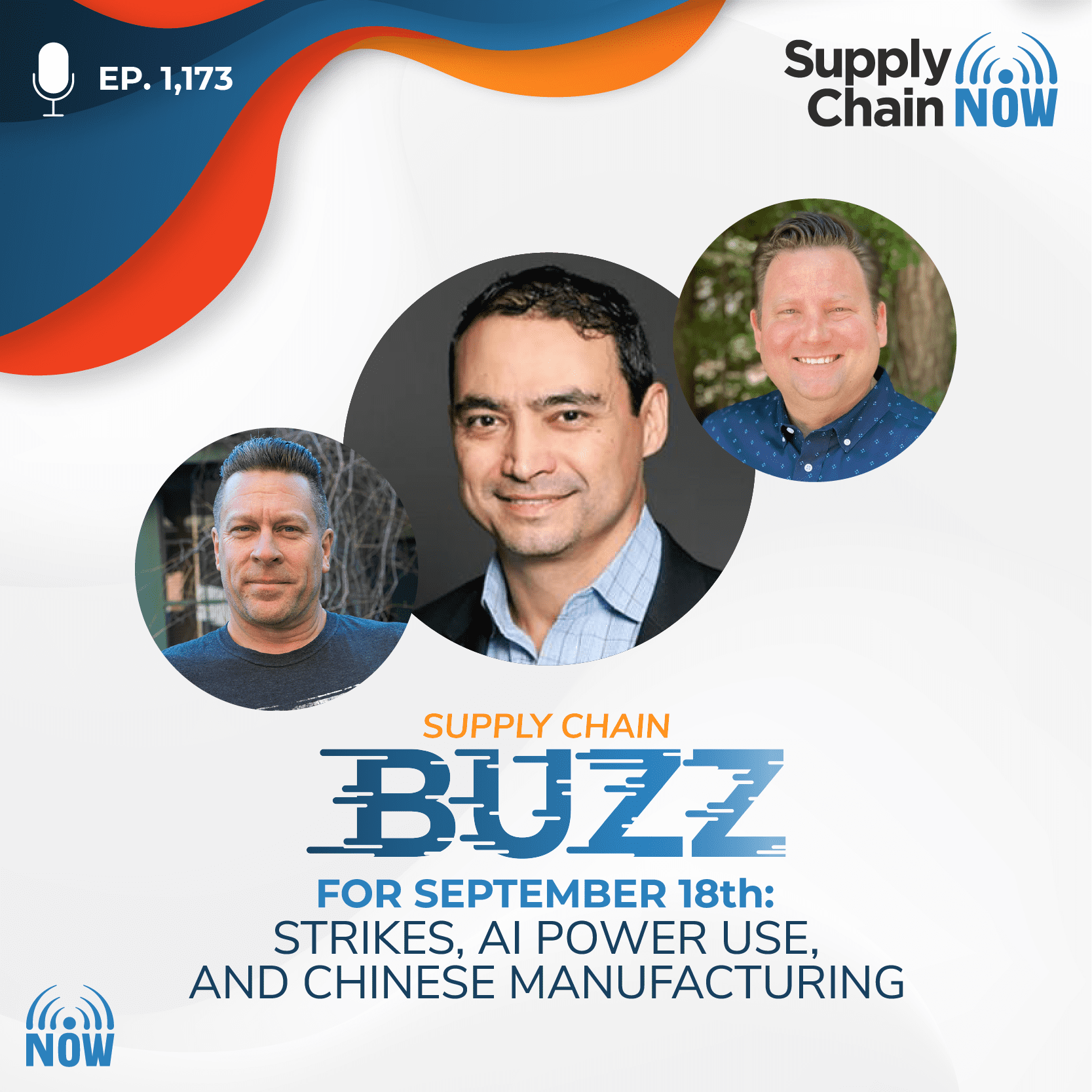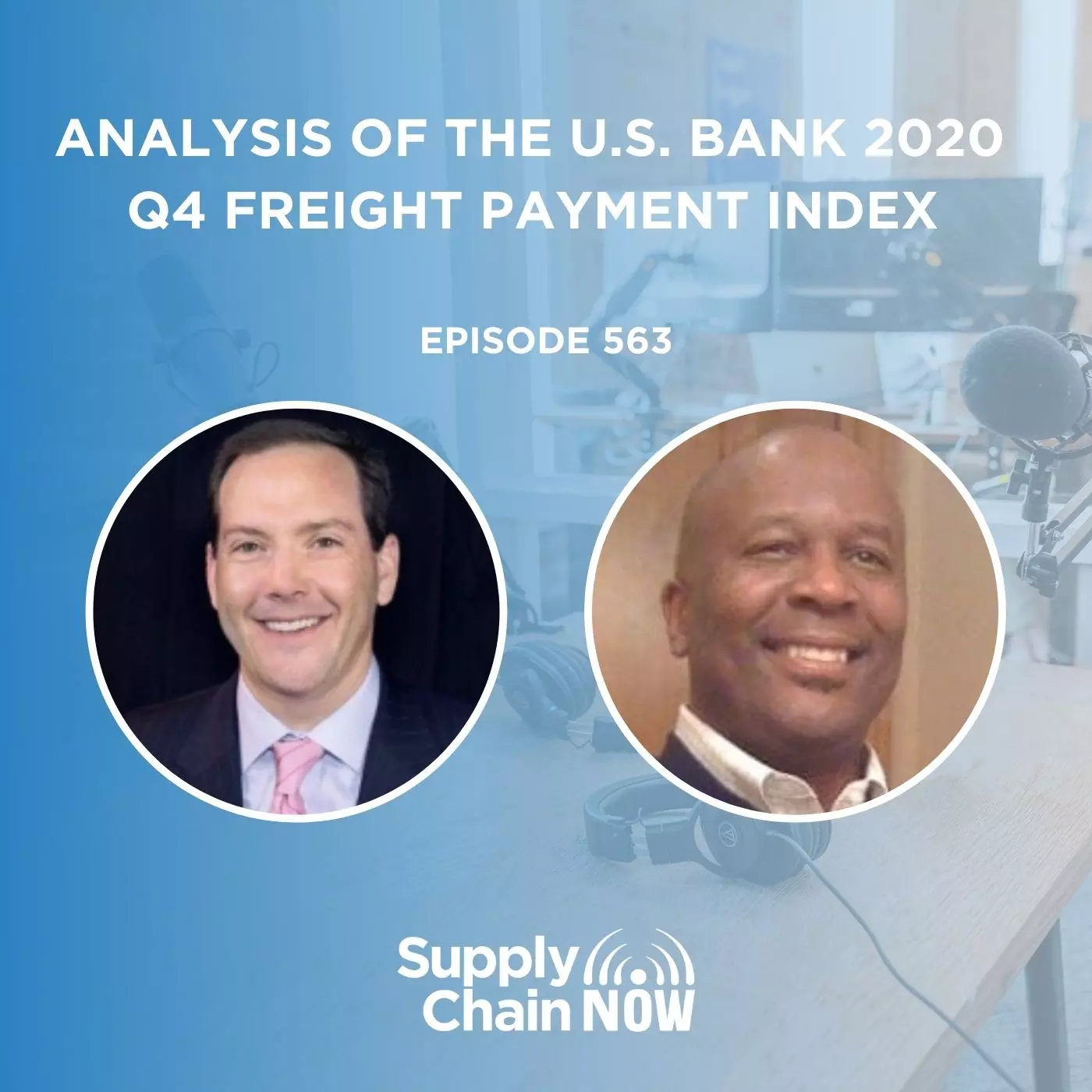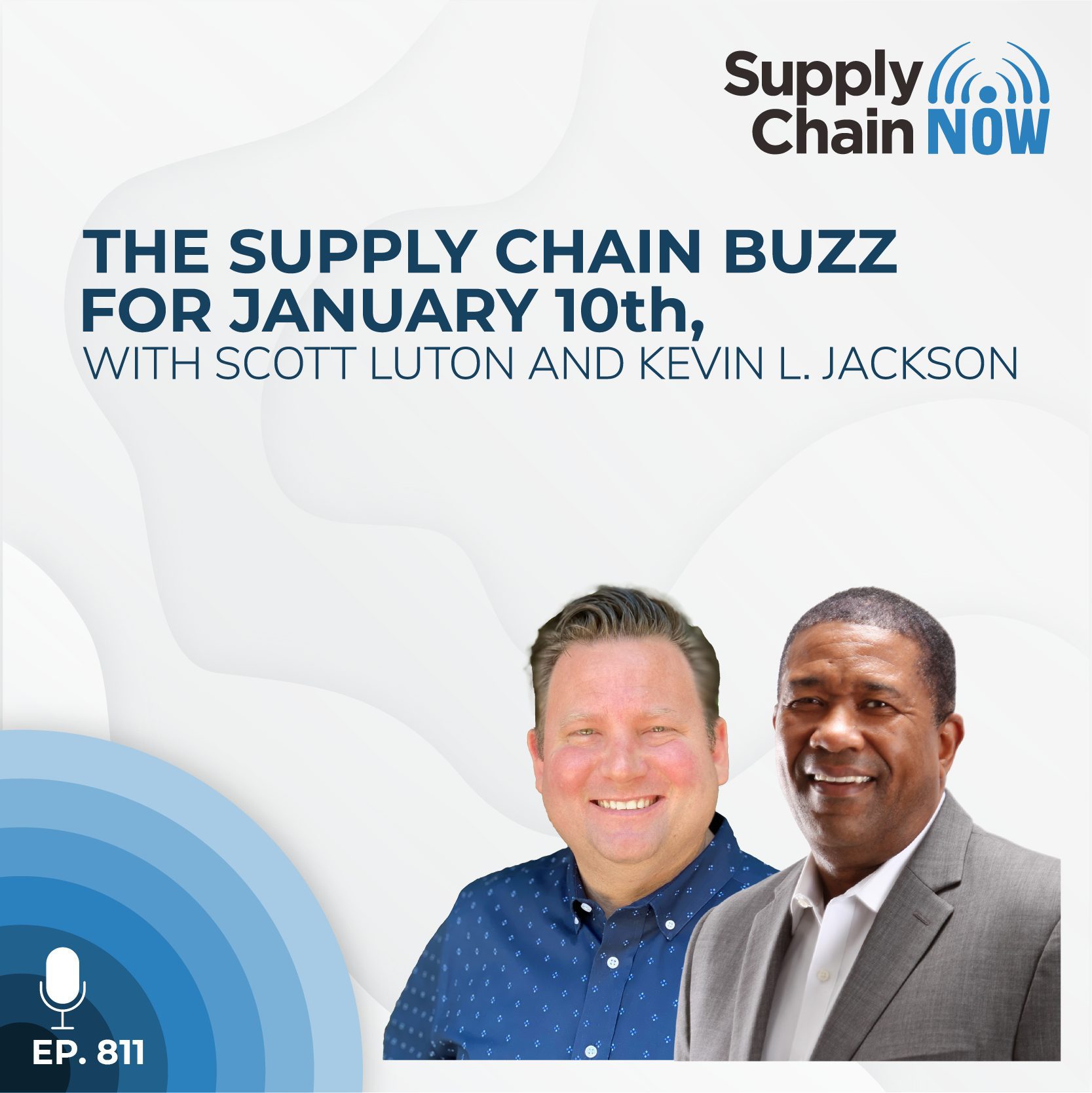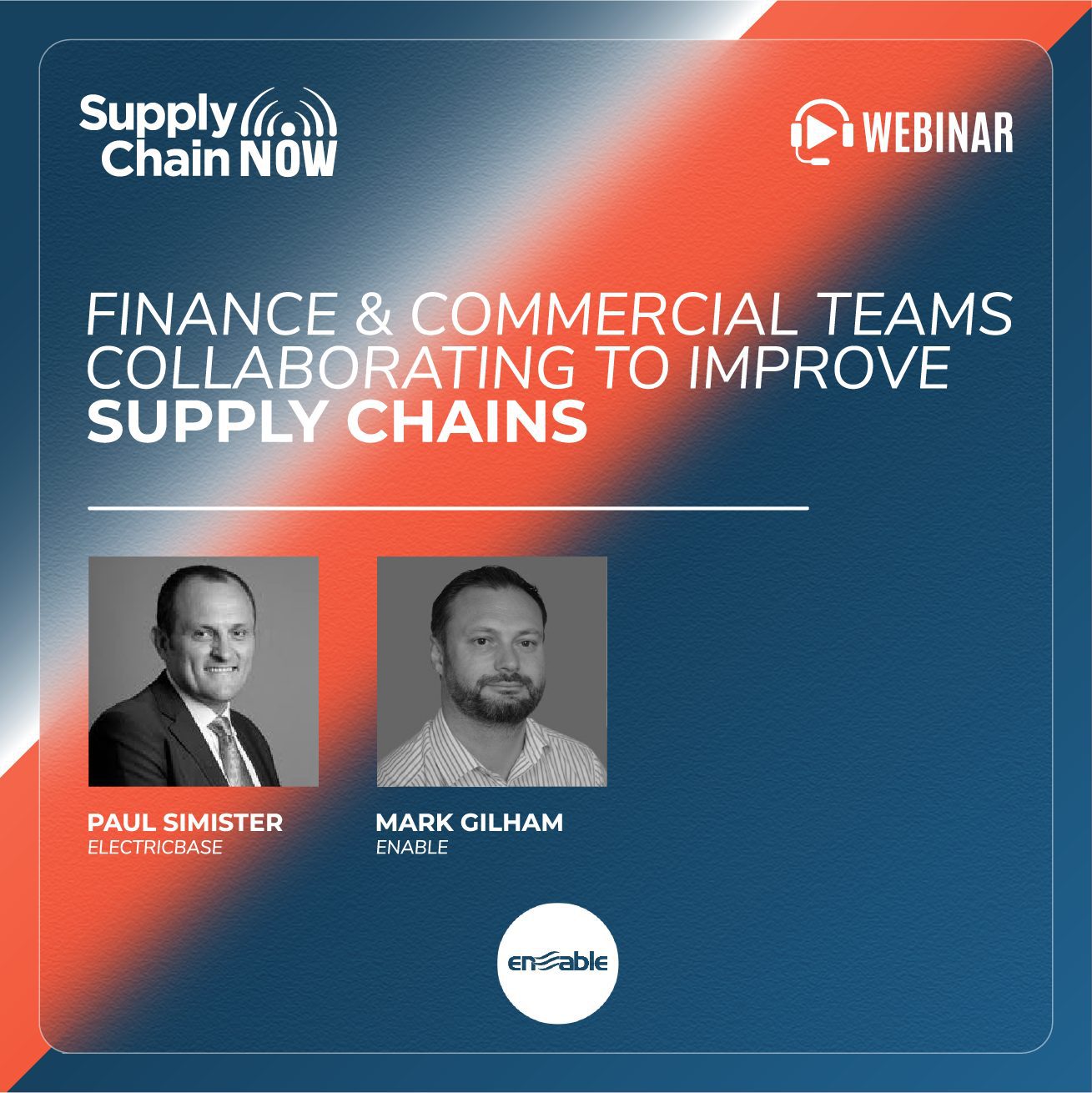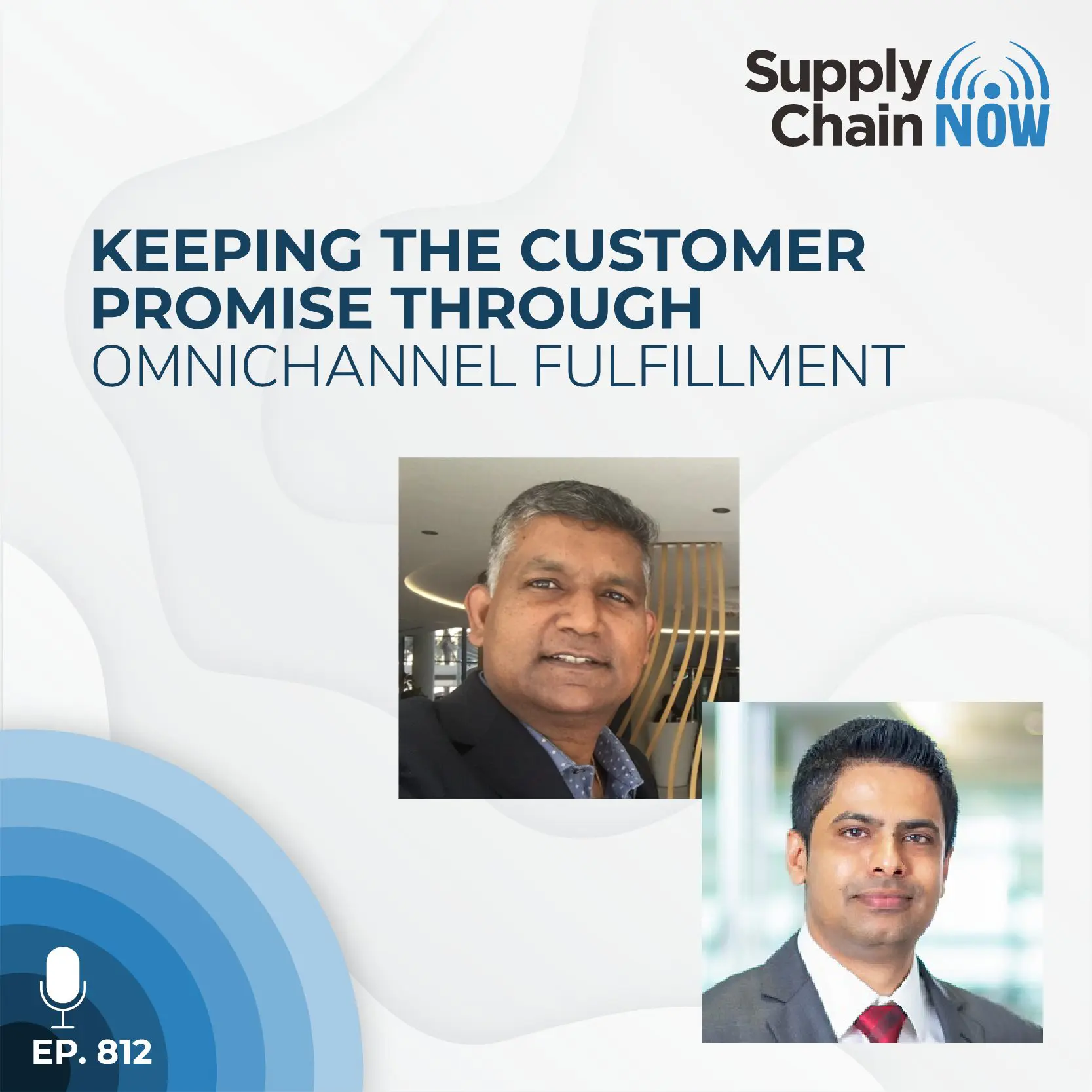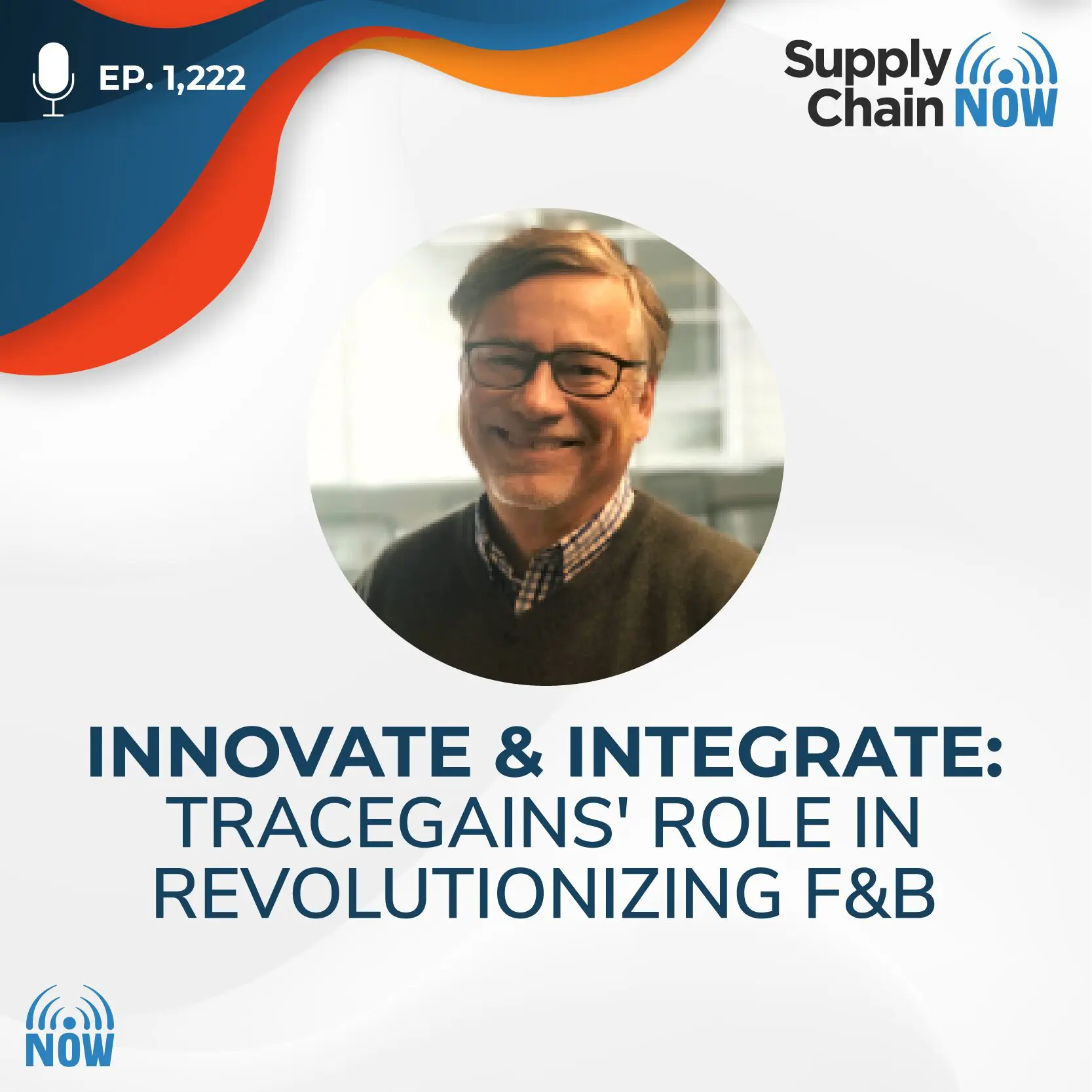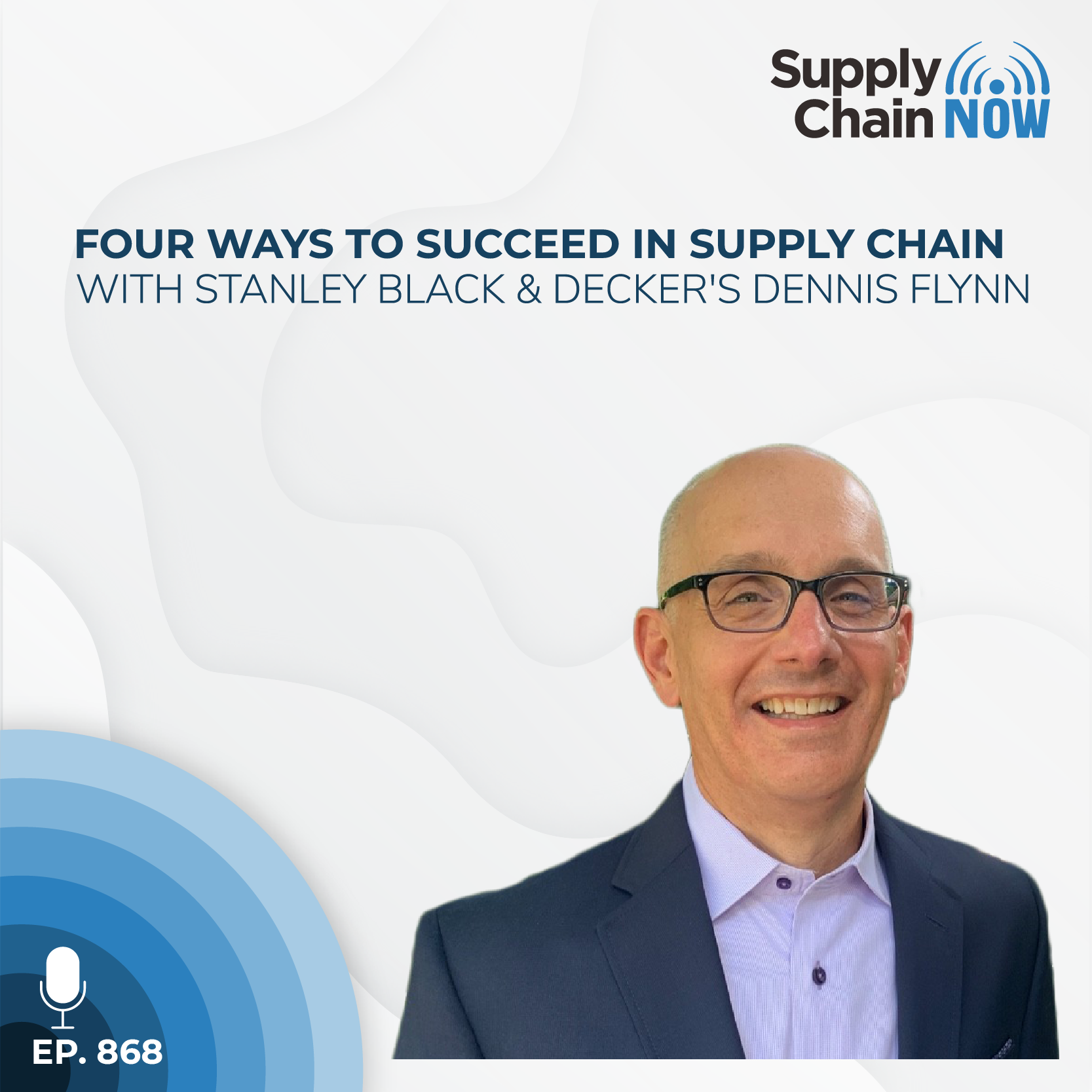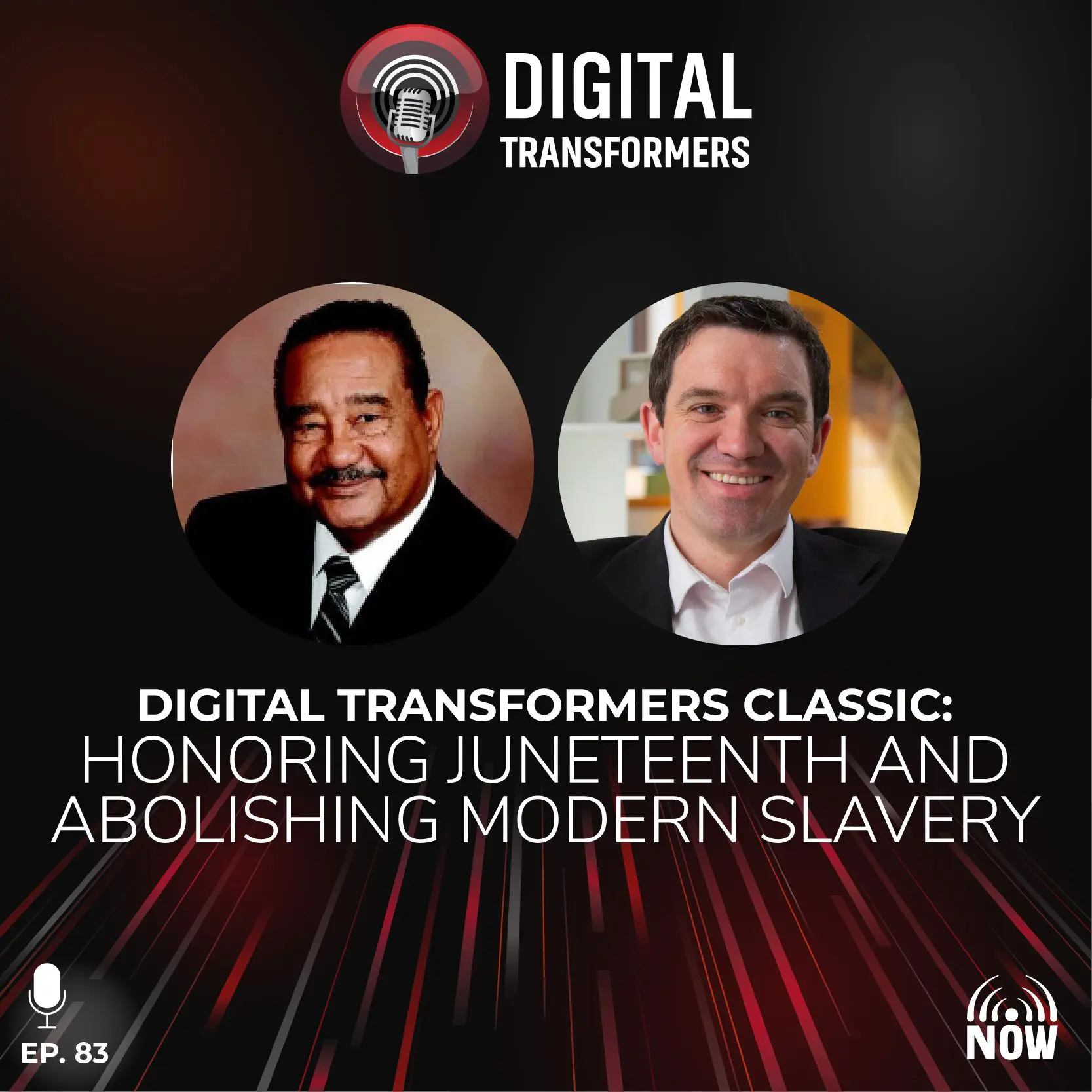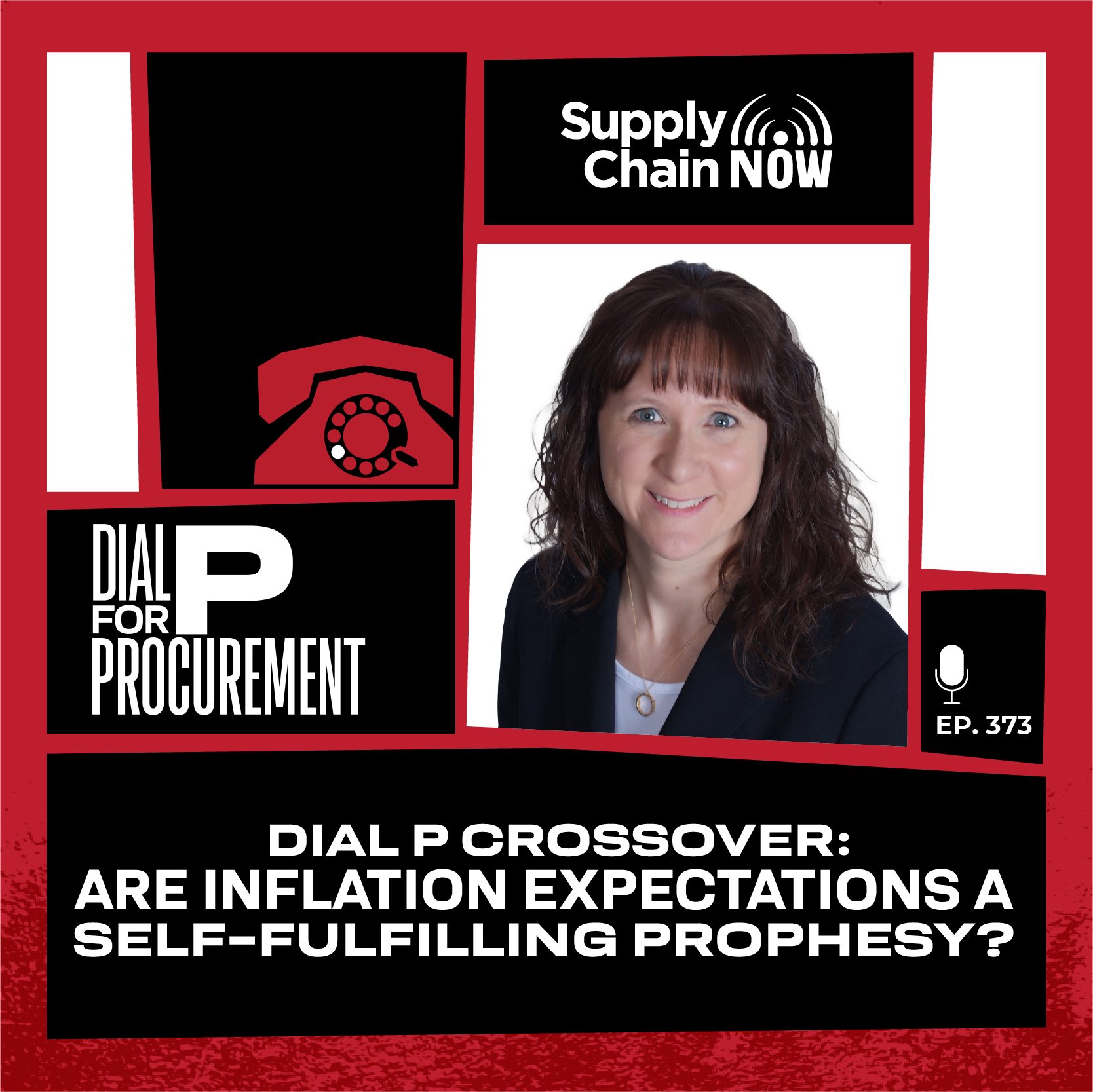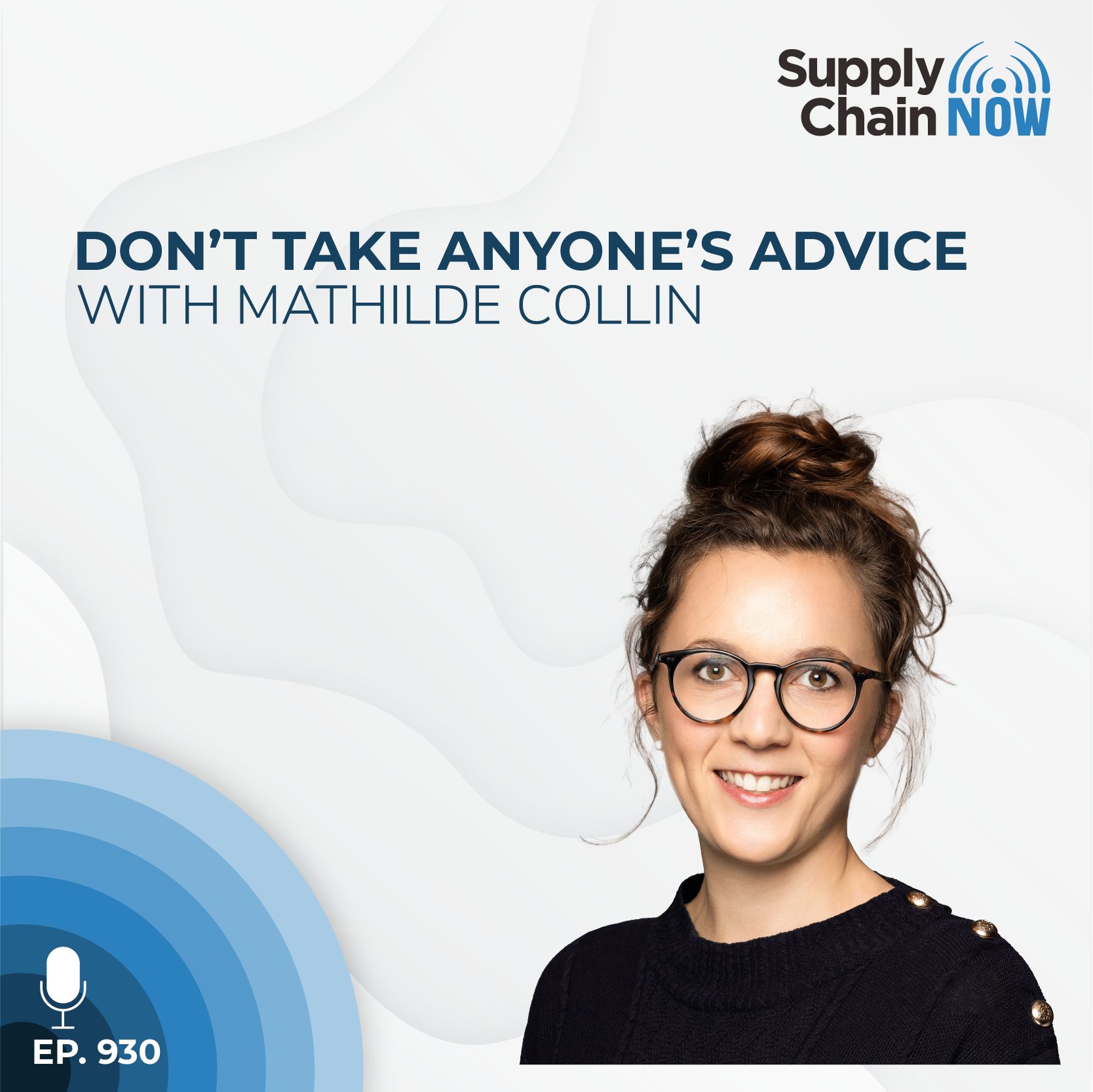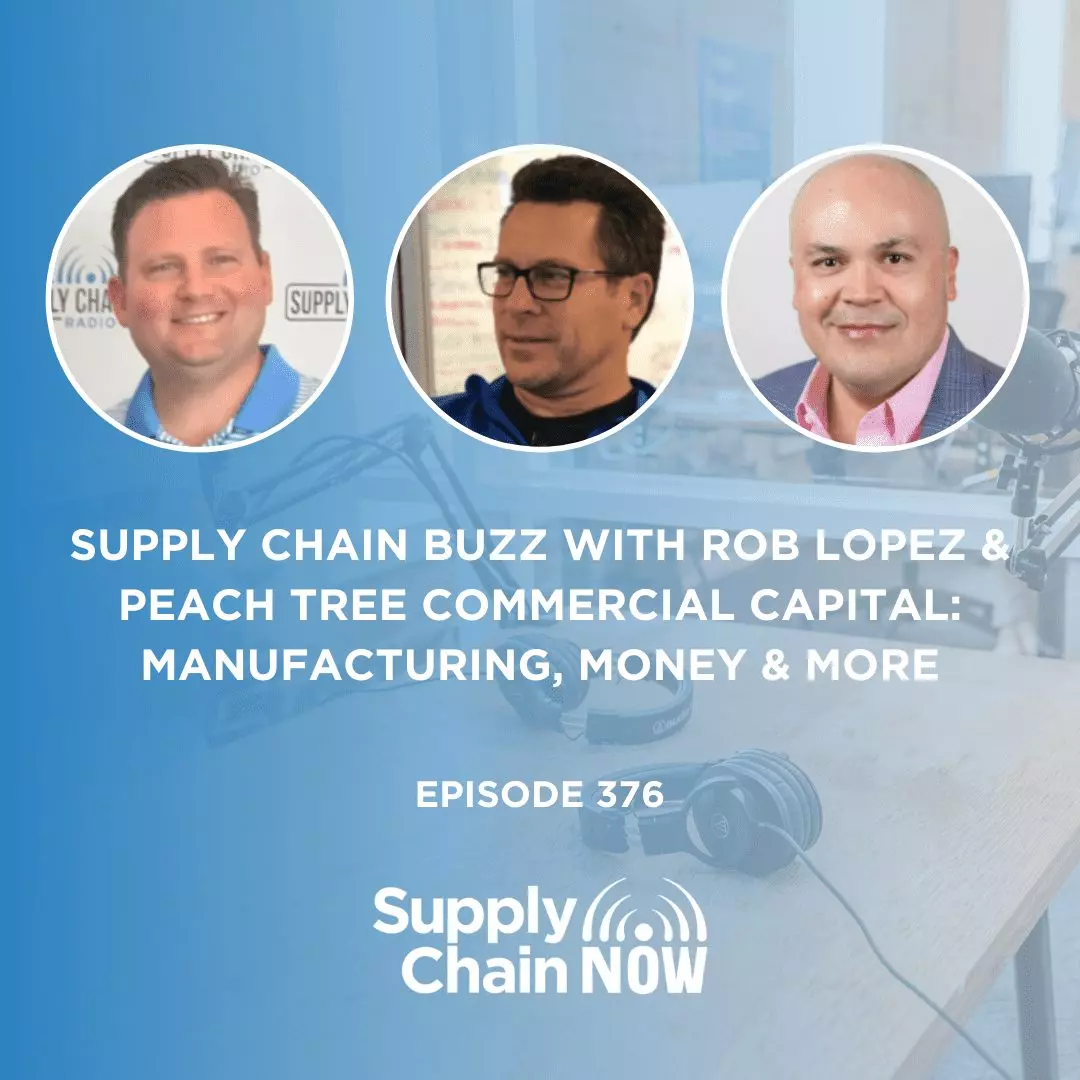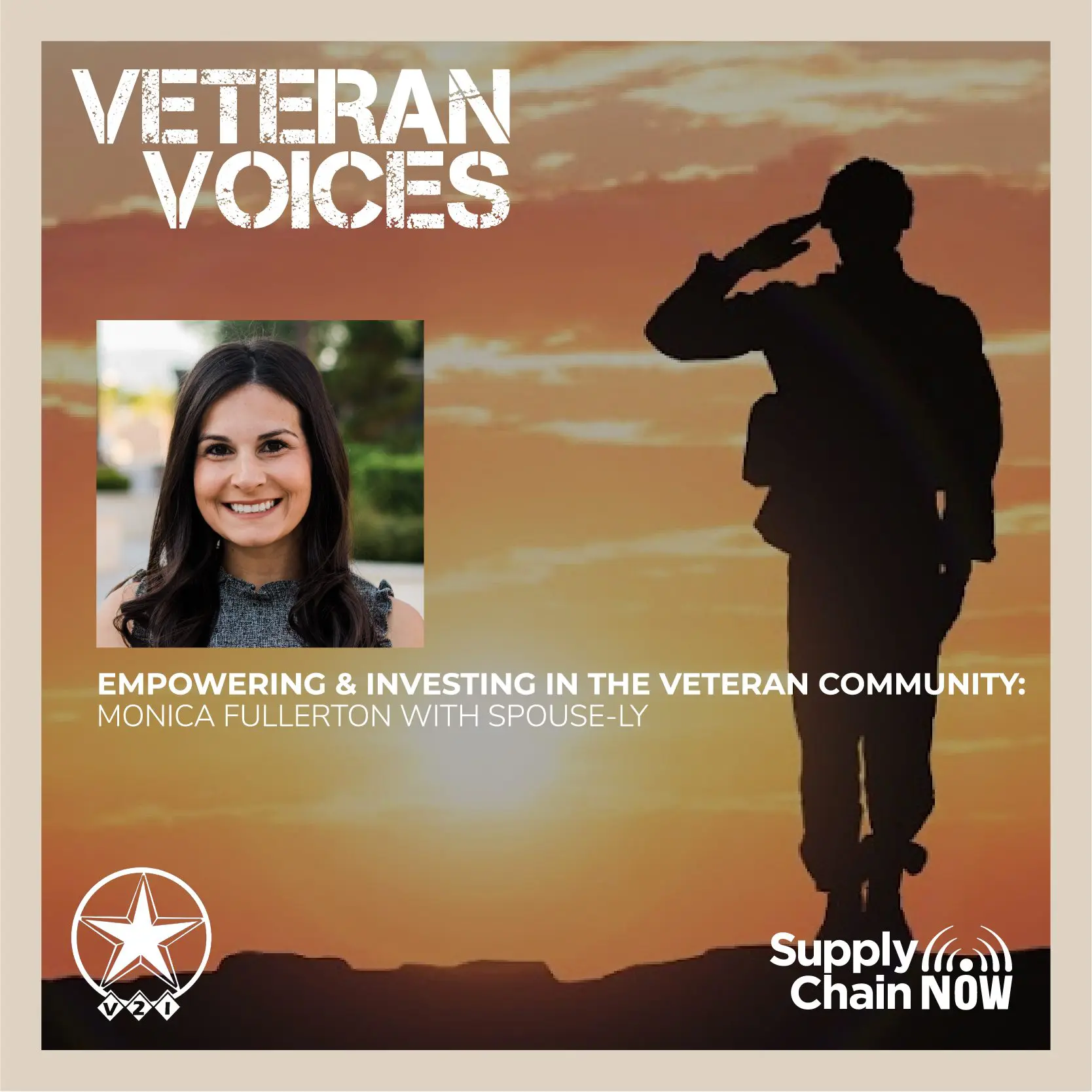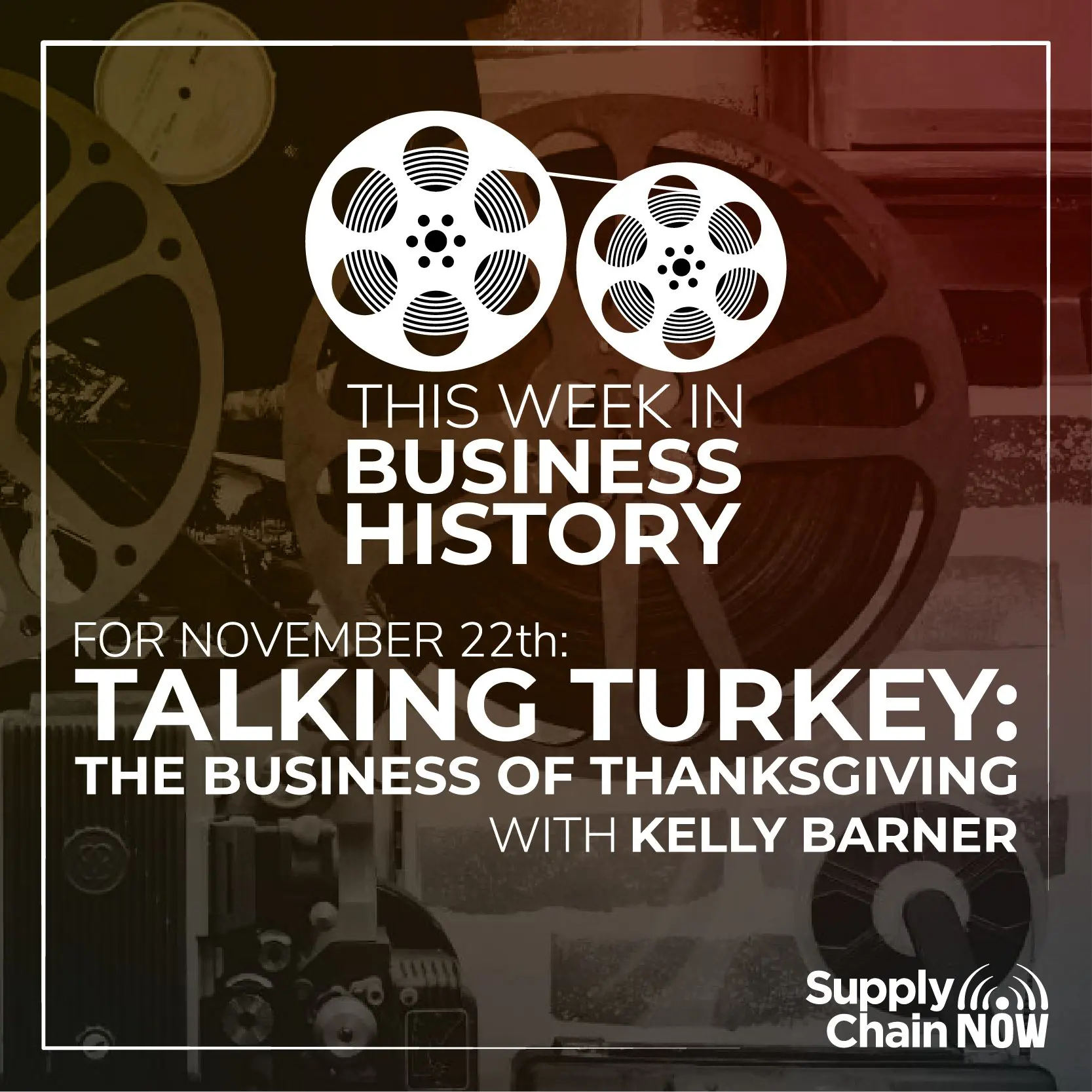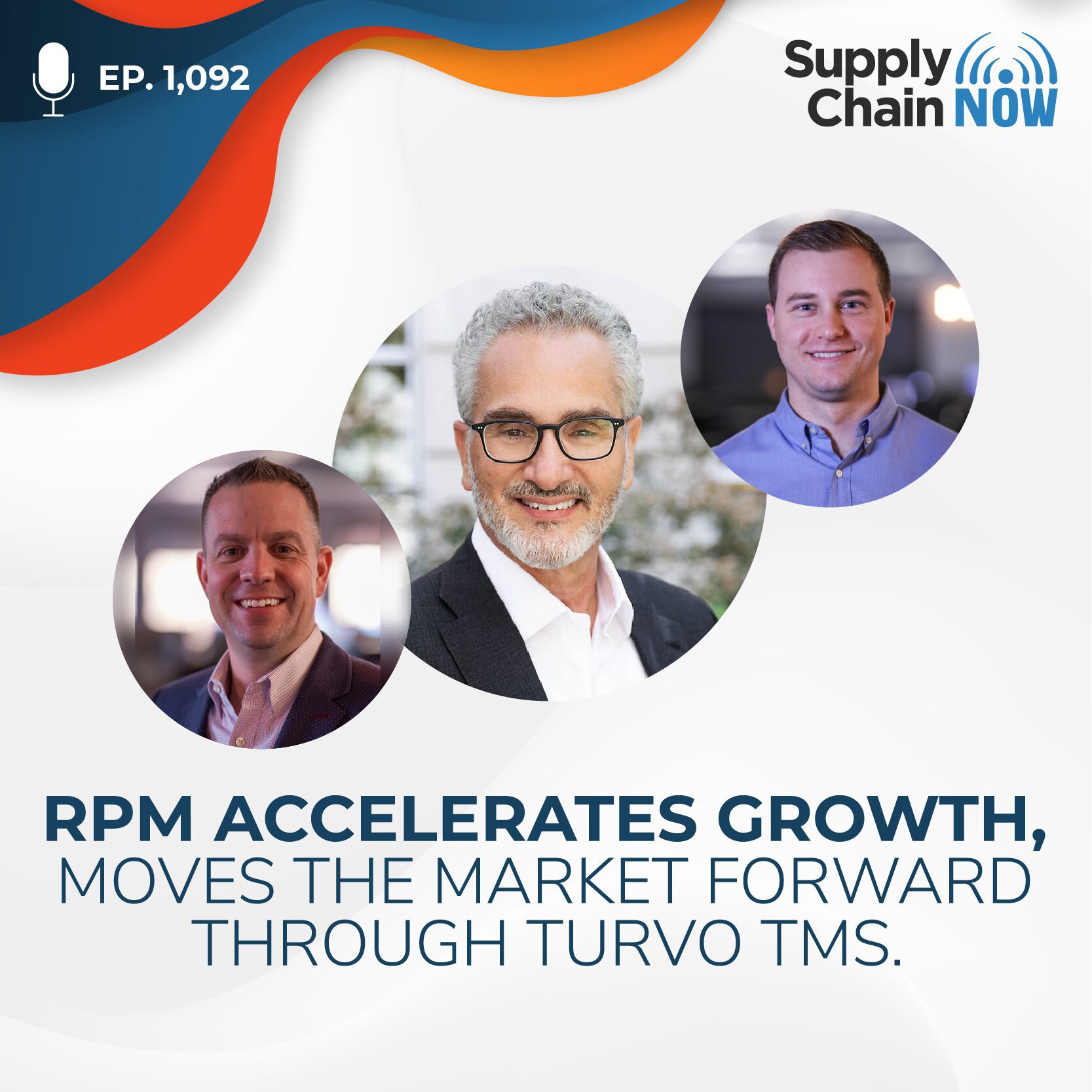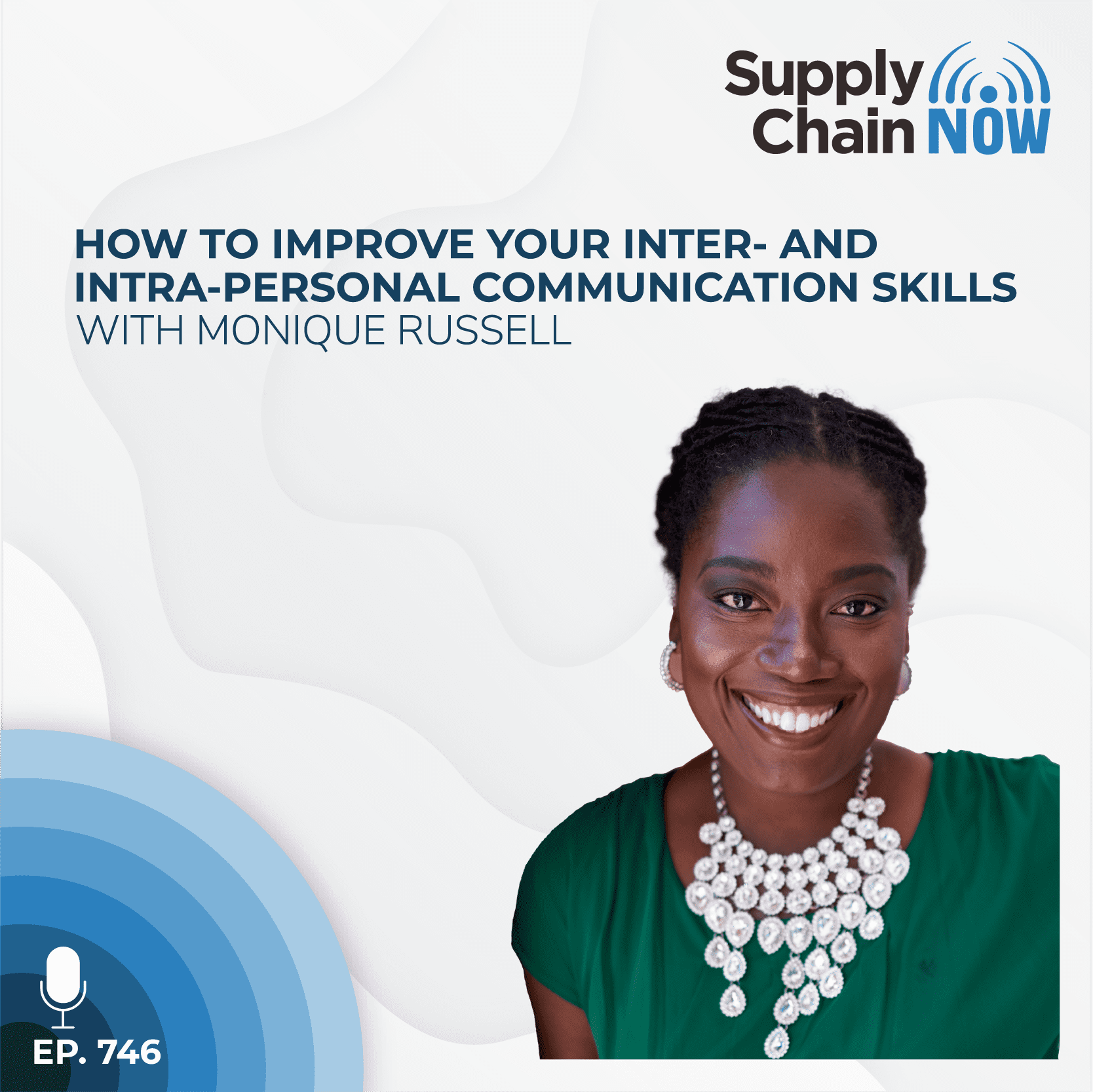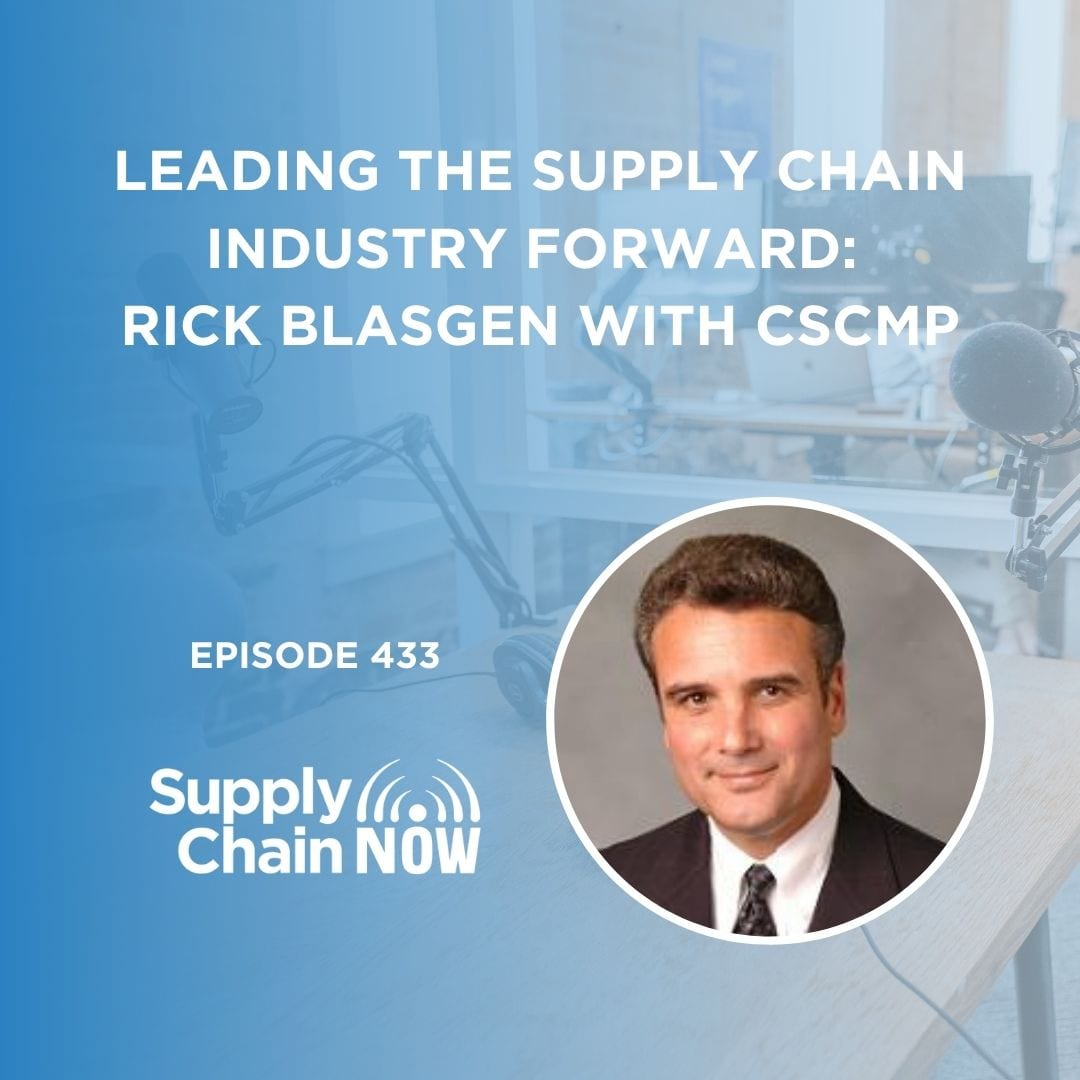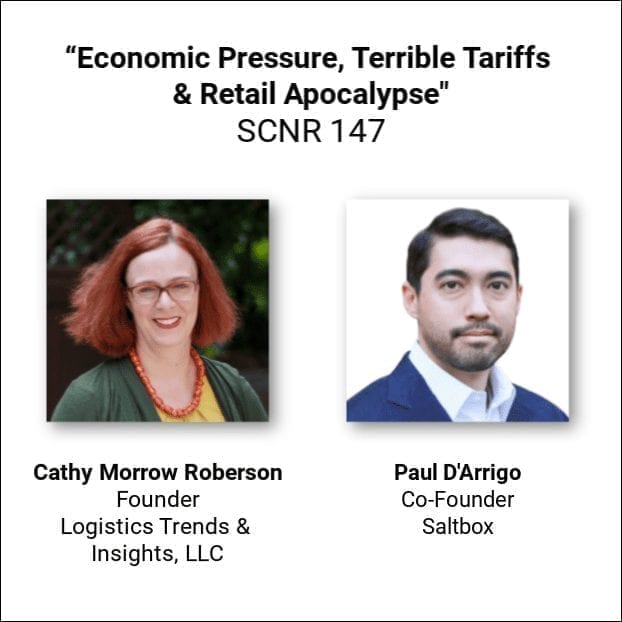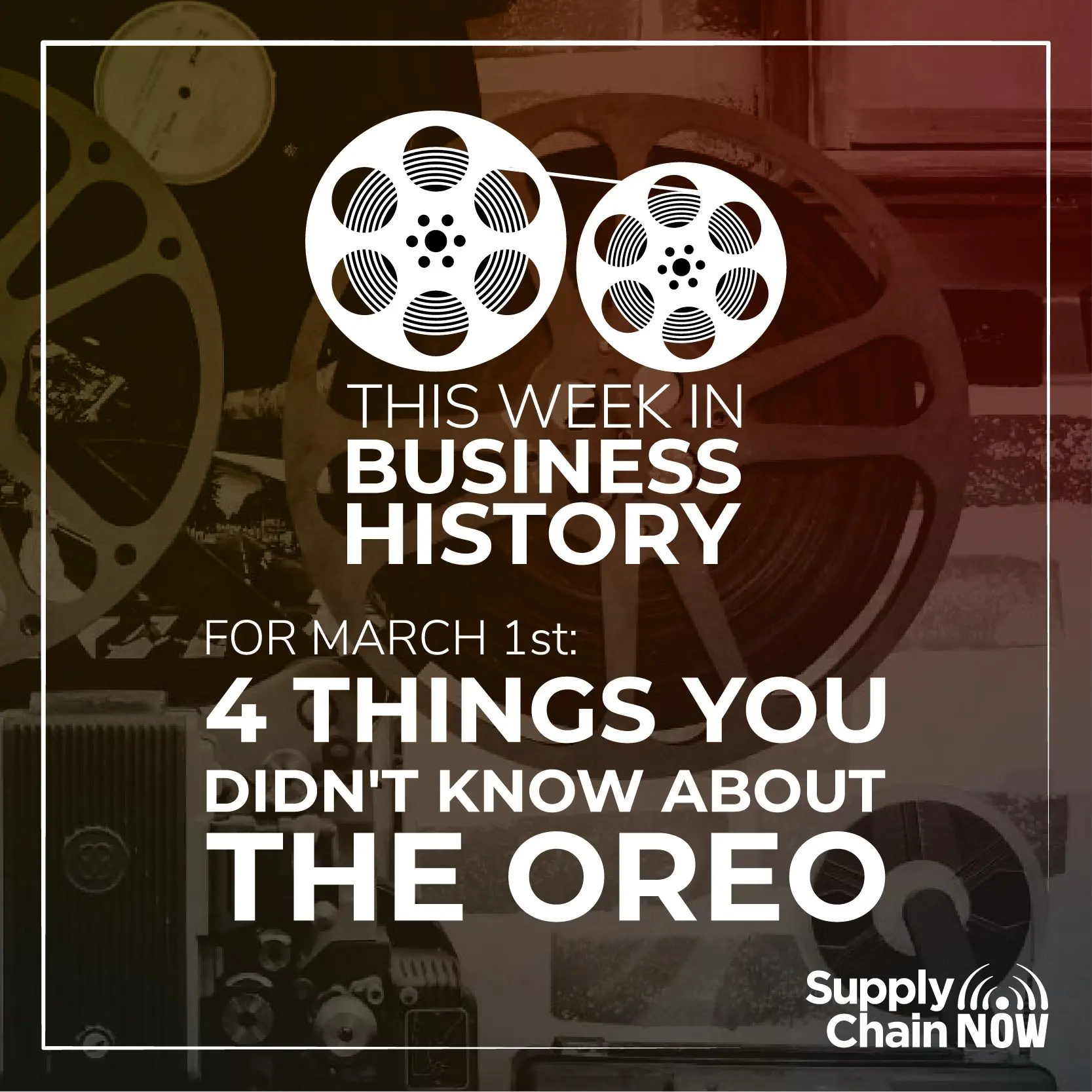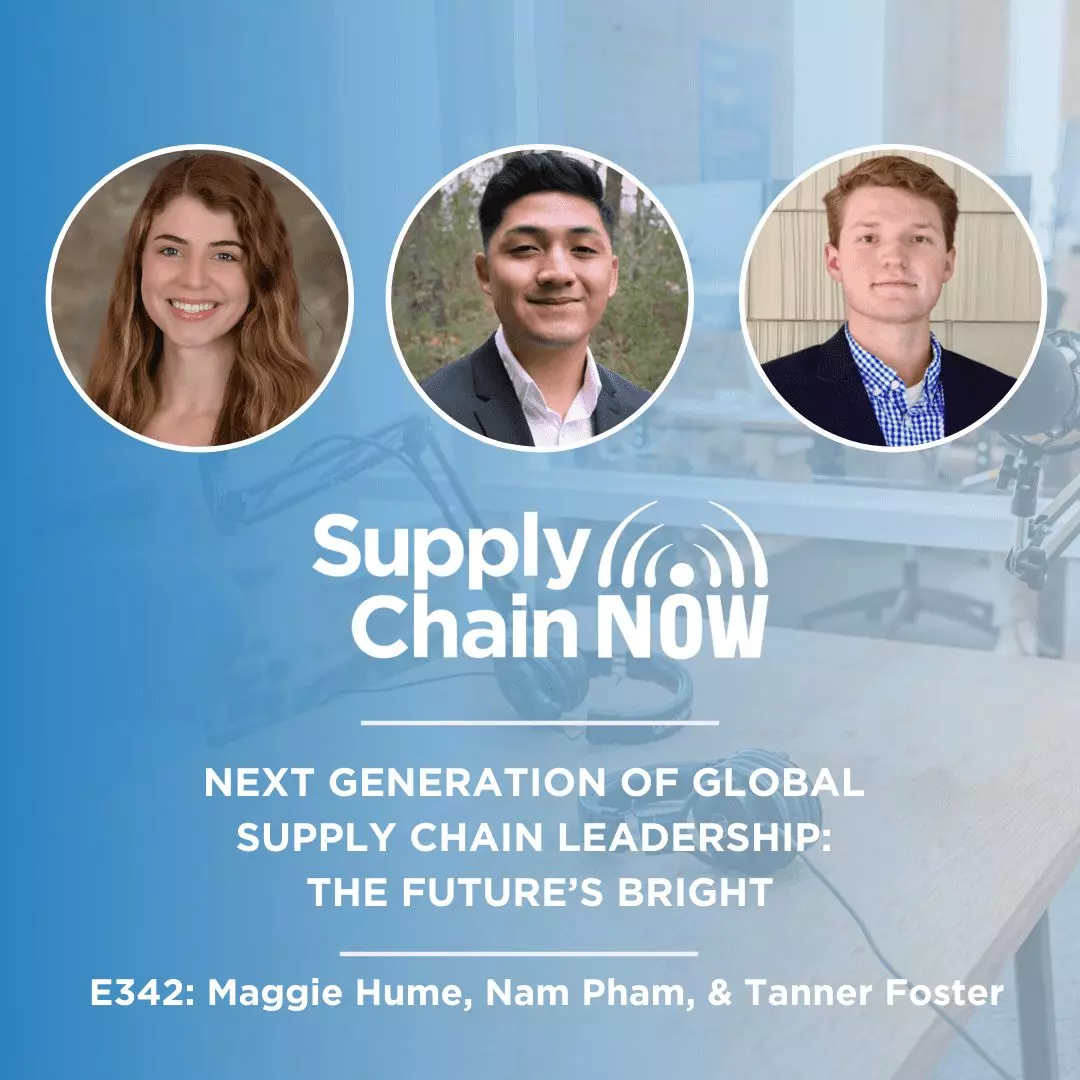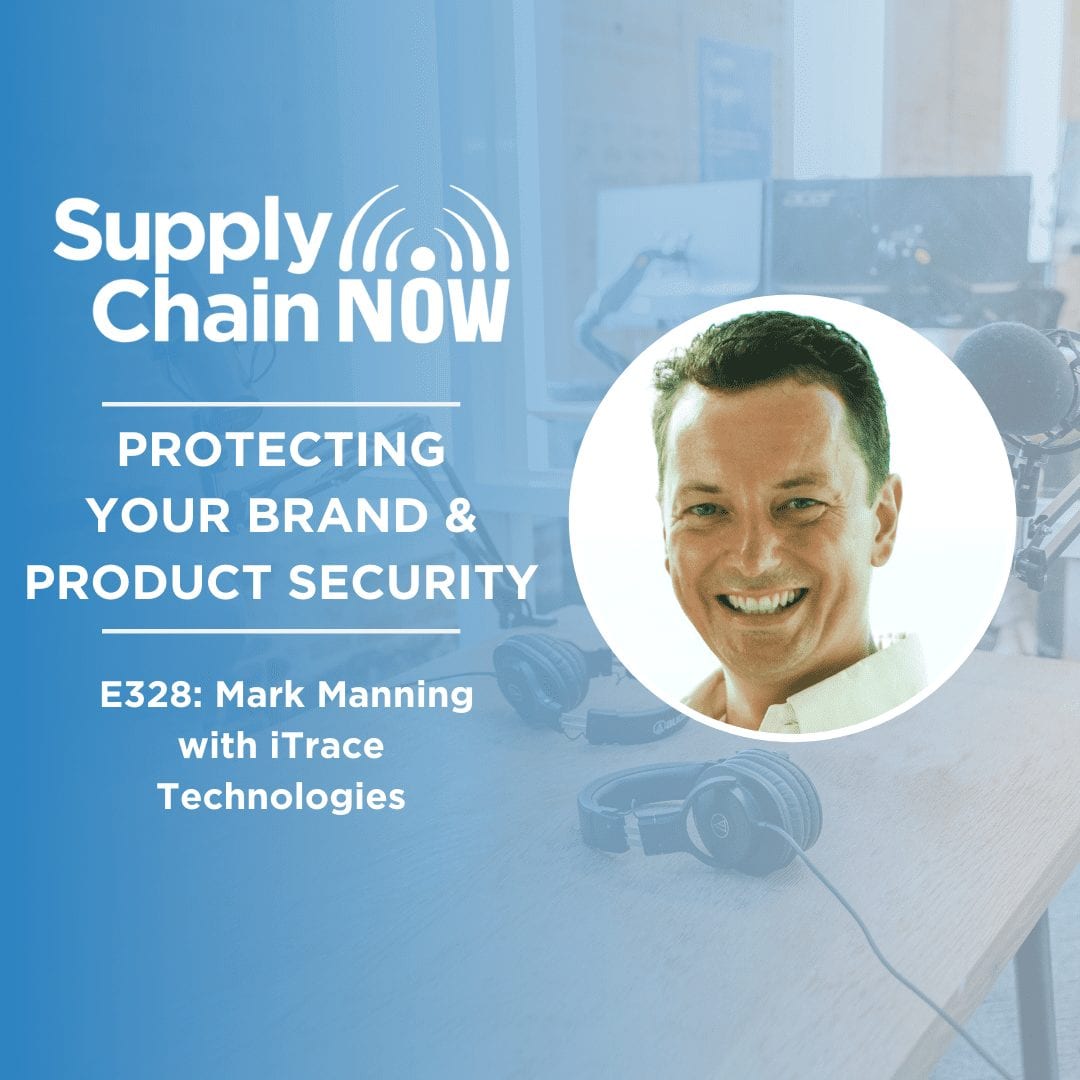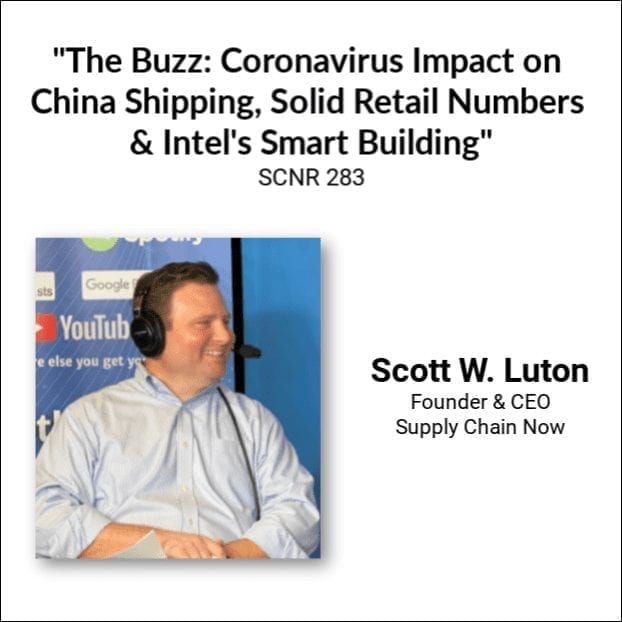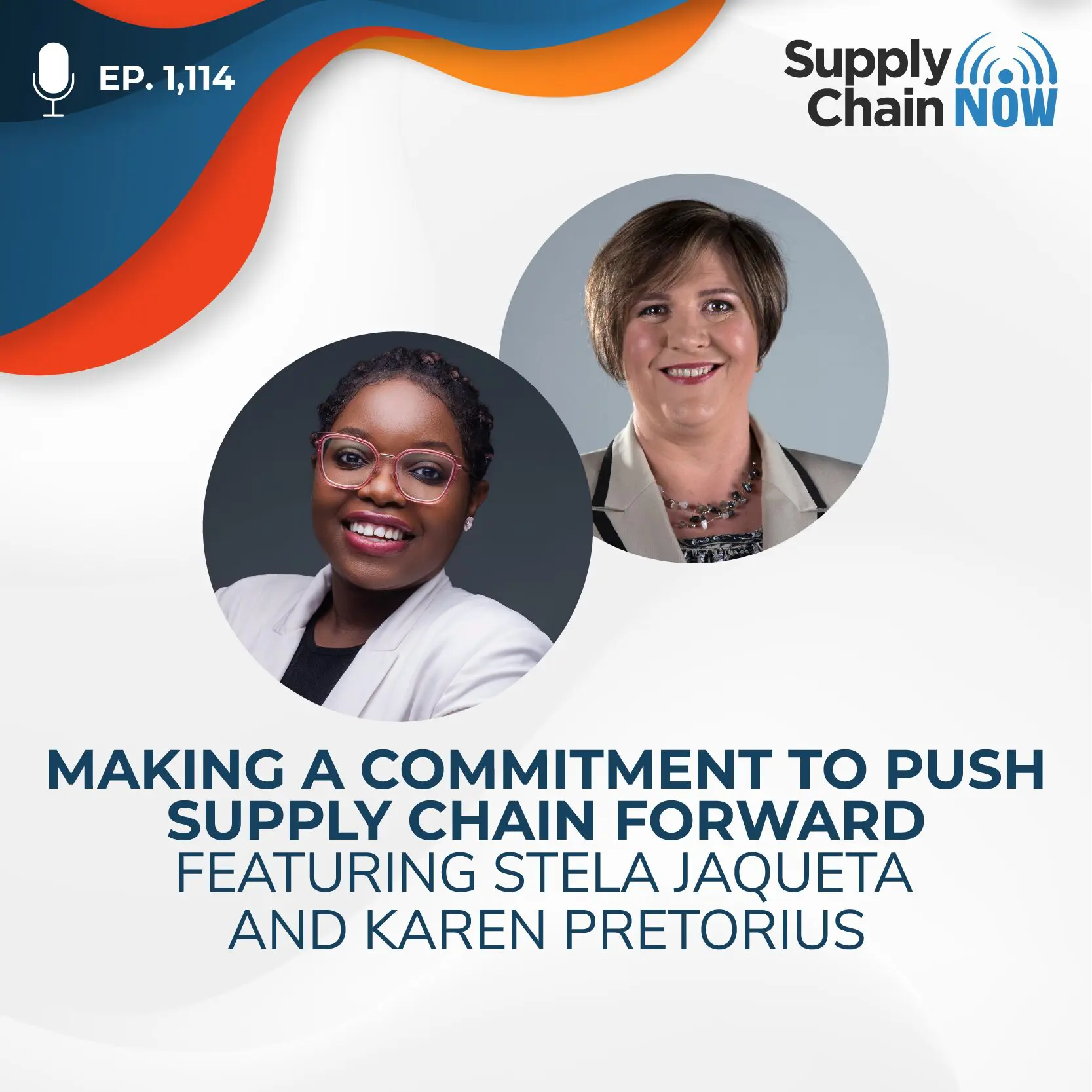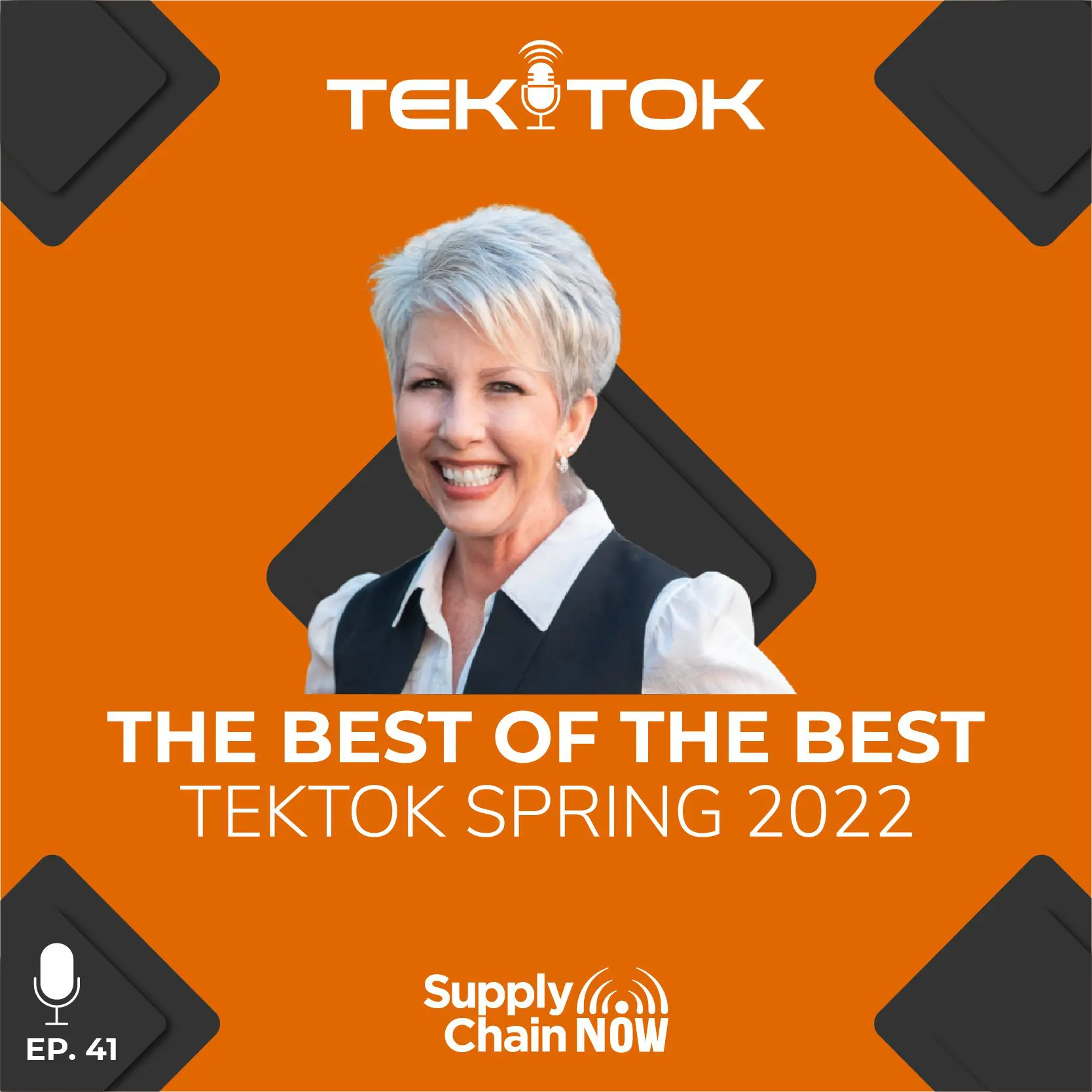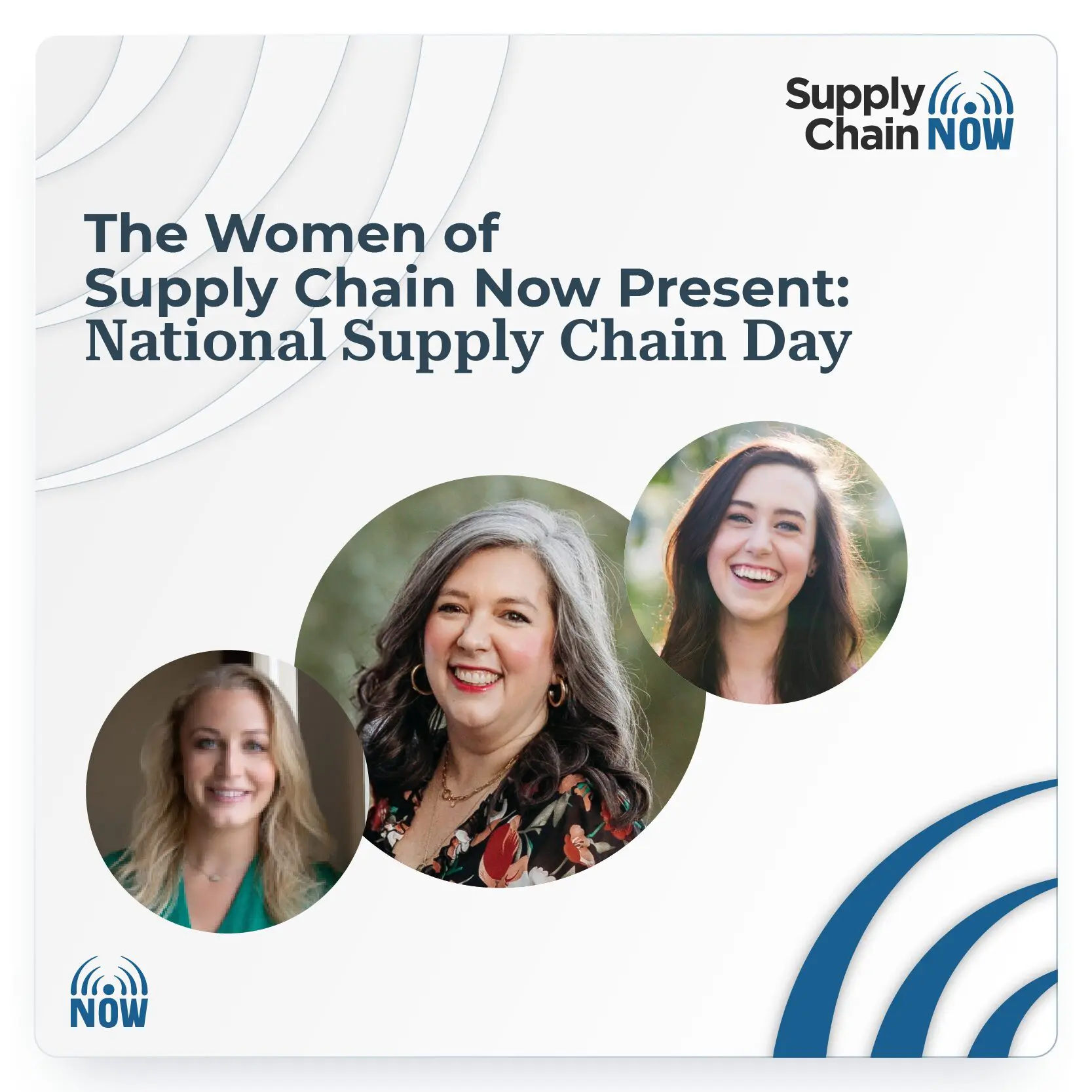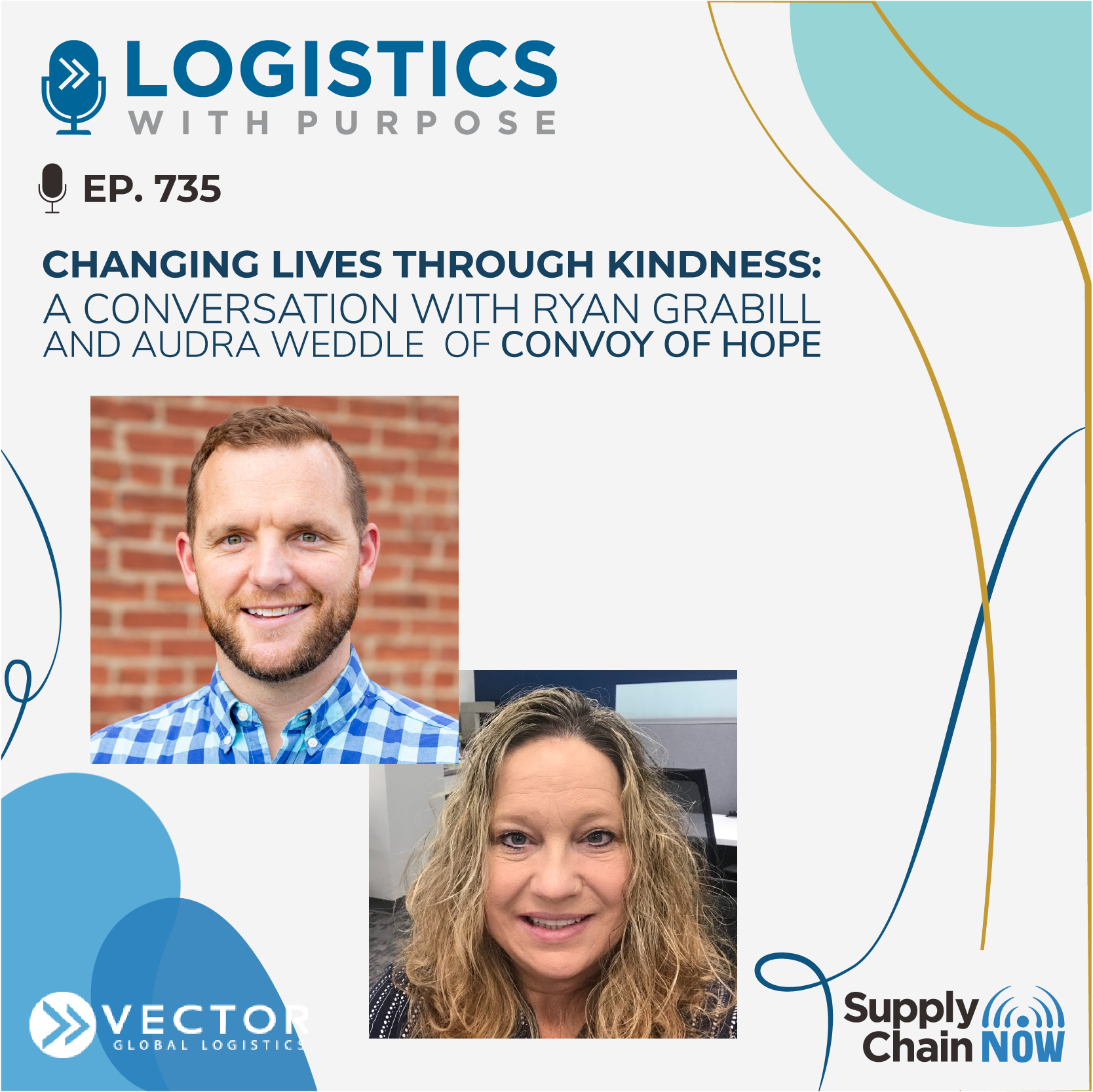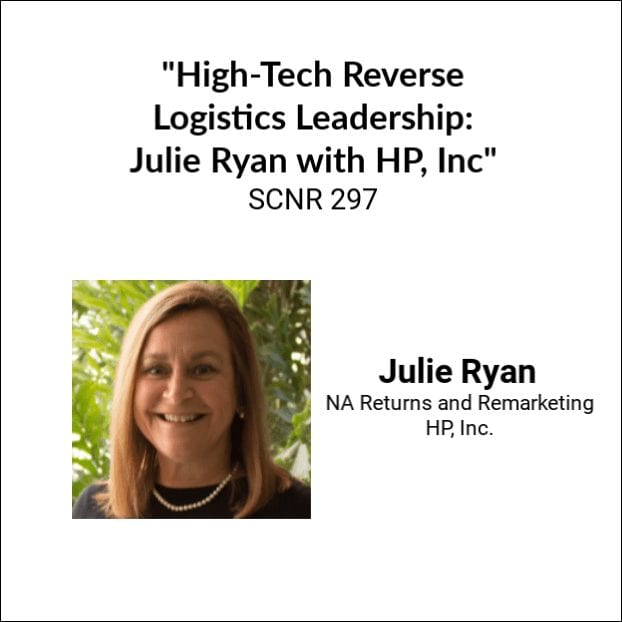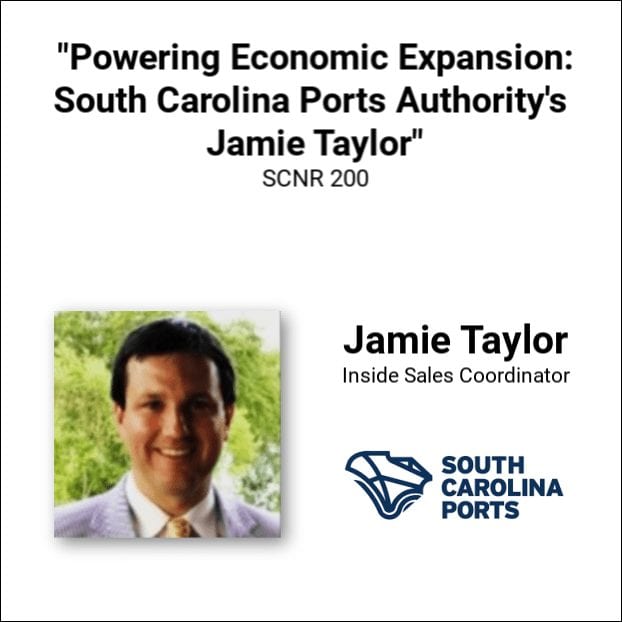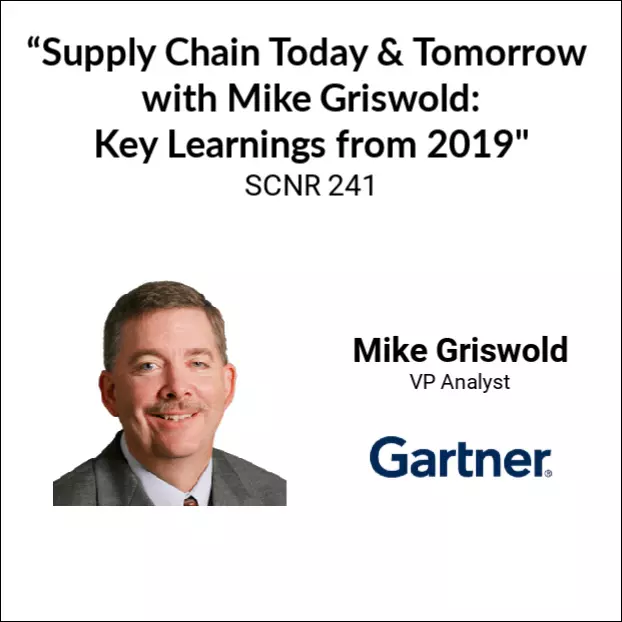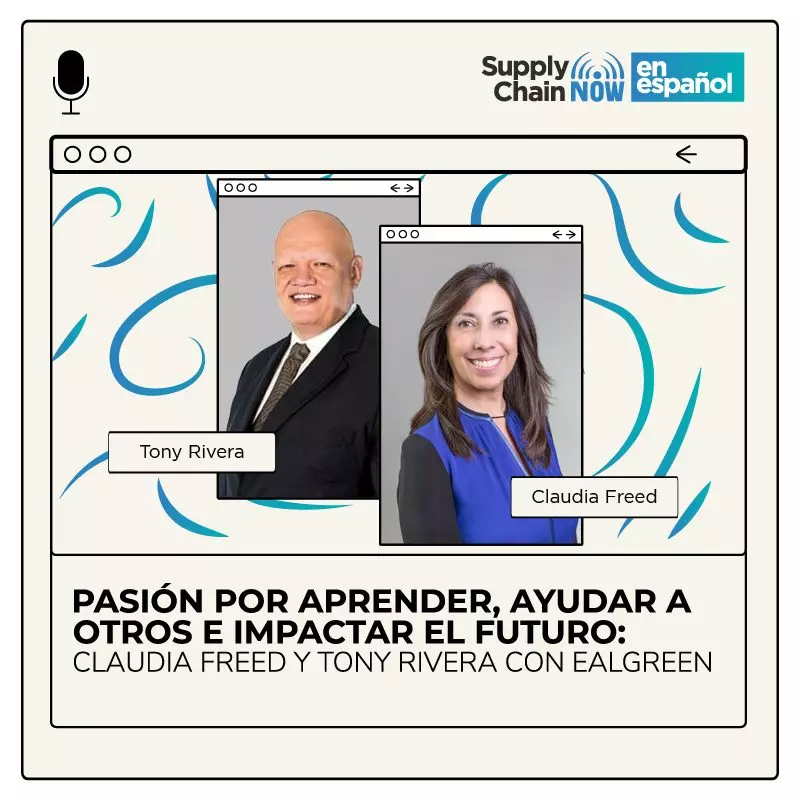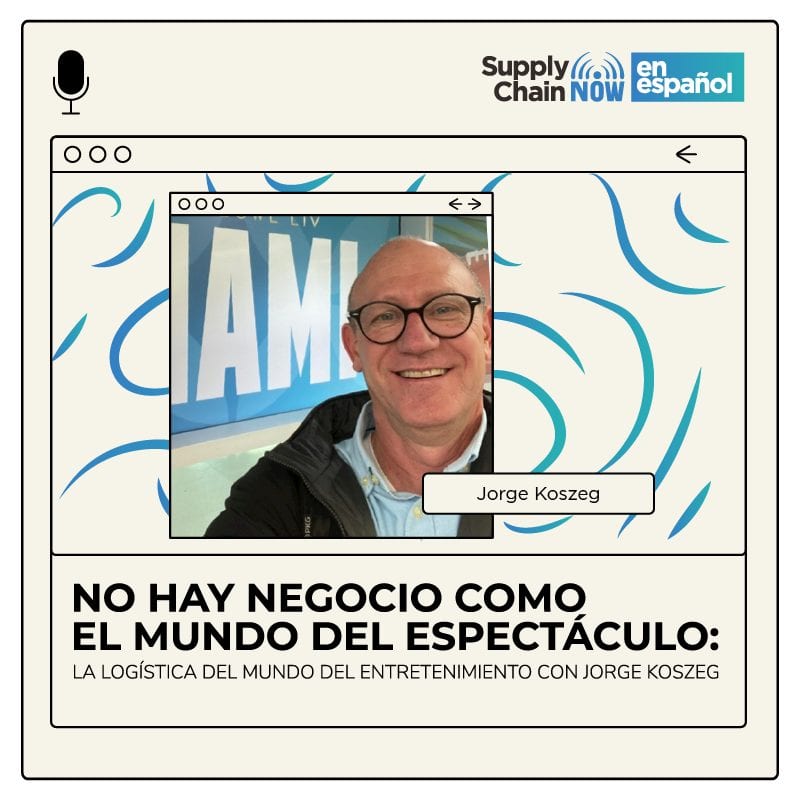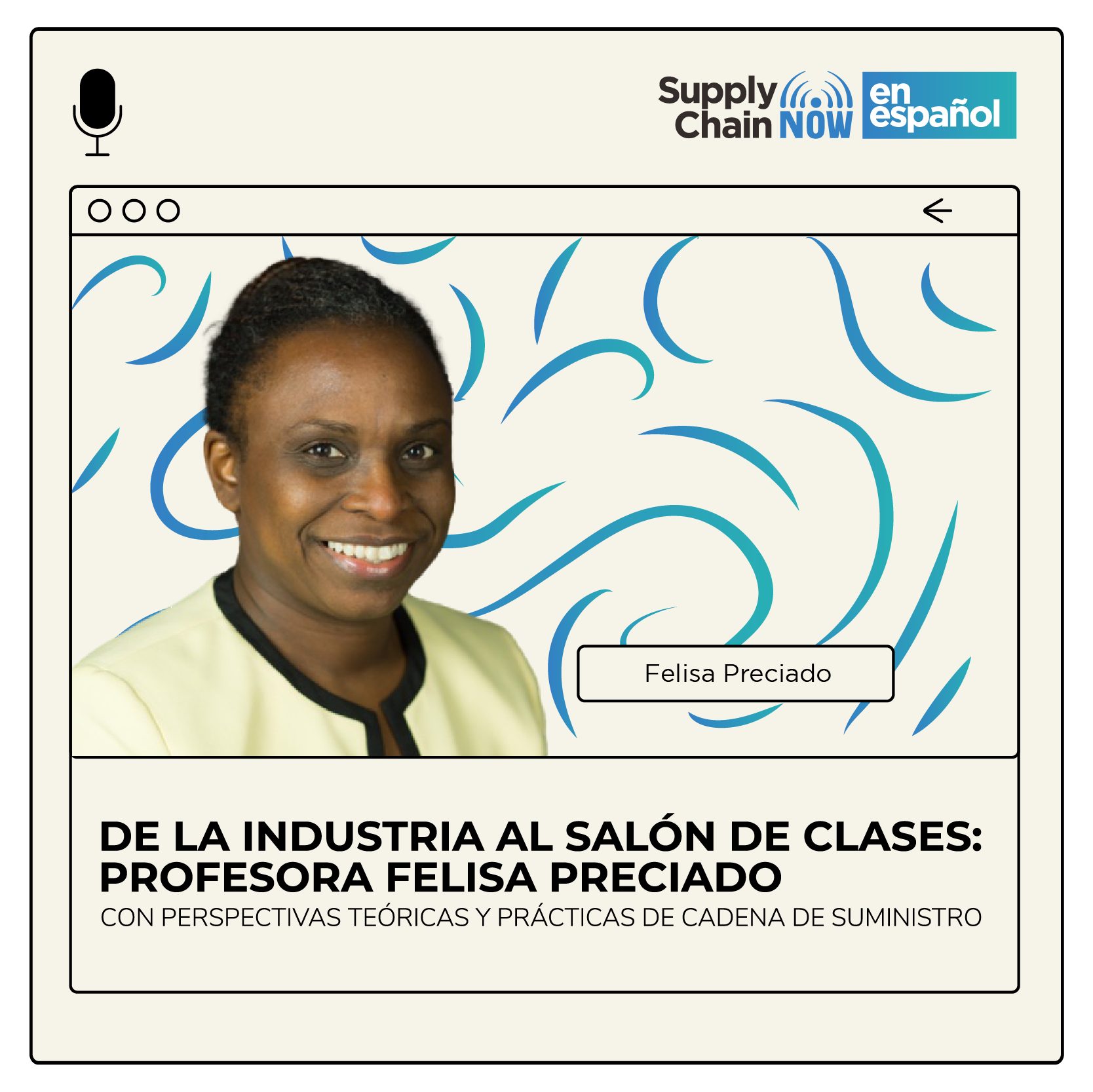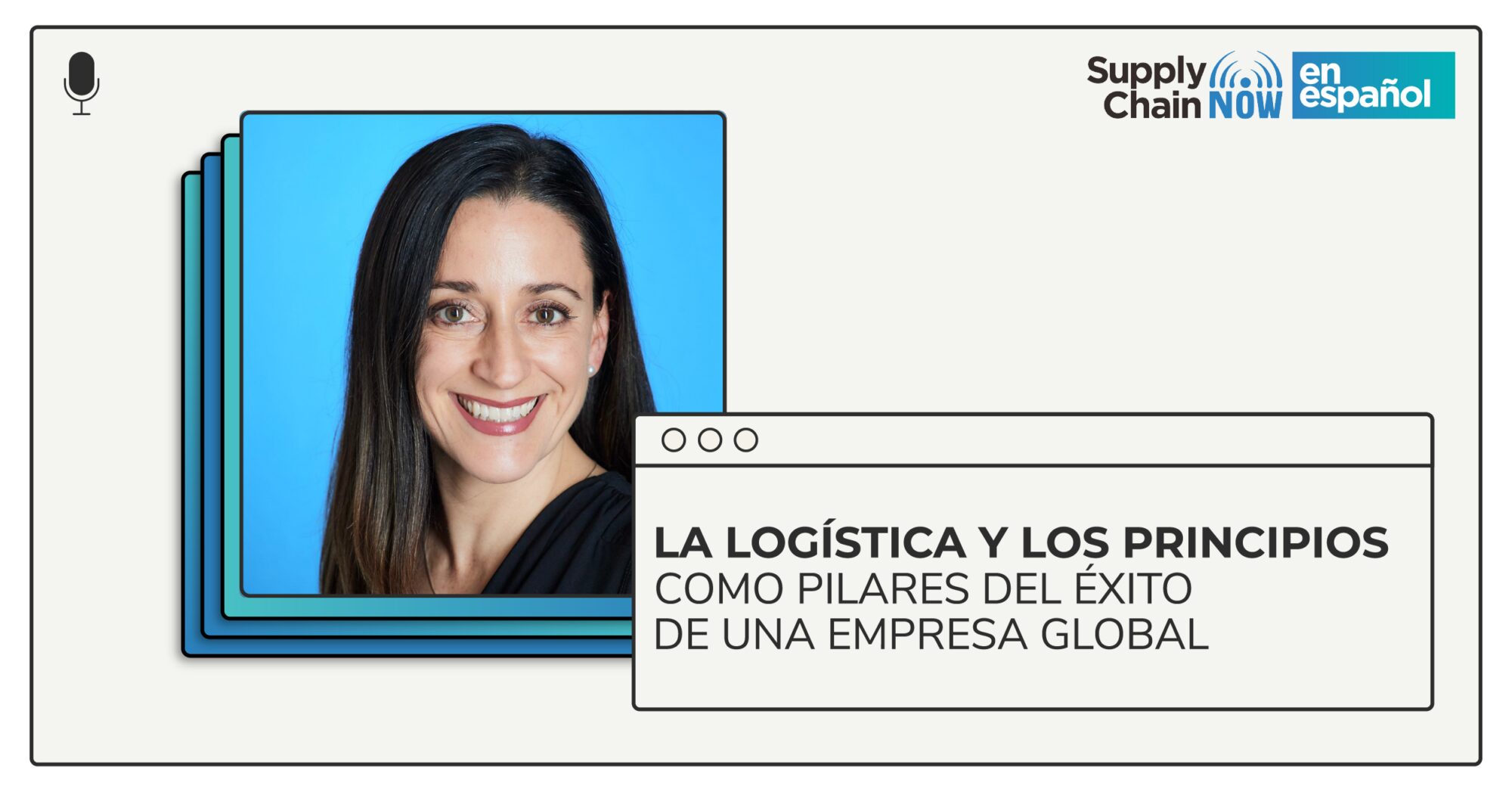
Nuestro propósito claro guía cada acción, haciendo de nuestras marcas algo hermoso y único. Construimos el mundo que queremos a través de cómo hacemos negocios.
-Tatiana González de Cossío
Resumen del Episodio
Nuevo episodio de Supply Chain Now en Español, escucha la increíble entrevista que Enrique Alvarez hace a Tatiana González de CossÍo; Supply Chain Director Mars Wrigley Latin America North. Conoce sobre la cadena de suministro y el éxito de una de las empresas globales más importantes en la industria de consumo con marcas lideres como: Pedigree, Whiskas, M&M’s, Snickers, Skittles entre muchas otras. Tatiana nos platica sobre su experiencia de más de 20 años y como vive los principios de la empresa en su vida cotidiana para poder trascender ¡No te lo pierdas!
Transcripción en Español
[00:00:01] Bienvenidos a su Play Now en español presentado por Better Global Logistics y Supply Chain Now. Este es el programa que damos a las personas de habla hispana en la industria logística en constante cambio. Únete a nosotros mientras descubrimos las historias inspiradoras de nuestros huéspedes y aprendemos de su experiencia colectiva. Nuestro objetivo no es sólo entretenerte, sino fomentar tu pasión por esta emocionante industria y apoyar tu desarrollo profesional en el camino. Y ahora, aquí está el episodio de hoy de Supply Chain Now en español.
[00:00:35] Muy buenos días y bienvenidos a otro episodio más de Supply Chain Now en español. El día de hoy tengo a una muy, muy interesante e invitada Tatiana, muchísimas gracias por estar con nosotros. Tatiana González de Cosío Supply Chain, director de Mars Weekly de Latinoamérica Norte. ¿Cómo estás? ¿Cómo te ha ido?
[00:00:53] Muy bien, Enrique. Muchísimas gracias a ti por la invitación, por hacerme parte de este gran proyecto que estás llevando a cabo.
[00:01:00] Es un placer para nosotros tenerte y una empresa tan reconocida con tantas marcas famosas. Veo que tienes a los fans ahí atrás viéndote este y bueno, gracias. Si quieres, para empezar, me gustaría que nos platicas un poco más de tu infancia. ¿Quién es? ¿Quién es Tatiana? ¿Dónde creció? ¿Cómo te fuiste alineando para tener la carrera tan exitosa que tuviste?
[00:01:23] Muchas gracias, Enrique. Pues mira quién está Tatiana. Tatiana Este nació en la Ciudad de México. Soy mexicana, mexicana, tengo ya muchos años viviendo en la ciudad de Querétaro. La verdad es que fue más por una decisión de familia hace casi 40 años, entonces no fue decisión mía, sino de mis papás y aquí he tenido la oportunidad de crecer, de estudiar por supuesto, y de desarrollarme profesionalmente. Actualmente estoy casada, tengo casi 13 años de casada, tengo una hija de casi 11 y como se ha vuelto muy relevante, también tengo una hija de cuatro patas.
[00:02:01] Más que nunca.
[00:02:03] ¿Ah sí?
[00:02:04] Oye, que son mucho mejor portados, pero es casi casi el mismo trabajo. Al final de cuentas.
[00:02:09] No nos importa mucho. No es.
[00:02:11] La mía, si.
[00:02:13] No, no es. Es una perrita muy linda. La verdad es que todos en la casa la queremos y este y bueno contentos de que también nos ayude a acompañarnos como familia.
[00:02:23] Claro que sí, claro que sí. Bueno, nuevamente bienvenida al show y nuevamente gracias. ¿Volviendo un poco al pasado, nos podrías compartir alguna experiencia, algo a lo mejor que te acuerdes cuando eras más niña creciendo en Querétaro, algo que pudieras compartirnos?
[00:02:36] Híjole, pues sí, la verdad es que experiencias hay muchísimas, es de cuando platicábamos previamente y de las cosas que para mí siempre han sido muy muy relevantes, de de lo que diría yo, me ha ido formando y creo que es parte de lo que hoy soy y de lo que también busco transmitir no sólo a mi hija, sino también a mi equipo de trabajo. Es algo que aprendí yo de mis papás. Es que cuando algo se quiere en la vida hay que tener este deseo, esta ambición. Pero más allá de eso, el poder establecer la dirección que se requiere para lograrlo y después la disciplina y este, y es algo que creo que lo acompaña, me acompaña en la vida, eso es la mera verdad. Creo que cada proyecto que he tenido, a lo mejor de corto plazo, de largo plazo, así, así ha sido. Y este inclusive hace poquito también con mi hija, este me decía mamá, para ir a Singapur hay que ser millonario. Y le decía yo cuesta menos que quieras ir mañana. Este creo que podemos establecer ese deseo y ese objetivo muy claro definir cuál es el camino que queremos seguir y después la disciplina para poder lograrlo, ya sea ahorrando o estableciendo muy bien el plan. Entonces, para mí eso es algo que ha sido lo que me ha acompañado y que más allá de ser una situación muy en particular, es lo que me ha ido forjando mucho de lo que yo soy hoy.
[00:04:01] Pues un objetivo claro y bueno, una disciplina que lo acompañe, eso creo que es una buena receta para el éxito. Y bueno, este te ha funcionado definitivamente no llevas creo que más de 20 años con más o casi 20 años. Cuéntanos un poquito antes de entrar a más, que es obviamente gran parte de tu vida profesional, si no es que toda este. ¿Cuéntanos si quieres un poco qué estudiaste? Cómo te empezaste a alinear con la cadena de suministro, logística, etcétera.
[00:04:31] Claro, mira, ahora sí que mucho dentro de este deseo. La verdad es que también se vale hacer cambios en el camino. Empecé estudiando Ciencias Políticas y Administración Pública. Me encantó lo que hacía, pero también vi que no era algo en donde iba yo a poder o donde pudiera yo realmente desempeñar lo que más me estaba llamando la atención. Entonces hice un cambio de dirección, terminé estudiando, escogí estudiar administración. De empresas. Entonces terminé la licenciatura de Administración de Empresas y creo que desde muy chica siempre tuve como claro, muy chica en mi carrera o en mis estudios profesionales, como que siempre vi muy claro que yo quería estar en el mundo corporativo. Tuve una primera experiencia en otra industria muy, muy distinta, también muy lejos de la cadena de suministro. Esa es la mera verdad. Era un rol mucho más financiero en la industria automotriz. Pero al poco tiempo tuve la oportunidad de regresar a Querétaro. Este trabajo no fue en Querétaro y este realmente en ese momento y creo que todavía de las empresas pues más que más llaman la atención y que mejor proyección pueden generar en Querétaro, sin duda Smart. ¿Entonces tuve la oportunidad de participar por una posición, fue ya una posición dentro de la cadena de suministro y eso fue lo que me fue abriendo la puerta, no?
[00:05:53] ¿O sea, tenías alguna experiencia anterior de cómo caes en la cadena de suministro? ¿O sea, te interesaba algo o conocías algo o realmente fue algo? Así que se te da la oportunidad y la tomaste con la actitud que.
[00:06:06] No, no tenía yo ni idea. Esa es la mera verdad. Mi experiencia ya ha sido, te digo más, en un lado muy financiero me ofrecen o bueno, se abre la oportunidad del rol. Era un rol en el área de servicio a clientes. De hecho, el amigo que estaba en el equipo me dice oye, se va a abrir una posición este pásame tu curriculum. ¿Y todavía me dijo Estás buscando un nombre? Pero no importa, tu pásame tu curriculum.
[00:06:32] No ha cambiado.
[00:06:34] Pero quiero aclarar, quiero aclarar. He estado buscando un nombre porque el equipo era de diez personas y eran nueve mujeres, entonces necesitamos darle un poquito de balance.
[00:06:44] Esa es una muy buena aclaración, porque sino todo el mundo diría bueno.
[00:06:48] No, no.
[00:06:48] Otra vez.
[00:06:49] No, no, no, no, no fue eso, pero pues ahora sí que no, no les ayudé en ese balance en ese momento, porque pues me quedé yo con la posición y la verdad es que pues empecé a aprender muchísimas cosas. Es más, te voy a contar una historia de algo. ¿Cuando estaba yo estudiando en la carrera me acuerdo perfecto, era un examen de marketing y era muy a principios de la carrera y me acuerdo perfecto la pregunta que decía qué es la logística? No la supe contestar, no la supe contestar. Mi mayor frustración en ese momento fue.
[00:07:22] De chistoso.
[00:07:23] No pude y este salí del examen así como frustrada por eso y inmediatamente yo bien, yo ya corrí a mi libro y dije en el glosario tiene que estar que es logística y nunca se me dijo que era como.
[00:07:36] ¿Pasa la vida no? Resulta que en una pregunta que no pudiste contestar luego se fundó toda tu carrera básicamente. Entonces entraste a este departamento de servicio al cliente, aprendiste un poco la marca, por cierto, una una empresa sumamente exitosa con una marca increíble. ¿Y bueno, creo que por todo lo que me has contado, también una cultura admirable, no?
[00:07:59] La verdad es que si marcas tiene, tiene cosas que en verdad la hacen única, la hacen única. Por supuesto, las marcas hacen única marcas. Tenemos marcas súper sólidas, hermosísimas marcas tanto de los segmentos de mascota con marcas como Pedigree Whiskas o en el segmento de Mark Regle con Sneakers, Milky Way, por supuesto, Skittles. Las marcas son, son. ¿Son hermosísimas, no? Pero las otras cosas que hacen único a marcas es el propósito tan claro que tenemos como. Como empresa. Y este propósito. No sé qué tan familiarizado estás con él, pero es básicamente el mundo que queremos. Mañana empieza con la forma en que hacemos negocios hoy y es increíble como lo puedes vivir y ser tan tangible en cada cosa que hacemos, no en cada decisión que tomamos, en cada acción hacia donde está orientada. Está completamente fundamentada en este propósito.
[00:09:01] Oye que no, y un propósito muy poderoso y bueno, te dice un poco la visión de la empresa de largo plazo. No siempre construir el futuro en base a tus acciones del día de hoy, pero volviendo ahora sí a tu carrera. ¿Por eso entonces entras en la primera área y cómo te fuiste poco a poco desempeñando y desarrollando para llegar hasta el puesto que tienes ahora?
[00:09:22] Mira, estuve en servicio a clientes durante un mes, que habrá sido como un año. Era una atención directa a cierto grupo de clientes. Eran clientes, pues que nos iba nuestro manager nos asignaba entonces pues ahí empecé a aprender este software, todo lo que tenía que ver con esta gestión de órdenes, la entrega a los clientes, el cumplimiento, el trato y la comunicación con las líneas de transporte. Al poquito tiempo, un poquito después de un año dentro de la misma función de servicio a clientes, me me invitan a tomar la coordinación. Del área. Entonces ya no veía yo un grupo de clientes, sino trabajaba con todo el equipo y básicamente era el producto disponible. Asignarlo a las órdenes de venta de acuerdo a la prioridad de fechas de entrega y demás. No todavía, por supuesto. Todo muy, muy dentro del área de logística. Posteriormente, en eso la verdad es que aquí se abre una oportunidad y muy, muy agradecida de que hubieran pensado en mí. Pero se abre una posición. En ese momento era ya un supply chain planner exclusivo para el segmento de chocolate. Hoy era 100% chocolate lo que veía yo y ya era, pues ya no veía yo las órdenes de los clientes, sino más bien pues asegurar que el producto estuviera listo para cuando las órdenes llegaran. ¿El equipo ya de servicio cliente se encargara de administrarlo, no? Y fue un trabajo también súper interesante este. En ese entonces todavía no tenía en México una planta de no producíamos nada. En México todo era importado entonces, pues mi trabajo era de total relación con nuestras afiliadas de Maxwell Smart Canadá. Para el surgimiento no hay.
[00:11:16] Me imagino que interesante también la nueva posición, no sé exactamente qué año, pero bueno, me imagino que cuando Supply Chain empieza a tomar un poco más de interés y auge también dentro de las empresas, no.
[00:11:30] Siempre lo he visto como interés y auge, esa es la verdad. A lo mejor.
[00:11:33] Porque yo también, pero, pero en general, bueno, creo que después de la pandemia somos la gente en general.
[00:11:39] Más común.
[00:11:40] Ahora sí creo que entiende un poco más la relevancia de lo que hacemos y la importancia de esto. Y bueno, como tú dices siempre ha sido importante, pero. Pero bueno, creo que ha habido una revolución tanto tecnológica como este de muchas otras, no en las cadenas de suministro.
[00:11:58] Pues mira, sin duda ahora te estoy hablando de esto, fue 2005, 2006, o sea, ya tiene ratito entonces, pero me tocaron cosas súper interesantes en el rol porque pues empezamos en ese momento a correr escenarios de capacidad para poner una línea de producción de sneakers y Milky Way en México. Entonces pues te enfrentas a a situaciones y a conversaciones muy diferentes a las que venía yo teniendo.
[00:12:28] ¿Oye, y bueno, un breve paréntesis aquí cuál es? ¿Cuál es tu dulce chocolate favorito? Y te pregunté antes de que empezáramos a grabar, pero creo que sería interesante saber.
[00:12:38] Claro. Mira, me encanta. Bueno, el Milky Way me fascina.
[00:12:42] Este es un clásico.
[00:12:43] El Milky Way es un clásico. El Milky Way. La verdad es que todos me gustan y depende de un tema de momentos. Me encanta este tema de del de los poquitos de a poquito a poquito de los semanales. ¿Bueno, me fascina, no? Este Twix es una marca. Bueno, deliciosa. Este. Mi esposo los compra. ¿De veras? Yo creo que cada semana me llega tanto hecha la casa este. ¿Que si pienso en dulces? Bueno, los pesqueros, particularmente los pesqueros. Este shower, los asientos.
[00:13:13] Azules.
[00:13:13] Son una delicia. Entonces este termina siendo más una cuestión de momentos de arte.
[00:13:19] Oye, y bueno, a nosotros y a lo mejor para los que nos escuchan, no necesariamente necesariamente en México, pues bueno, también hubo una apertura comercial muy importante. Yo me acuerdo cuando iba a la escuela que no había, no podías comprar un Milky Way, de hecho cuando ibas de casualidad y alguien te lo traía a Estados Unidos o ibas con tus primos o algo, era. ¿Era todo un suceso, no? Me imagino que eso también te haber tocado. Y luego trabajé en una empresa que los importa y distribuye. Haber sido un orgullo muy grande.
[00:13:49] Tal cual lo que describes Enrique, porque cuando estaba yo más chica, antes de empezar a trabajar, más antes de soñar siquiera trabajar en más, de repente llegaban a la casa el paquete de Milky Way y mi mamá y mi papá los guardaban en el closet. O sea, no, no era.
[00:14:05] Velación, era una luz como medicina casi. Bueno, aquí tienes tu cuadrito y día.
[00:14:11] Y así era entonces este. Pues ya, ya, ya. Sigue siendo una ilusión, ya no los guardo en el clóset, ya mi papá tampoco los guarda en el clóset. Sí, sí, sí, sí. Le doy de vez en cuando.
[00:14:23] A mi abuelo. Muchas veces los guardo en el clóset, ya incluso cuando ya los podía comprar en la comercial o donde fuera, pero. Pero bueno, volviendo un poco, un poco al punto, creo que la marca tiene un arraigo muy importante en México, porque todos de chicos de nuestra generación a lo mejor pues tenían esa ilusión de probarlos, entonces ha crecido exponencialmente. Pero cuéntanos un poco más, no tenían planta en México todavía, este.
[00:14:50] No de de la parte de chocolates, no teníamos planta en México. Esta planta arrancó producción. Sí me. No falla por ahí del 2010 y.
[00:15:02] Te tocó todo el proceso también.
[00:15:04] Fíjate que parcialmente porque corrí yo los escenarios de capacidad de la línea. Fui parte del proyecto para procesos de aprobación y y principalmente, pero poquito después me muevo yo de rol. Entonces ahí ya no fui yo quien le dio continuidad a eso. Este tomó un rol dentro, muy logístico, responsable de toda la parte de almacenes, control de inventarios. Este entonces pues muy también muy dentro del scope de Supply Chain. ¿Pero me salgo de la parte de planeación para irme a más a una parte operativa, no?
[00:15:46] ¿Entonces te gustó el cambio? ¿Porque bueno, son, digo, llevas varias etapas de tu carrera, pero el cambio de de planeación a algo ya operativo es que es un cambio grande también, no?
[00:15:57] Mira si me gustó, posiblemente podría yo pensar que en ese momento me faltó poquito tiempo en planeación. Me hubiera gustado ser quien llevara un poco a la vida todos estos escenarios de capacidad y ya verlos corriendo dentro de mí, dentro de mi responsabilidad. La verdad es que mientras el tiempo en el que estuve en la posición de planeación lo disfruté enormemente, fue. Fue una época con muy buenos resultados para el negocio de chocolate. También en esa época creo que hice mis mejores amigos del trabajo. Son de son de esa época. Entonces este me faltó tiempo ahí, un poquito. Hoy tengo la oportunidad nuevamente de estar muy cerca de eso. Entonces me siento también contenta por eso.
[00:16:41] Cuéntanos más entonces cómo llegamos, cómo llegas a tu puesto de ahora y luego hablaremos un poquito de eso también.
[00:16:46] Pues mira cómo llego. Hubo un cambio importante y aquí sí me gustaría comentártelo porque fue de las cosas, creo que son de las cosas más trascendentes que ha habido y es. Después de construir en Play me muevo a planeación de demanda, entonces me muevo como del otro lado de de del. Voy a llamarle del escritorio, a trabajar mucho más de cerca. Pues con con los clientes, con nuestros equipos de marketing, con estos equipos que son donde se está generando la demanda. Y la verdad es que el movimiento me ayuda a generar una perspectiva tremenda del negocio. ¿El entender muchas de las cosas que desde el lado de su plan a lo mejor cuestionas, empiezan a tener muchas respuestas cuando cuando estoy sentada y entendiendo pues toda la parte de demanda no? Entonces estuve en demanda un tiempo también ya completamente al helado de chocolate y al final la verdad es que terminé redondeando muy. Cuando integra su plan integral demanda, pues es ya muy un proceso de esa no opino de todo el Strategic de Payment Operations Planning. Perdón por decirlo en inglés, pero bueno, eso es lo que significan las siglas y este. Y al estar dentro de este rol estuve yo como en un en un aspecto de de muchísima, de poca profundidad pero de mucha amplitud para entendimiento del negocio.
[00:18:10] Claro.
[00:18:11] Y a mediados del año pasado pues se se abre la posición de director de Supply Chain para para más reglan y la verdad también súper súper agradecida de que me invitaran a participar y pues aquí estoy.
[00:18:24] Bueno, pues antes bueno, muchísimas felicidades. Creo que no por lo poco que hemos tenido el placer de hablar y lo poco que me has contado, creo que no es sorpresa para nadie. Eras definitivamente la mejor candidata para el puesto después de todas las diferentes etapas que tuviste a lo largo de tu carrera con. Bueno, como lo dijiste, no tienes la oportunidad de ver de un lado lo del otro, luego los almacenes, luego un poco la servicio al cliente, luego la demanda y bueno, felicidades y un gusto nuevamente gracias. Obviamente, sin duda una de las mejores empresas para trabajarlo. Habíamos platicado un poco, es una gran cultura, de hecho han ganado varios reconocimientos a nivel mundial, no ves plazos de work, etcétera pero tienen cinco principios. Tú nos hablaste un poco de de uno de ellos, podrías comentarnos un poco más de de este tema y a lo mejor un poco más sobre la cultura. ¿Y qué has aprendido trabajando en una cultura como la que trabajas?
[00:19:23] Claro, este la verdad es que es difícil hablar de marcas y no hablar de los cinco principios. Los principios es la verdad, la forma en que hacemos negocios, en la forma en que trabajamos, la forma en que tomamos decisiones. Y te mencionaba yo hace ratito, no es este propósito del mundo que queremos. Mañana empieza con cómo hacemos negocios hoy. Pues en los cinco principios es justo como hacemos los negocios hoy, no para crear este mundo que queremos mañana. Estos principios son son a nivel global. ¿No es algo de México, no? Es algo de Estados Unidos. Entonces también es algo que nos une, sin importar geografías, culturas, generaciones. Porque los principios que hacen ya bastantes años de que la familia Marx decidió o los acuñaron y también nos une entre segmentos. Platicaba yo antes de que empezáramos no más, tiene un segmento de negocio de mascotas y un segmento de negocio también de de de Confessions y speaking. Los principios son comunes sin importar a que segmento estés. Entonces, realmente los principios, pues, son el corazón de nuestro éxito. Este es algo que nos guía y que nos habilita para para tomar decisiones. Entonces, además para para darte aquí referencia son cinco principios. Empezamos con calidad, responsabilidad, reciprocidad, eficiencia y libertad. Esos son los cinco principios. Y algo que se vuelve increíble es, por supuesto, los ves en la pared de la oficina, pero lo más relevante es cuando en una conversación es es. Es lo que ponemos al centro de la conversación también.
[00:21:10] O lo que es lo que. ¿Qué es lo que decías? No, no son. No es realmente el póster de la pared. Realmente estás usándolos diariamente. La gente los platica, los comenta, los vive y bueno, sí ha agregado. A eso los usas para tomar decisiones de toda índole. Pues bueno, no es claro.
[00:21:30] Ahora déjame, te comparto. ¿Para mí lo que es todavía más relevante con los cinco principios y es ojalá los hubiera yo podido escribir, no? Pero, pero me definen de manera personal e increíblemente no el el nivel de de. Pues ya de haberlos también tomados como bandera propia y decir esto me refleja, me me, me resuena y vivo también bajo los mismos cinco principios, porque creo que trascienden un tema de negocio y son perfectamente cosas que puede uno tomar para su vida personal. Y en mi caso así es. Esa es la mera verdad. Es esta. Pues te diría yo, empatía personal y profesional hace también, pues, que me haga sentir una verdadera, como decimos en México, una verdadera marciana.
[00:22:16] Claro que sí. Y eso es bueno. Eso no lo había oído el término, pero. Pero hace mucho sentido. ¿Tatiana Alguna experiencia a lo mejor particular en tu muy exitosa y larga carrera con Mars, algo que a lo mejor nos pudieras compartir y que aprendiste para que nuestra nuestra audiencia pudiera aprender un poco de a lo mejor alguna experiencia, algún error, algo, algo que te que te marcó? A lo mejor.
[00:22:44] Gracias Enrique. Dame, dame chance y tú dime si puedo regresarme tantito porque mencionaste esta parte de de best place to work y quería yo justo conectar la parte de los cinco principios. Y es este tal vez Place to work. Entonces cuando. Cuando empiezo con este tema de hacer lo que lo que digamos, el mañana empieza con lo que hacemos hoy, lo primero es empezar con nosotros mismos, no con nuestros asociados. ¿Y de ahí también es que se desprende, pues este, este gusto voy a llamarle así por ser el mejor lugar para trabajar y que se vuelva tan tan relevante, no? Y a partir de ahí es que Mars crea o le da forma a ciertos programas que nos ayudan y nos habilitan en este para ser el mejor lugar para trabajar. Programas enfocados a a toda la parte que tiene que ver con voy a llamarle parenting, pero es pues obviamente maternidad. Pero no dejamos de lado la paternidad porque al final es, es, es, es un tema de dos.
[00:23:46] Claro.
[00:23:47] ¿Entonces todo lo que como, como organización podemos hacer para apoyar a nuestros asociados a seguir construyendo una carrera exitosa sin dejar de lado el poder también construirse y desarrollarse como papás, no? Programas también, por supuesto, de desarrollo a nuestros asociados y algo de lo que particular y personalmente ahorita me siento muy orgullosa. Acabamos de lanzar en México en Mars Greeley Land, un programa que es de atracción, de talento, de este de Ten de nuevo talento y cuando digo nuevo es, es, es talento joven que queremos asegurarnos de poder darles las herramientas para poder tener una carrera exitosa dentro. Además, el programa se llama M. Es July, que significa Mars Supply Leadership Experience y este fue todo un proceso de selección de realmente una gran cantidad de candidatos de diferentes universidades del país y lo que buscamos es que tengan las oportunidades para trabajar y conocer diferentes roles dentro de la cadena de suministro para que puedan ayudarles a tener una carrera de. Crecimiento acelerado y bueno, desarrollarse más de manera exitosa.
[00:25:05] Oye, pues muchísimas gracias por compartir eso. Me da gusto que lo mencionaste y también te iba a decir todo este tipo, a lo mejor de iniciativas y programas que tienen como esto que se ve muy muy interesante, de atracción de nuevo talento lo podemos poner las ligas, a lo mejor en las notas de la entrevista para que la gente que está interesada obviamente también pueda llegar. ¿Y me imagino que habrá información en línea sobre todo esto, como aplicar, como llegar, como contactarse, cierto?
[00:25:32] Por supuesto, este no tengo el dato ahorita. Exacto, pero mándamelo.
[00:25:36] Y lo ponemos, lo ponemos en la notas de la entrevista, porque como tu dices es muy muy interesante. Y bueno, muy buena oportunidad para cualquiera que nos está escuchando. Sí, sí.
[00:25:48] Sí, la verdad es que si.
[00:25:49] Algún reto, cuéntanos ahora una experiencia. A lo mejor a lo largo de tu que hayas aprendido algo, algún reto que se te haya presentado en tu rol.
[00:25:57] Este o a lo largo de trayectoria o ahorita en el rol, porque la lista puede ser en tu.
[00:26:04] Totalmente, totalmente para ti. Tu dinos que qué es lo que quisieras compartir un poco con la audiencia en cuanto a algo que pudieran aprender de lo que tú has vivido.
[00:26:17] Claro. Gracias. Mira, si lo pienso como trayectoria, creo que los retos más grandes han estado en EM en los tiempos de la organización, en donde hemos estado en procesos de fusión o de integración e igual me regreso tantito a darte contexto. Es el negocio. Originalmente era únicamente chocolates con las marcas globales que mencionábamos hace ratito, como Milky Way y Snickers y Eminem. En 2016, Marsh adquiere una una empresa mexicana conocida por muchos estos chocolates Turing con el icónico Conejito Turing y.
[00:27:03] Entonces Conejito.
[00:27:05] El conejito también.
[00:27:06] Claro. ¿Muy bueno en casi las pascuas, no? El que estaba envuelto en color dorado.
[00:27:13] Sigue envuelto en color dorado y envuelto en color dorado. Entonces, en 2016 Max adquiere chocolates Turing y se. ¿Y bueno, pues al final ya estábamos en el negocio de chocolate y es como cómo nos aseguramos de generar una fusión e integración de negocio que sea lo más mutual para para la empresa, la que estamos adquiriendo, respetando sus su su esencia de empresa y al mismo tiempo pues de nuestro lado el tener esta capacidad de adaptación, de cambio, de aprendizaje, porque sin duda, pues ellos estaban haciendo un gran trabajo no? ¿Y después en 2019 viene la integración de los negocios de Max Chocolate con más Wiggly para convertirnos en más realy Entonces viene nuevamente estas disrupciones que estas integraciones generan no? Y nuevamente pues antes conocía yo un negocio de puro chocolate. Ahora hay que conocer también un negocio de dulces y a los requerimientos particulares de del portafolio de las marcas, de los equipos. También formas de trabajo, ponernos de acuerdo en que que en cómo vamos a hacer las cosas. A lo mejor no es tu modo ni el mío si no es uno a la mitad del camino.
[00:28:30] Negocio totalmente diferente, o sea, le vas adicionando y bueno, a lo mejor Turin siendo chocolate, a lo mejor fue más fácil, pero lo integras ahora con todas las marcas que no son basadas en chocolate y es un mundo diferente.
[00:28:42] ¿Me imagino exactamente entonces cuando cuando pienso en esto, para mi son de las cosas más voy a llamarle disruptivas que me ha tocado en la carrera, pero al mismo tiempo que más crecimiento me han dado, no recuerdo muy bien en una ocasión que que en ese entonces no estaba yo todavía en el equipo de liderazgo y decían este no, pues ya, ya somos un solo negocio no? ¿Y porque ya el equipo de liderazgo estaba muy bien integrado y entonces me tocó ir a decirles y decir oye, pues a lo mejor tu, tu, tu, tu lideras un negocio, pero pero yo pero tres todavía no, porque todavía tengo una forma de trabajar de lado de chocolate, de Turin y de más regulín no? Entonces el de desde elevar ese tipo de situaciones que a veces no necesariamente son fáciles de tener la conversación, pero que son de los retos más grandes que que en la carrera me ha tocado.
[00:29:36] Y que sea qué aprendiste o que herramientas pudieras compartirnos obviamente para hacerlo de manera exitosa. ¿Este qué es lo que a lo mejor sugerirías para tratar a un problema tan complejo con tantas personas involucradas?
[00:29:49] ¿Mira, creo que hay como muchas formas de de de abrirlo, no? Yo creo que lo primordial es justo estar abierto al cambio y. Estar abierto a escuchar diferentes formas de hacer las cosas y entender por qué lo hacen de la forma que lo hacen. ¿Y también ayudando, tratando de dar la perspectiva de por qué nosotros lo hacíamos como lo hacíamos, no? Y el generar o el trabajar por generar la colaboración para que lleguemos A1A1 o sea una decisión que sea la correcta para para todo el negocio. Yo creo que eso es, eso es lo primordial. Y la otra que te diría es necesita uno quitarse este punto de perspectiva, a lo mejor muy funcional, y empezar a verlo desde una perspectiva más, más grande, no más holística.
[00:30:43] ¿Oye, pues bueno, excelentes recomendaciones, no? Estar abierto al cambio, escuchar, ayudar a entender, trabajar para colaborar, pensar en algo mayor, no en el beneficio de todo el negocio, no solo de tu parte.
[00:30:57] Exactamente.
[00:30:58] Oye, cambiando un poquito este la la línea de preguntas y voy a cambiar aquí un poco. Si este si pudieras regresar en el tiempo. Y hay dos preguntas y dos maneras de hacerlas. Pero si tu la Tatiana de hace 20 años, antes de que entrara a March, pudiera darle una recomendación a la Tatiana de ahora que es un poco diferente a como estaba escrito, pero creo que a veces se presta a otro tipo de introspección. ¿Qué te diría la Tatiana que todavía no entraba a marzo? ¿Yo tenía la ilusión de los chocolates, como cualquier buen mexicano, pero qué? ¿Qué recomendación te daría?
[00:31:37] ¿La de hace 20 años a la de ahorita? Híjole, qué difícil este. Pues a lo mejor me diría yo que es este aprender a tomar las cosas con con, con perspectiva de de este, de más largo plazo, no de no, del no del momento. ¿Siento que es más bien lo que le estaría contestando la de ahorita a la de hace 20 años no?
[00:32:05] Pero bueno, vuelve. O sea que nuevamente vuelves a como decías, tú no vives por los cinco principios y creo que lo vuelves a mencionar. No es nuevamente pensar en el. ¿O sea, el mundo de mañana empieza hoy no? Que me de cuenta que lo que.
[00:32:18] Se dice si mira, te diría yo posiblemente lo mismo que me digo yo todos los días me lo sigo diciendo hoy no y es algo que. ¿Que gracias a Dios el entorno en el que vivo de trabajo me lo permite? ¿No, pero creo que es este tema de de poder darme no ser tan dura conmigo al equivocarme no? El poder saberme mostrar vulnerable y que eso no es malo y saber que me voy a equivocar. ¿Pero pero qué hago con eso? ¿Que cómo aprendo con eso? ¿A hacer mejor a hacer las cosas de manera diferente hacia adelante? Posiblemente para mí eso es de las cosas más, más importantes. ¿Muchas veces nos enseñan, a veces nos enseñan a triunfar, pero cuando las cosas no necesariamente salen como uno quisiera, la pregunta es como cómo debemos reaccionar? Y no siempre tenemos tan claro ese aprendizaje, sino más bien lo vamos aprendiendo en el camino.
[00:33:20] ¿No? Totalmente de acuerdo y bueno, muchísimas gracias por compartirlo. Es de una enseñanza y aprendizaje más para los que nos están escuchando. ¿Tatiana, muchísimas gracias por tomarte el tiempo en platicar con nosotros hoy antes de despedir un poco el show, hay cualquier cosa más que a lo mejor no tocamos que te gustaría compartir con nuestra audiencia? Platicamos un poco sobre la atracción de nuevo talento y es gran lanzamiento a algo más que a lo mejor quisieras compartirnos.
[00:33:51] Pues bueno, primero nuevamente agradecerte la invitación y el espacio a Enrique. La verdad es que súper agradable la plática este y de compartirles. La verdad es que bueno, primero que no sigan en las redes sociales tanto de tanto. Además por supuesto también está la mía en LinkedIn, están en mi nombre y es un poquito largo porque es González de Cosío, es un apellido y después viene Apodaca, están los dos en LinkedIn y este y creo que posiblemente el otro que compartiría yo es No, no, no tiene uno. ¿Uno no nace estando listo para para un rol este de liderazgo o grande, no? Por supuesto. A lo mejor todos lo queremos estando chicos, pero nos cuesta trabajo. ¿A lo mejor de dimensionar sólo cuando cuando somos jóvenes, pues el impacto que podemos tener tanto en nuestro equipo directo, en las familias de nuestro equipo directo inclusive hacia la empresa, no? Entonces que nos demos la oportunidad de más allá de de de generar este objetivo y poner este esta visión de. De largo plazo. Él también voltear a ver todo lo que hay.
[00:35:02] Alrededor.
[00:35:03] ¿De nosotros para poder lograrlo y para y la gente que tocamos?
[00:35:07] Pues nuevamente muchísimas gracias. Es un placer haber platicado contigo, un placer tenerte aquí. Y bueno, para todos los que nos escuchan, si les interesan las pláticas como la que tuvimos el día de hoy con Tatiana. No dejen de escucharnos. Suscríbase al canal nuevamente Enrique Alvarez Supply en español Tatiana muchísimas gracias. Que tengan un buen día.
Episode Summary
In this new episode of Supply Chain Now en Espanol, listen to the incredible interview with host Enrique Alvarez as he welcomes Tatiana González de CossÍo; Supply Chain Director Mars Wrigley Latin America North to the show. Learn about the supply chain and the success of one of the most important global companies in the consumer industry with leading brands such as: Pedigree, Whiskas, M&M’s, Snickers, Skittles among many others. Tatiana tells us about her experience of more than 20 years and how she lives the principles of the company in her daily life in order to transcend. Don’t miss it!
Episode Transcript
[00:00:01] Welcome to your Spanish Play Now presented by Better Global Logistics and Supply Chain Now. This is the program we give to Spanish-speaking people in the ever-changing logistics industry. Join us as we discover the inspiring stories of our guests and learn from their collective experience. Our goal is not only to entertain you, but to foster your passion for this exciting industry and support your professional development along the way. And now, here is today’s episode of Supply Chain Now in Spanish.
[00:00:35] Good morning and welcome to another episode of Supply Chain Now. Today I have a very, very interesting guest Tatiana, thank you very much for being with us. Tatiana González de Cosío Supply Chain, Mars Weekly’s director for North Latin America. How are you doing? How did it go?
[00:00:53] Very good, Enrique. Thank you very much for the invitation, for making me part of this great project you are carrying out.
[00:01:00] It is a pleasure for us to have you and such a recognized company with so many famous brands. I see you have the fans back there watching you this one and well, thank you. If you want, to begin with, I would like you to tell us a little more about your childhood. Who is it? Who is Tatiana? Where did you grow up? How did you align yourself to have the successful career you had?
[00:01:23] Thank you very much, Enrique. Well, look who’s here, Tatiana. Tatiana Este was born in Mexico City. I am Mexican, Mexican, I have been living in the city of Queretaro for many years. The truth is that it was more of a family decision almost 40 years ago, so it was not my decision, but my parents’, and here I have had the opportunity to grow, to study of course, and to develop professionally. I am currently married, have been married for almost 13 years, have a daughter who is almost 11 and since she has become very relevant, I also have a four-legged daughter.
[00:02:01] More than ever.
[00:02:03] Is that so?
[00:02:04] Hey, they’re much better ported, but it’s almost almost the same job. At the end of the day.
[00:02:09] We don’t care much. It is not.
[00:02:11] Mine, yes.
[00:02:13] No, it is not. She is a very cute dog. The truth is that everyone in the house loves her and is happy that she also helps us to accompany us as a family.
[00:02:23] Of course it is, of course it is. Well, again welcome to the show and again thank you. Going back in time a little bit, could you share with us some experience, maybe something that you remember when you were a child growing up in Querétaro, something that you could share with us?
[00:02:36] Well, yes, the truth is that there are many experiences, it is from when we talked previously and of the things that for me have always been very very relevant, of what I would say, has been forming me and I think it is part of what I am today and what I also seek to transmit not only to my daughter, but also to my work team. It’s something I learned from my parents. When you want something in life you have to have this desire, this ambition. But beyond that, being able to set the direction that is required to achieve it and then the discipline and this, and it’s something that I think accompanies it, it accompanies me in life, that’s just the truth. I believe that every project I have had, maybe short term, maybe long term, has been like that. And this one, even a little while ago with my daughter, this one told me mom, to go to Singapore you have to be a millionaire. And I would tell him it costs less if you want to go tomorrow. I believe that we can establish that desire and that objective very clearly, define the path we want to follow and then the discipline to achieve it, either by saving or by establishing the plan very well. So, for me that is something that has accompanied me and beyond being a very particular situation, it is what has forged me much of what I am today.
[00:04:01] Well, a clear and good objective and a discipline to go with it, I think that’s a good recipe for success. And well, this one has definitely worked for you I don’t think you’ve been around for more than 20 years with more or almost 20 years. Tell us a little bit before we get into more, which is obviously a big part of your professional life, if not all of it. If you want to tell us a little bit about what you studied? How you started to align yourself with the supply chain, logistics, etcetera.
[00:04:31] Sure, look, now that’s a lot into this desire. The truth is that it is also worth making changes along the way. I started studying Political Science and Public Administration. I loved what I was doing, but I also saw that it wasn’t something where I was going to be able to or where I could really perform what was most appealing to me. Then I made a change of direction, I ended up studying, I chose to study administration. From companies. Then I finished my degree in Business Administration and I think that since I was very young I always had it clear, very young in my career or in my professional studies, I always saw very clearly that I wanted to be in the corporate world. I had a first experience in another very, very different industry, also far away from the supply chain. That is the simple truth. It was a much more financial role in the automotive industry. But soon after I had the opportunity to return to Querétaro. This work was not in Querétaro and this really at that time and I think it is still one of the companies that attract the most attention and that can generate the best projection in Querétaro, without a doubt Smart. So I had the opportunity to participate for a position, it was already a position within the supply chain and that’s what opened the door for me, right?
[00:05:53] I mean, did you have any prior experience of how you fall into the supply chain? I mean, were you interested in something or did you know something or was it really something? So you are given the opportunity and you took it with the attitude that.
[00:06:06] No, I had no idea. That is the simple truth. My experience has already been, I tell you more, on a very financial side I am offered or well, the role opportunity opens up. It was a customer service role. In fact, the friend who was on the team says to me hey, a position is going to open up this one pass me your resume. And he still told me Are you looking for a name? But never mind, you pass me your resume.
[00:06:32] It has not changed.
[00:06:34] But I want to clarify, I want to clarify. I have been looking for a name because the team was ten people and there were nine women, so we need to give it a little bit of balance.
[00:06:44] That’s a very good clarification, because otherwise everyone would say well.
[00:06:48] No, no.
[00:06:48] Again.
[00:06:49] No, no, no, no, no, it wasn’t that, but I didn’t help them in that balance at that moment, because I was left with the position and the truth is that I started to learn many things. What’s more, I’ll tell you a story about something. When I was studying in college, I remember perfectly, it was a marketing exam and it was very early in my career and I remember perfectly the question that said what is logistics? I did not know how to answer it, I did not know how to answer it. My biggest frustration at the time was.
[00:07:22] Funny.
[00:07:23] I couldn’t and this one I came out of the exam kind of frustrated by that and immediately I well, I already ran to my book and said in the glossary it has to be that it’s logistics and I was never told what it was like.
[00:07:36] Life happens, doesn’t it? It turns out that one question you couldn’t answer later was basically the foundation of your entire career. So you came into this customer service department, learned a little bit about the brand, by the way, an extremely successful company with an incredible brand. And well, I guess from everything you’ve told me, also an admirable culture, right?
[00:07:59] The truth is that if it has marks, it has things that really make it unique, make it unique. Of course, brands make unique brands. We have very strong brands, beautiful brands in the pet segment with brands such as Pedigree Whiskas or in the Mark Regle segment with Sneakers, Milky Way, and of course, Skittles. The brands are, are. They are beautiful, aren’t they? But the other things that make brands unique is the very clear purpose we have as. As a company. And this purpose. I don’t know how familiar you are with it, but it’s basically the world we want. Tomorrow starts with the way we do business today and it’s amazing how you can live it and be so tangible in every single thing we do, not just in every decision we make, but in every action we take, where it’s oriented. It is fully grounded in this purpose.
[00:09:01] Hey no, and a very powerful purpose and well, it tells you a little bit about the company’s long-term vision. Not always build the future based on your actions today, but going back to your career. So why did you go into the first area and how did you gradually perform and develop to get to the position you have now?
[00:09:22] Look, I was in customer service for a month, which must have been about a year. It was a direct service to a certain group of customers. They were customers, so our manager assigned us, so that’s when I started to learn this software, everything that had to do with order management, delivery to customers, compliance, treatment and communication with the transport lines. Shortly after a year in the same customer service function, I was invited to take over the coordination. From the area. Then I no longer saw a group of customers, but worked with the whole team and basically it was the product available. Assign it to sales orders according to priority of delivery dates and so on. Not yet, of course. All very, very much within the logistics area. Subsequently, the truth is that this is an opportunity and I am very, very grateful that they thought of me. But a position opens up. At that time he was already an exclusive supply chain planner for the chocolate segment. Today it was 100% chocolate that I saw and that was it, because I no longer saw the customers’ orders, but rather to make sure that the product was ready when the orders arrived. The customer service team will be in charge of managing it, right? And this was also a very interesting job. At that time we still did not have a plant in Mexico and we did not produce anything. In Mexico everything was imported at the time, as my job was a total relationship with our affiliates of Maxwell Smart Canada. For the emergence there is no.
[00:11:16] I imagine that the new position is also interesting, I do not know exactly what year, but well, I imagine that when Supply Chain begins to take a little more interest and boom also within companies.
[00:11:30] I’ve always seen it as interest and boom, that’s the truth. Maybe.
[00:11:33] Because I also, but, but in general, well, I think after the pandemic we are people in general.
[00:11:39] More common.
[00:11:40] Now I think you understand a little bit more about the relevance of what we do and the importance of this. And well, as you say it has always been important, but. But well, I think there has been a revolution both technologically and this of many others, not in supply chains.
[00:11:58] Well look, without a doubt I’m talking about this now, it was 2005, 2006, that is, it’s a little while ago then, but I had some very interesting things in the role because at that time we began to run scenarios of capacity to set up a production line of sneakers and Milky Way in Mexico. Then you are faced with situations and conversations that are very different from the ones I had been having.
[00:12:28] Hey, and well, a brief parenthesis here what is it? What is your favorite chocolate candy? And I asked you before we started recording, but I think it would be interesting to know.
[00:12:38] Of course. Look, I love it. Well, the Milky Way fascinates me.
[00:12:42] This is a classic.
[00:12:43] The Milky Way is a classic. The Milky Way. The truth is that I like them all and it depends on a theme of moments. I love this theme of the little bit by little bit by little bit of the weeklies. Well, it fascinates me, doesn’t it? This Twix is a brand. Well, delicious. East. My husband buys them. Really? I think every week I get so much done the east house. Do I think about candy? Well, the fishing boats, particularly the fishing boats. This shower, the seats.
[00:13:13] Blue.
[00:13:13] They are a delight. So this ends up being more a matter of moments of art.
[00:13:19] Hey, and well, for us and maybe for those who listen to us, not necessarily in Mexico, well, there was also a very important commercial opening. I remember when I went to school there wasn’t one, you couldn’t buy a Milky Way, in fact when you went by chance and someone brought it to the United States or you went with your cousins or something, that was it. It was quite an event, wasn’t it? I imagine that this has also touched you. And then I worked for a company that imports and distributes them. It would have been a source of great pride.
[00:13:49] Just like what you describe Enrique, because when I was younger, before I started working, before I even dreamed of working more, suddenly the Milky Way package would arrive at the house and my mom and dad would put them in the closet. In other words, no, it was not.
[00:14:05] Velación, it was a light as medicine almost. Well, here you have your square and day.
[00:14:11] And so it was then this one. Now, now, now, now. It’s still an illusion, I don’t keep them in the closet anymore, my dad doesn’t keep them in the closet anymore either. Yes, yes, yes, yes, yes. I give it to him from time to time.
[00:14:23] To my grandfather. Many times I keep them in the closet, even when I could buy them in the store or wherever, but…. But well, going back a little, a little to the point, I think the brand has a very important roots in Mexico, because all the kids of our generation maybe had the illusion of trying them, so it has grown exponentially. But tell us a little bit more, they didn’t have a plant in Mexico yet, this one.
[00:14:50] Not the chocolate part, we did not have a plant in Mexico. This plant started production. Yes, I do. It does not fail around 2010 and.
[00:15:02] You were touched by the whole process as well.
[00:15:04] Note that partially because I ran the line capacity scenarios. I was part of the project for approval processes and and mainly, but a little later I moved to another role. So I was no longer the one who gave continuity to that. He took on a very logistical role, responsible for the entire warehouse and inventory control. This is then also very much within the scope of Supply Chain. But I get out of the planning part to go to more of an operational part, don’t I?
[00:15:46] So you liked the change? Because, well, they are, I mean, you have been in various stages of your career, but the change from planning to something already operational is a big change too, isn’t it?
[00:15:57] Look if I liked it, I could possibly think that at that moment I lacked a little time in planning. I would have liked to be the one to bring all these capacity scenarios to life a little bit and see them running within me, within my responsibility. The truth is that while the time I was in the planning position I enjoyed it immensely, it was. It was a time of very good results for the chocolate business. Also at that time I think I made my best friends from work. They are from that era. So this one I missed time there, a little bit. Today I have the opportunity again to be very close to that. So I am also happy about that.
[00:16:41] Tell us more then how we got there, how you got to your position now and then we’ll talk a little bit about that too.
[00:16:46] Well, look how I’m getting there. There was an important change and here I would like to tell you about it because it was one of the things, I think it is one of the most transcendental things that has taken place. After building in Play I move to demand planning, then I move to like the other side of the del. I’m going to call you from the desk, to work much closer. Well, with the customers, with our marketing teams, with these teams that are where the demand is being generated. And the truth is that the movement helps me to generate a tremendous perspective on the business. Do you understand many of the things that from the side of your plan maybe you question, they start to have many answers when I’m sitting down and understanding the whole demand part, right? Then I was in demand for a while also already completely to chocolate ice cream and in the end the truth is that I ended up rounding very. When you integrate your comprehensive demand plan, it is already very much a process of that I don’t think of the whole Payment Operations Planning Strategic. Sorry to say it in English, but well, that’s what the acronym means and this one. And being in this role I was in a very, very shallow but very broad aspect of understanding the business.
[00:18:10] Of course.
[00:18:11] And in the middle of last year, the position of Supply Chain Director was opened for more regulations and the truth is that I was very grateful that they invited me to participate and here I am.
[00:18:24] Well, first of all, many congratulations. I think not from the little we’ve had the pleasure of talking and the little you’ve told me, I think it’s no surprise to anyone. You were definitely the best candidate for the position after all the different stages you had throughout your career with. Well, as you said, you don’t have the opportunity to see from one side the other side, then the warehouses, then a little bit the customer service, then the demand and well, congratulations and a pleasure again thank you. Obviously, without a doubt, one of the best companies to work for. We had talked a little, it is a great culture, in fact they have won several awards worldwide, you do not see work deadlines, etcetera, but they have five principles. You told us a little about one of them, could you tell us a little more about this topic and maybe a little more about the culture. And what have you learned working in a culture like the one you work in?
[00:19:23] Of course, the truth is that it is difficult to talk about brands and not talk about the five principles. Principles is the truth, the way we do business, the way we work, the way we make decisions. And I mentioned to you a little while ago, it is not this purpose of the world that we want. Tomorrow starts with how we do business today. For in the five principles is just how we do business today, not to create this world we want tomorrow. These principles are global. It’s not something from Mexico, is it? It’s a U.S. thing. So it is also something that unites us, regardless of geography, culture, generations. Because the principles that the Marx family decided or coined many years ago also unite us among segments. I was talking about before we started, it has a pet business segment and also a business segment of Confessions and speaking. The principles are common no matter what segment you are in. So, really the principles, then, are the heart of our success. This is something that guides us and enables us to make decisions. So, in addition to give you reference here are five principles. We start with quality, responsibility, reciprocity, efficiency and freedom. These are the five principles. And something that becomes amazing is, of course, you see them on the office wall, but more relevant is when in a conversation is is. That’s what we put at the center of the conversation as well.
[00:21:10] Or what is what. What was that you were saying? No, they are not. It’s not really the poster on the wall. You are actually using them on a daily basis. People talk about them, comment on them, live them and well, yes, it has added. You use them to make decisions of all kinds. Well, it is not clear.
[00:21:30] Now let me, I’ll share with you. For me what is even more relevant with the five principles is that I wish I could have written them, right? But, but they define me personally and incredibly not the level of. Well, if you have also taken them as your own flag and say this reflects me, resonates with me and I also live under the same five principles, because I think they transcend a business issue and are perfectly things that you can take for your personal life. And in my case it is. That is the simple truth. This is it. Well, I would say, personal and professional empathy also makes me feel a real, as we say in Mexico, a real Martian.
[00:22:16] Of course it is. And that’s a good thing. I had not heard the term, but. But it makes a lot of sense. Tatiana Any particular experience maybe in your very successful and long career with Mars, something that maybe you could share with us that you learned so that our audience could learn a little bit from maybe some experience, some mistake, something, something that marked you? Maybe.
[00:22:44] Thank you Enrique. Give me, give me a chance and you tell me if I can come back a little bit because you mentioned this part of best place to work and I wanted to just connect the part of the five principles. And it is this perhaps Place to work. Then when. When I start with this theme of doing what we say, tomorrow starts with what we do today, the first thing is to start with ourselves, not with our associates. And from there it also follows, well this, this taste I’m going to call it this way because it’s the best place to work and it becomes so relevant, right? And it is from there that Mars creates or shapes certain programs that help us and enable us in this to be the best place to work. I’m going to call it parenting, but it’s obviously motherhood. But we don’t leave out parenting because in the end it is, it is, it is, it is a matter of two.
[00:23:46] Of course.
[00:23:47] So everything we as, as an organization can do to support our associates to continue to build a successful career while still being able to also build and develop as dads, right? Programs also, of course, for the development of our associates and something of which I am particularly and personally very proud right now. We have just launched in Mexico at Mars Greeley Land, a program that attracts new talent and when I say new, it’s young talent that we want to make sure we can give them the tools to have a successful career. In addition, the program is called M. It’s July, which stands for Mars Supply Leadership Experience and this was a whole selection process of really a lot of candidates from different universities around the country and what we are looking for is for them to have the opportunities to work and get to know different roles within the supply chain so that they can help them to have a career. Accelerated and good growth, develop more successfully.
[00:25:05] Hey, thanks so much for sharing that. I am glad you mentioned it and I was also going to tell you about all these types of initiatives and programs that they have, such as this one, which looks very interesting, to attract new talent, we can put the links, maybe in the interview notes so that people who are interested can obviously also get there. And I imagine there will be information online about all this, how to apply, how to get there, how to contact, right?
[00:25:32] Of course, I don’t have the data right now. Exactly, but send it to me.
[00:25:36] And we put it, we put it in the interview notes, because as you say it’s very very interesting. And well, very good opportunity for anyone who is listening to us. Yes, yes.
[00:25:48] Yes, the truth is yes.
[00:25:49] Some challenge, tell us now an experience. Maybe along the way you have learned something, some challenge you have faced in your role.
[00:25:57] This or along trajectory or right now in the role, because the list can be in your.
[00:26:04] Totally, totally for you. You tell us what you would like to share a little bit with the audience in terms of something they could learn from what you have experienced.
[00:26:17] Of course. Thank you. Look, if I think about it as a trajectory, I think that the biggest challenges have been in EM in the times of the organization, where we have been in merger or integration processes, and I still go back a little bit to give you context. It’s the business. Originally it was only chocolates with the global brands we mentioned a little while ago, such as Milky Way and Snickers and Eminem. In 2016, Marsh acquires a Mexican company known for many these Turing chocolates with the iconic Turing Bunny and.
[00:27:03] So Bunny.
[00:27:05] The bunny too.
[00:27:06] Of course. Pretty good at almost Easter, isn’t it? The one that was wrapped in gold color.
[00:27:13] It is still wrapped in gold color and wrapped in gold color. Then, in 2016 Max acquires Turing chocolates and is. And well, at the end we were already in the chocolate business and it is like how we make sure to generate a merger and business integration that is the most mutual for the company, the one we are acquiring, respecting its essence as a company and at the same time having this capacity to adapt, to change, to learn, because undoubtedly, they were doing a great job, right? And then in 2019 comes the integration of Max Chocolate business with more Wiggly to become more realand Then comes again these disruptions that these integrations generate no? And again, I used to know a pure chocolate business. Now you also have to know a candy business and the particular requirements of the portfolio of brands and equipment. Also ways of working, agreeing on how we are going to do things. Maybe it’s not your way or mine if it’s not one in the middle of the road.
[00:28:30] A totally different business, that is, you add to it and well, maybe Turin being chocolate, maybe it was easier, but now you integrate it with all the brands that are not based on chocolate and it’s a different world.
[00:28:42] I can imagine exactly when I think about this, for me it is one of the most disruptive things that I have had in my career, but at the same time it has given me more growth, I do not remember very well in one occasion when I was not yet in the leadership team at that time and they said no, well, we are already one business, right? And because the leadership team was already very well integrated and then I had to go and tell them and say hey, maybe you, you, you, you, you lead a business, but not me, but not three yet, because I still have a way of working from the chocolate side, from Turin and from the other side, right? So from the point of view of elevating these types of situations that sometimes are not necessarily easy to have the conversation, but which are some of the biggest challenges that I have faced in my career.
[00:29:36] And whatever you learned or what tools you could share with us obviously to do it successfully. What would you suggest to deal with such a complex problem with so many people involved?
[00:29:49] Look, I think there’s like a lot of ways to open it, right? I think the most important thing is just to be open to change and. Be open to listening to different ways of doing things and understand why they do it the way they do it. And also helping, trying to give the perspective of why we were doing it the way we were doing it, right? And generating or working to generate collaboration so that we reach A1A1 or a decision that is the right one for the whole business. I think that’s it, that’s the bottom line. And the other one I would tell you is that you need to take away this perspective point, maybe a very functional one, and start looking at it from a bigger, bigger perspective, not a more holistic one.
[00:30:43] Hey, well, excellent recommendations, right? Be open to change, listen, help to understand, work to collaborate, think bigger, not for the benefit of the whole business, not just your part.
[00:30:57] Exactly.
[00:30:58] Hey, changing this one a little bit the line of questioning and I’m going to change here a little bit. If only you could go back in time. And there are two questions and two ways to ask them. But if you the Tatiana of 20 years ago, before she entered March, I could give a recommendation to the Tatiana of now that it’s a little different than how it was written, but I think sometimes it lends itself to another kind of introspection. What would Tatiana, who had not yet entered March, tell you? I had the illusion of chocolates, like any good Mexican, but what? What recommendation would you give?
[00:31:37] From 20 years ago to today? Boy, this is a tough one. Well, maybe I would say to myself that it is this learning to take things with, with a perspective of this, of the longer term, not of the no, of the no of the moment. I feel that is more like what the one from now would be answering to the one from 20 years ago, isn’t it?
[00:32:05] But hey, come back. So again you go back to as you said, you don’t live by the five principles and I think you mention it again. It is not again to think about it. In other words, tomorrow’s world starts today, doesn’t it? That I realize that what.
[00:32:18] It is said if you look, I would tell you possibly the same thing that I tell myself every day I keep telling myself today no and it is something that. That thank God the environment in which I live and work allows me to do so? No, but I think it’s this issue of being able to give me not to be so hard on myself for being wrong, isn’t it? To be able to know that I am vulnerable and that this is not a bad thing and to know that I am going to make mistakes. But what do I do with it? How do I learn from that? To do better to do things differently going forward? Possibly for me that is one of the most, most important things. Many times we are taught, sometimes we are taught to succeed, but when things don’t necessarily go the way you would like, the question is how should we react? And we are not always so clear about this learning, but rather we learn it along the way.
[00:33:20] No? Totally agree and well, thank you very much for sharing it. It is one more teaching and learning experience for those who are listening to us. Tatiana, thank you so much for taking the time to talk with us today before we say goodbye to the show, is there anything else that maybe we didn’t touch on that you would like to share with our audience? We talked a bit about attracting new talent and it’s a great launching pad for something else you might want to share with us.
[00:33:51] Well, first of all I would like to thank Enrique again for the invitation and the space. The truth is that this is a very pleasant conversation to share with you. The truth is that well, first they do not follow in social networks so much of so much. In addition of course there is also mine on LinkedIn, they are in my name and it is a little bit long because it is González de Cosío, it is a last name and then comes Apodaca, they are both on LinkedIn and this one and I think possibly the other one that I would share is No, no, it doesn’t have one. You’re not born ready for a leadership role or a big one, are you? Of course. Maybe we all want it when we are kids, but we have a hard time with it. When we are young, what is the best way to measure the impact that we can have on our direct team, on the families of our direct team and even on the company, right? So let’s give ourselves the opportunity to go beyond generating this objective and put this vision of. Long-term. He also turn to see everything there is.
[00:35:02] Surrounding.
[00:35:03] From us to be able to achieve it and for and the people we touch?
[00:35:07] Once again, thank you very much. It is a pleasure to have talked to you, a pleasure to have you here. And well, for all of you who listen to us, if you are interested in talks like the one we had today with Tatiana. Don’t stop listening to us. Subscribe to the channel again Enrique Alvarez Supply in Spanish Tatiana thank you very much. Have a nice day.
Featured Guests
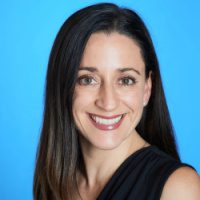
Tatiana González de Cossío, her professional experience has been a balanced journey starting with solid Supply foundations. Six years of multifunctional experience with Customer Service, Planning, and Logistics. And then broadening strong enterprise perspective: with Demand role, developing Activity Mgt and Innovation process from the ground and within S&OP+ The real journey has been the experience. In the latest roles she has learned, faced challenges, and consistently delivered business results and the development of competencies enhancing leadership, transformation, and influence across the organization. Connect with Tatiana on LinkedIn.
